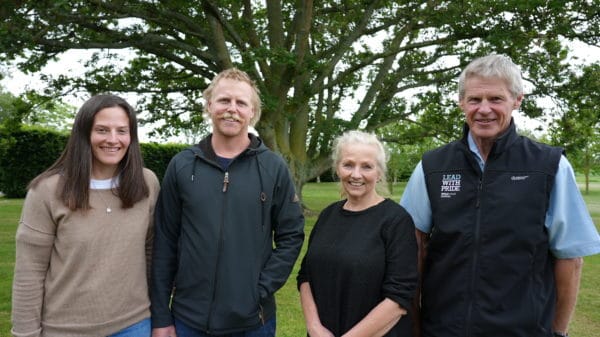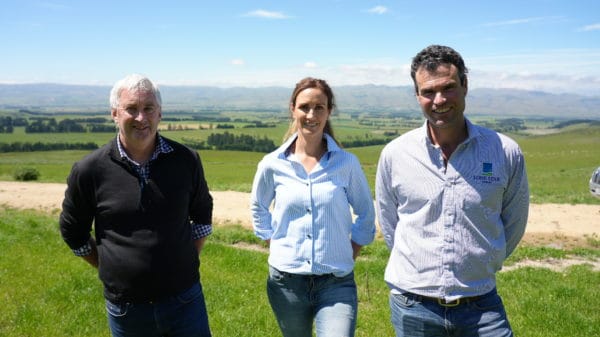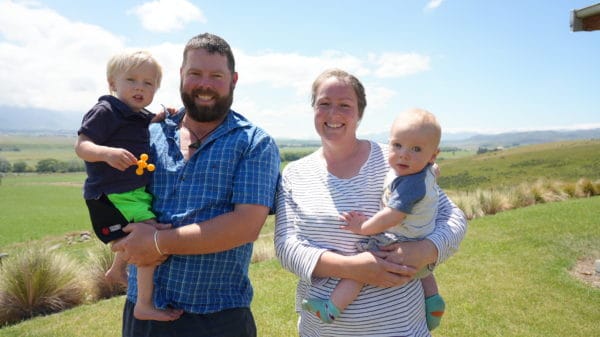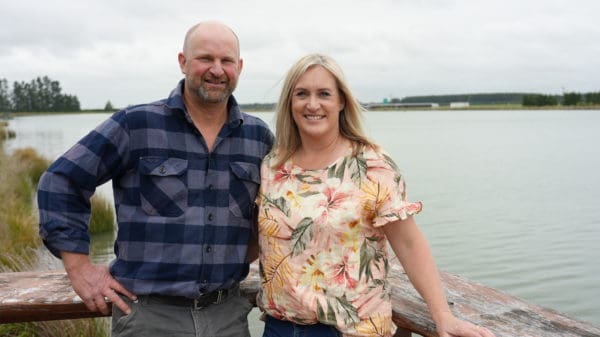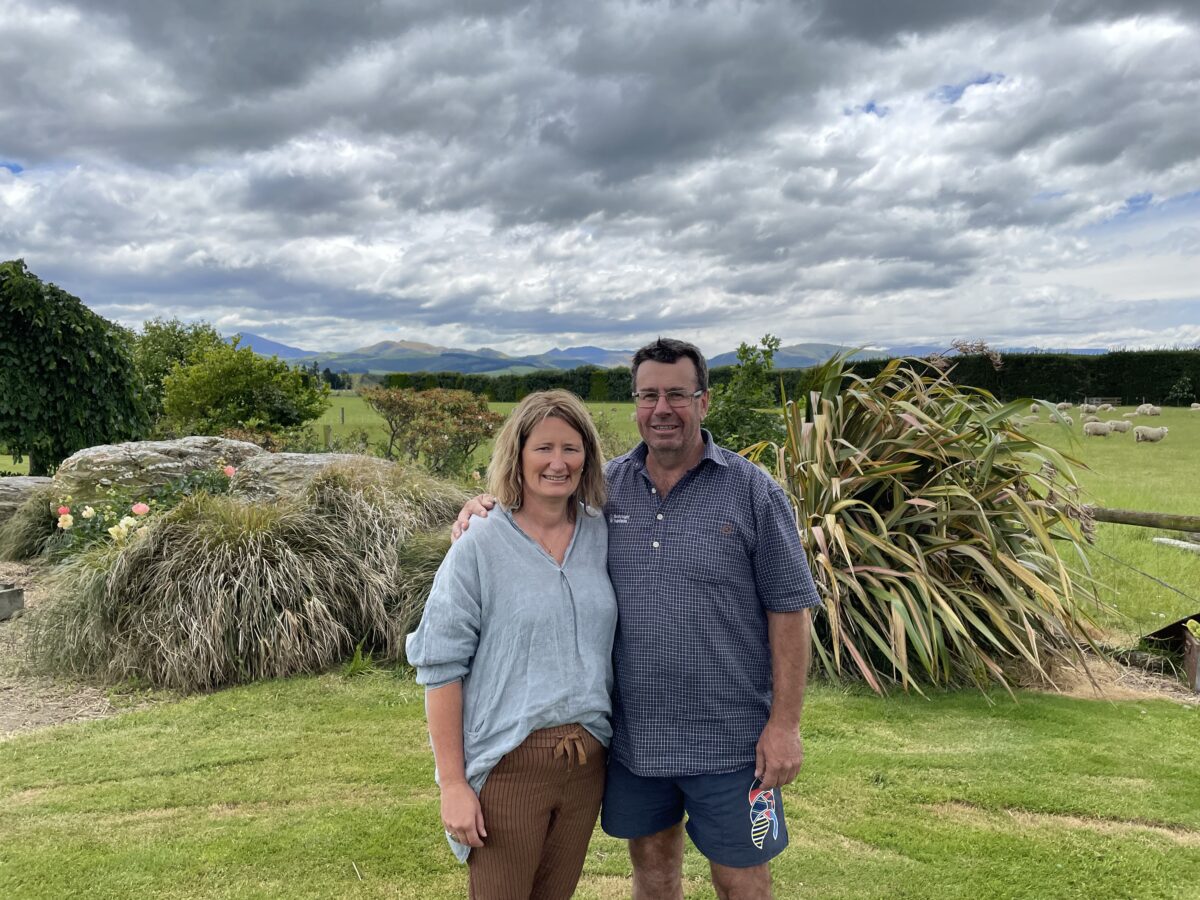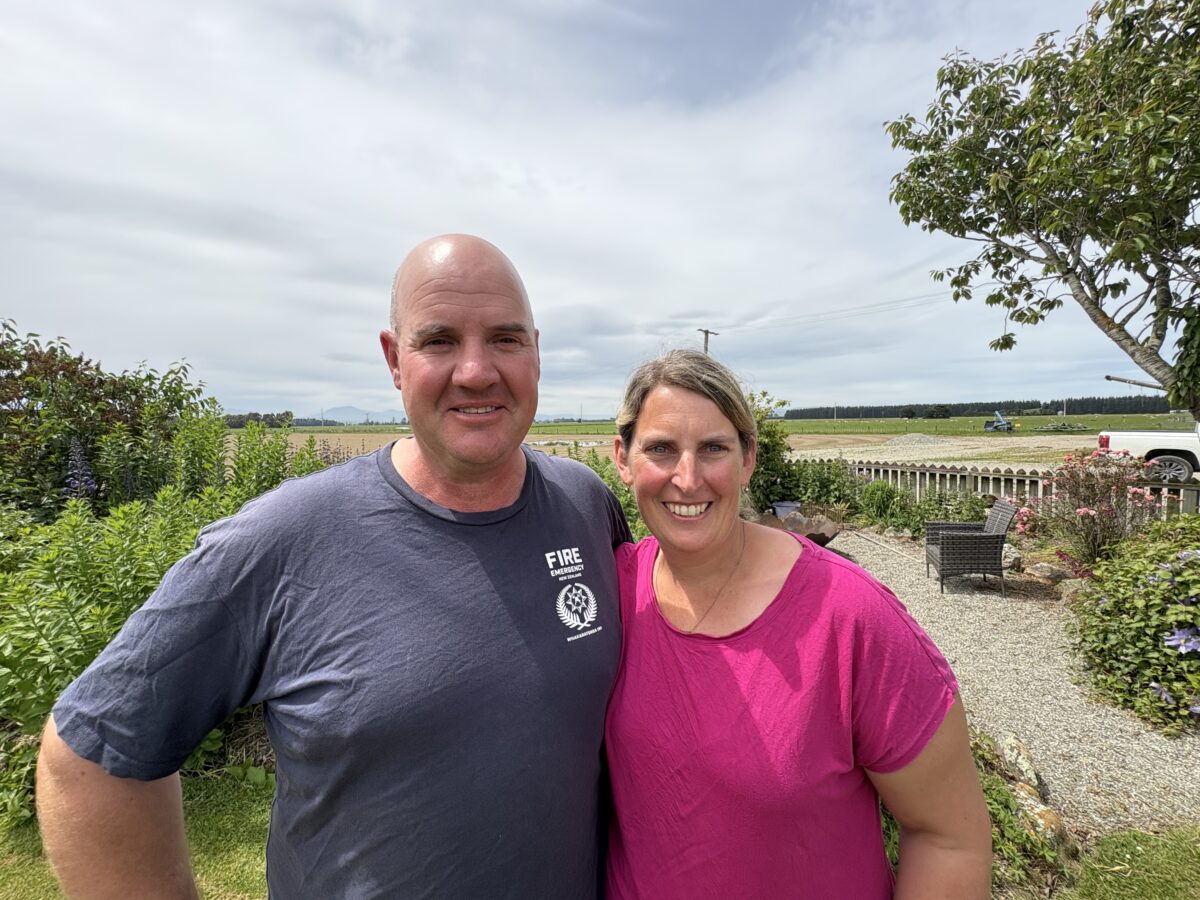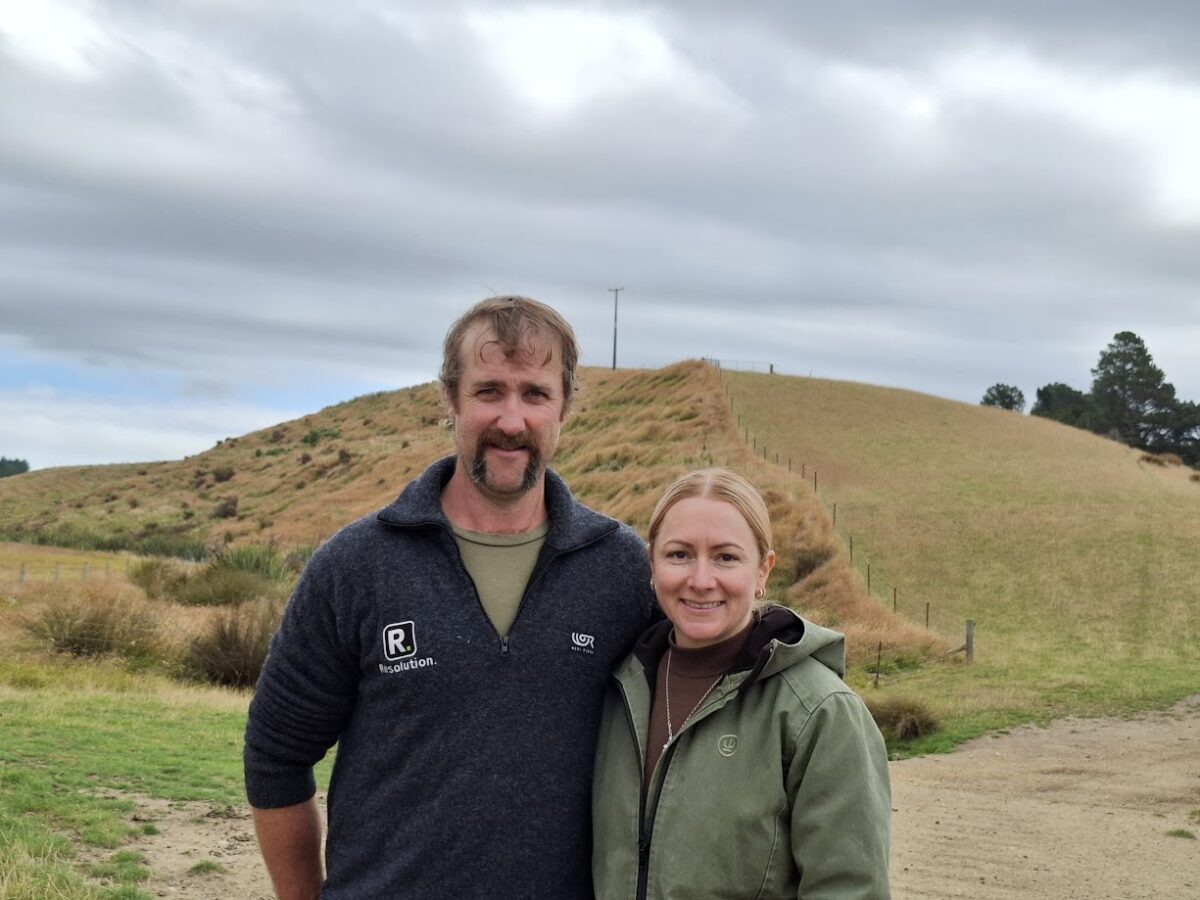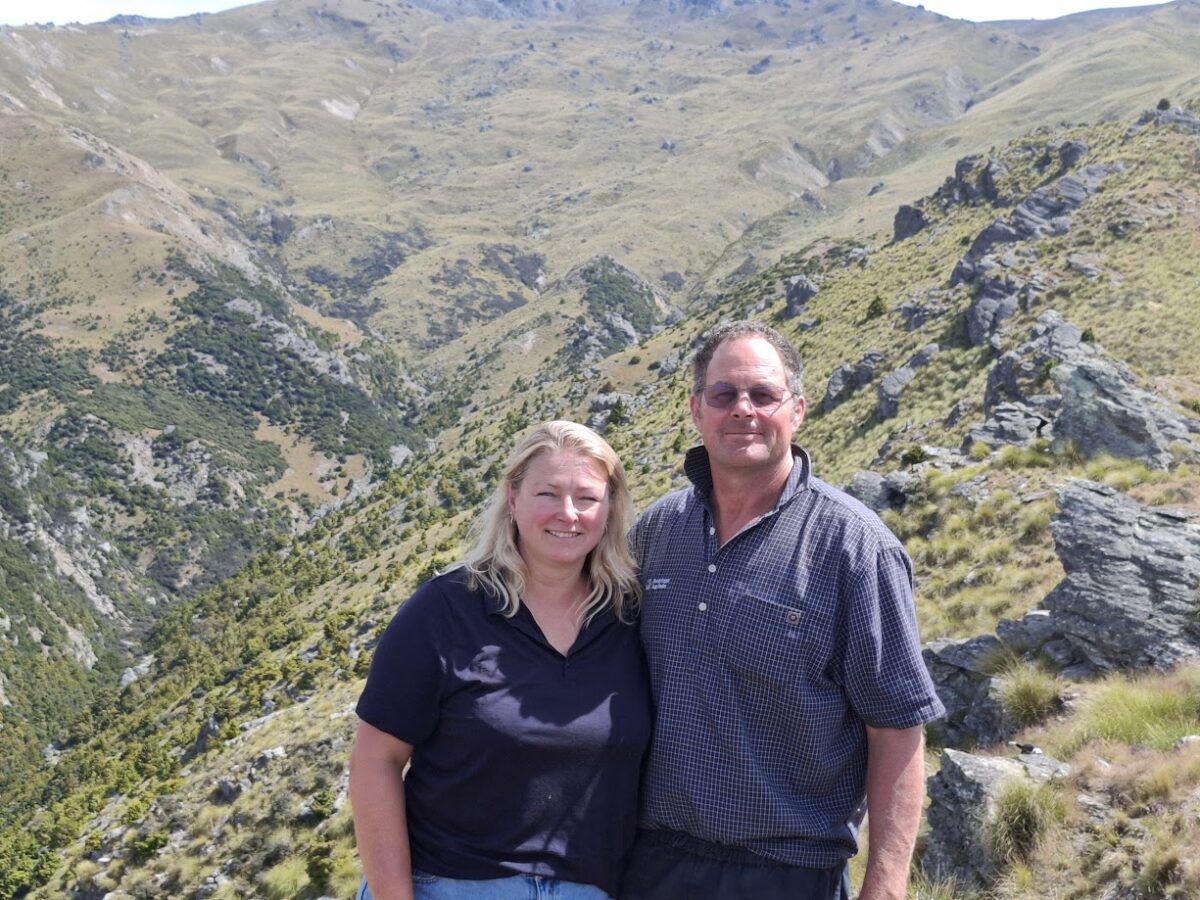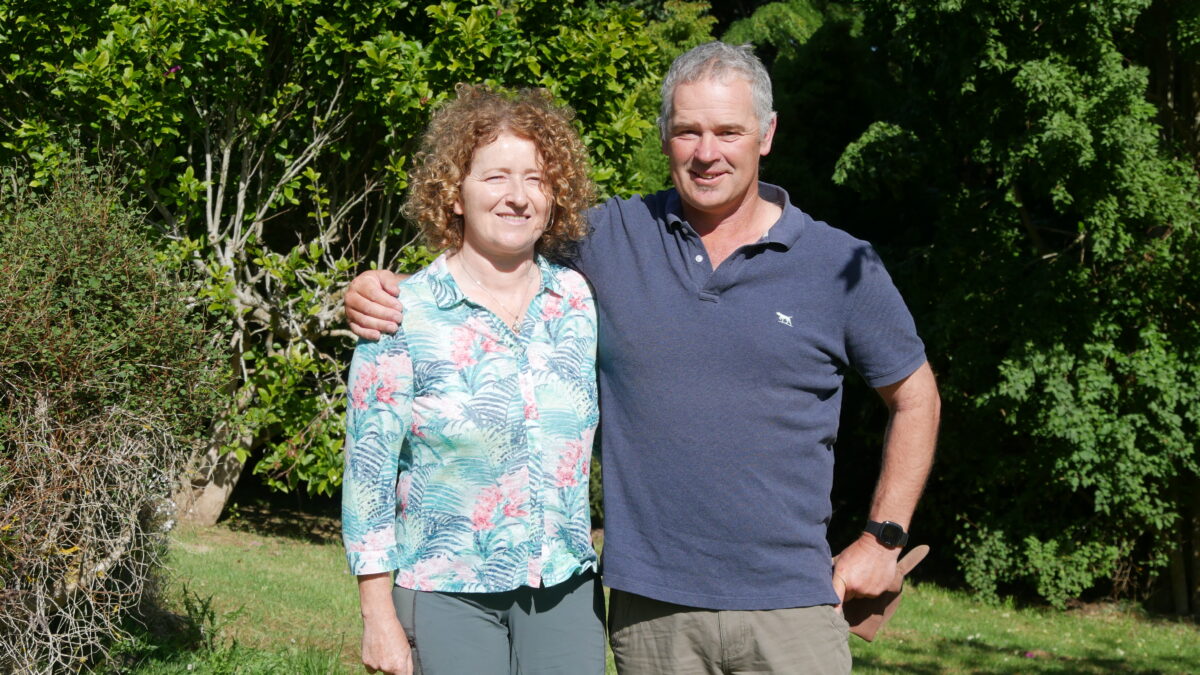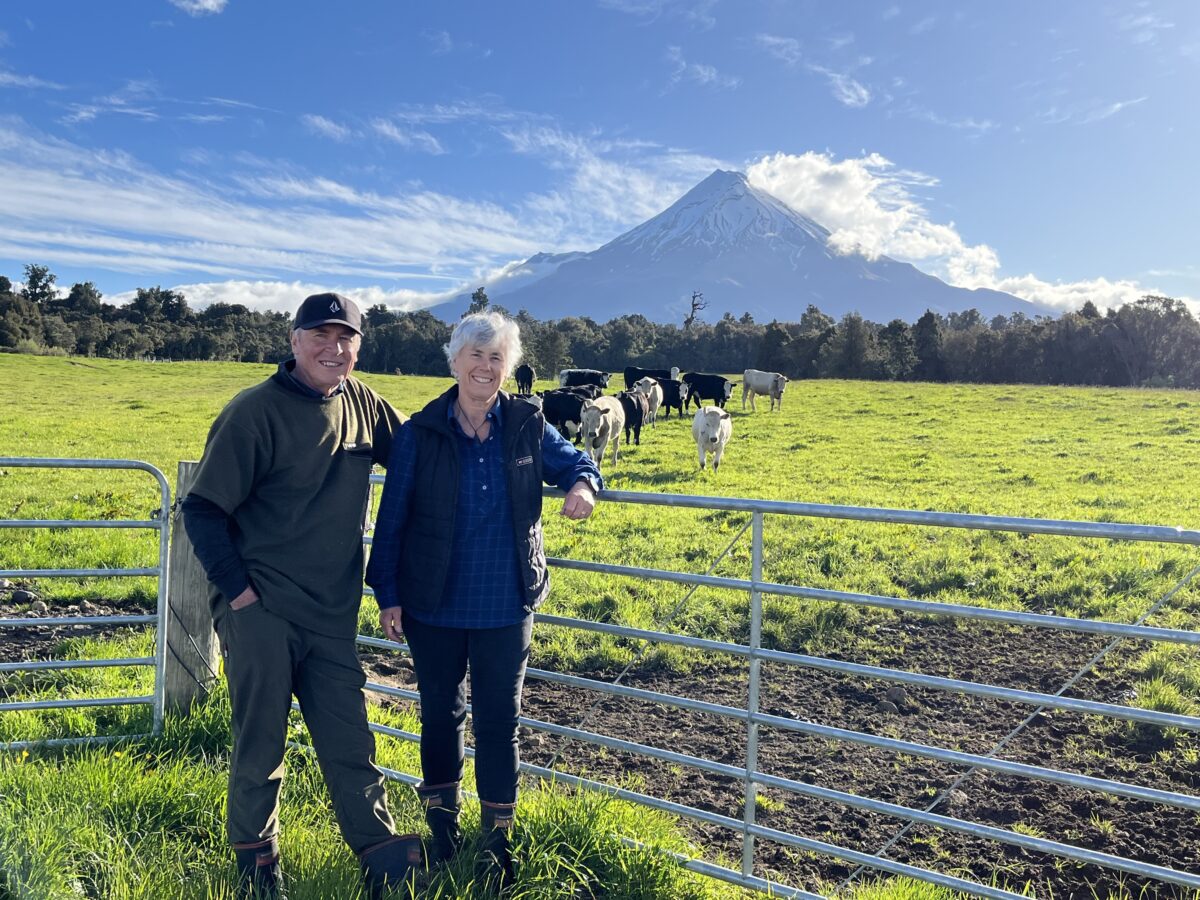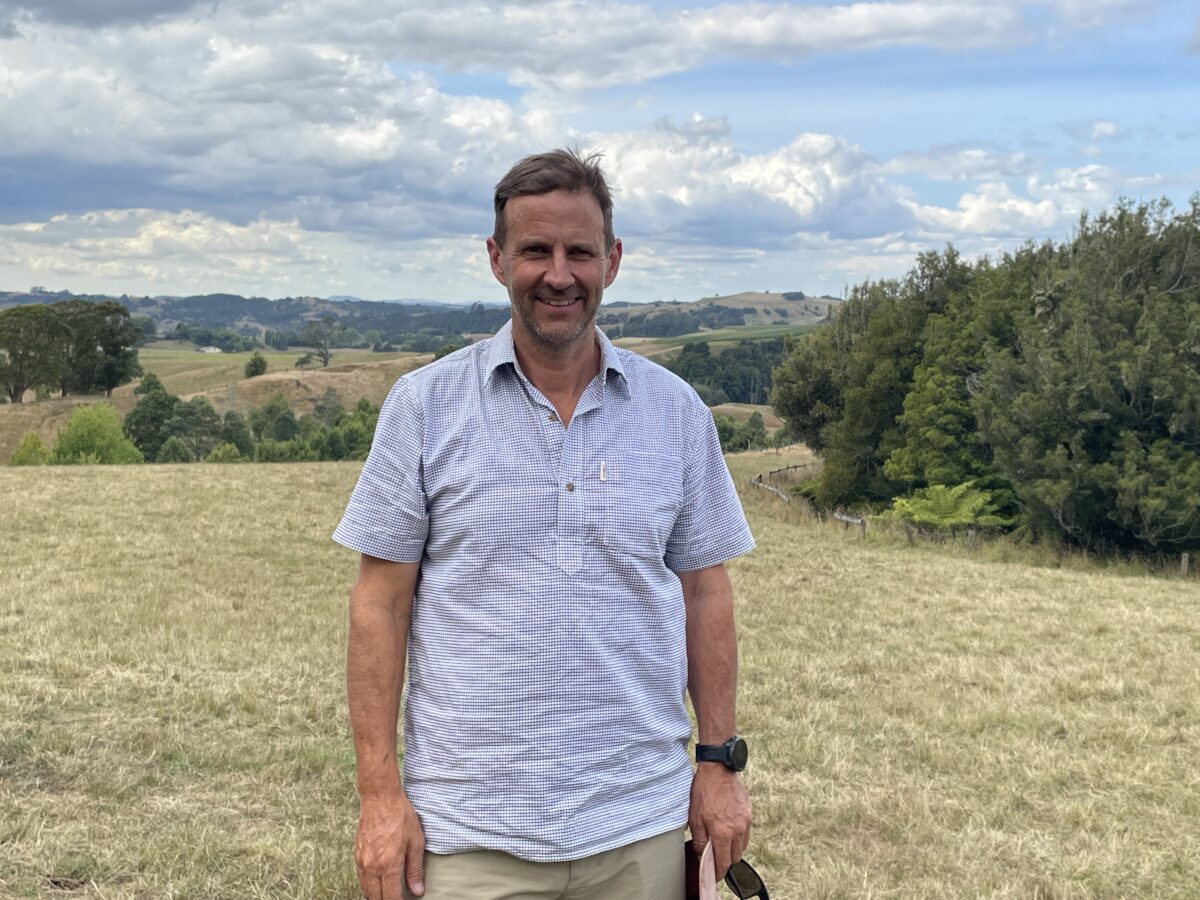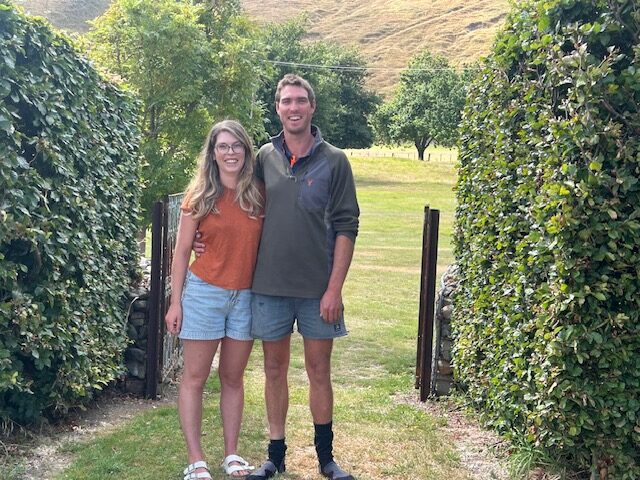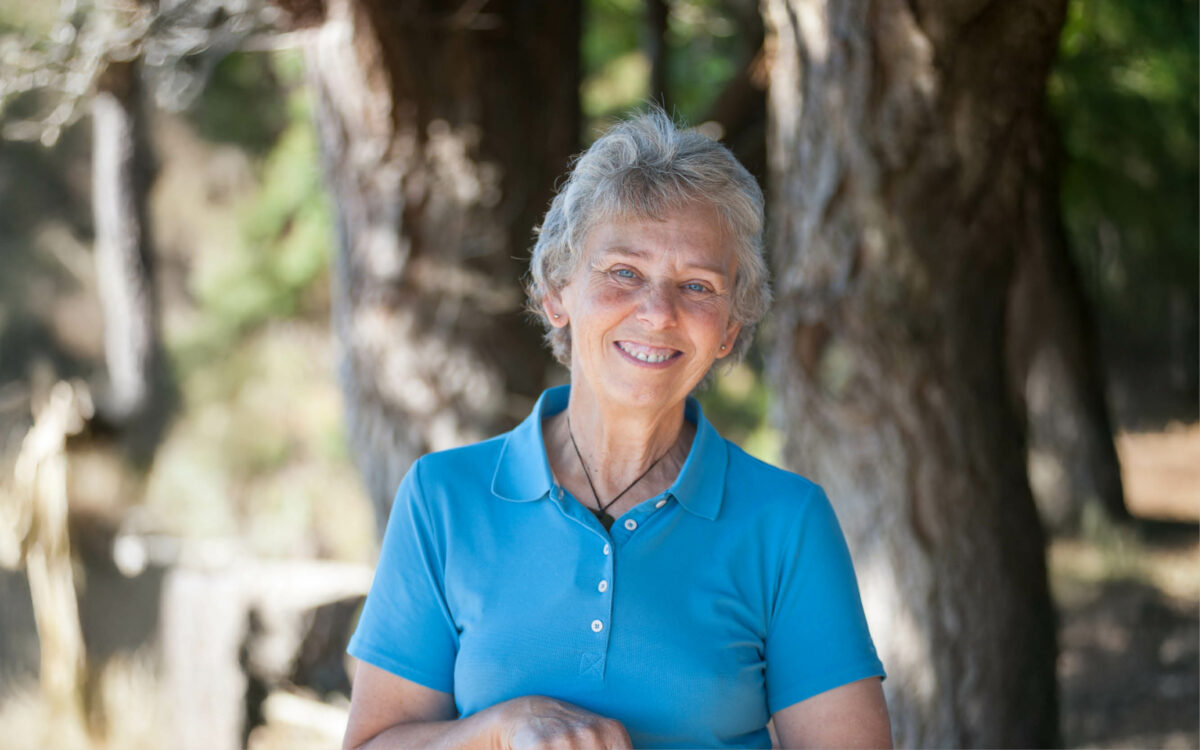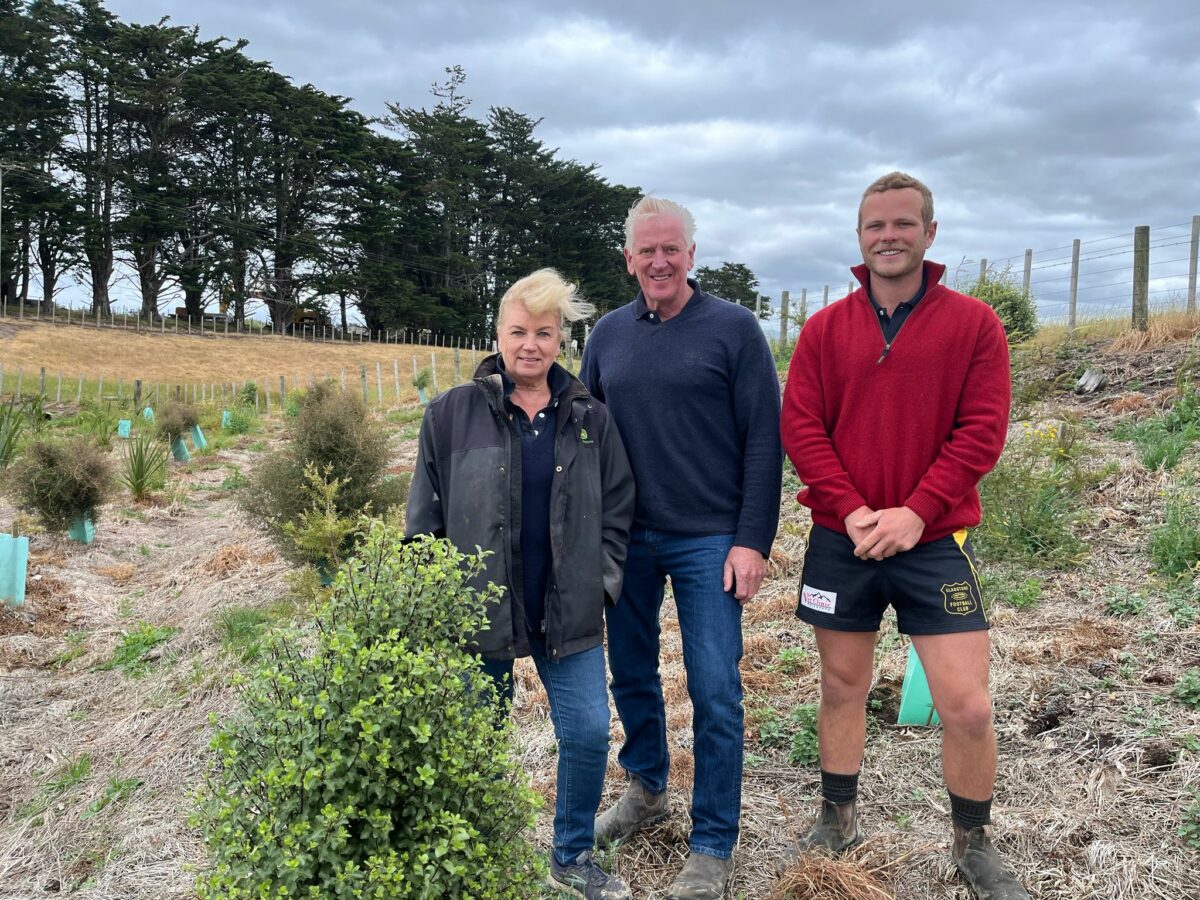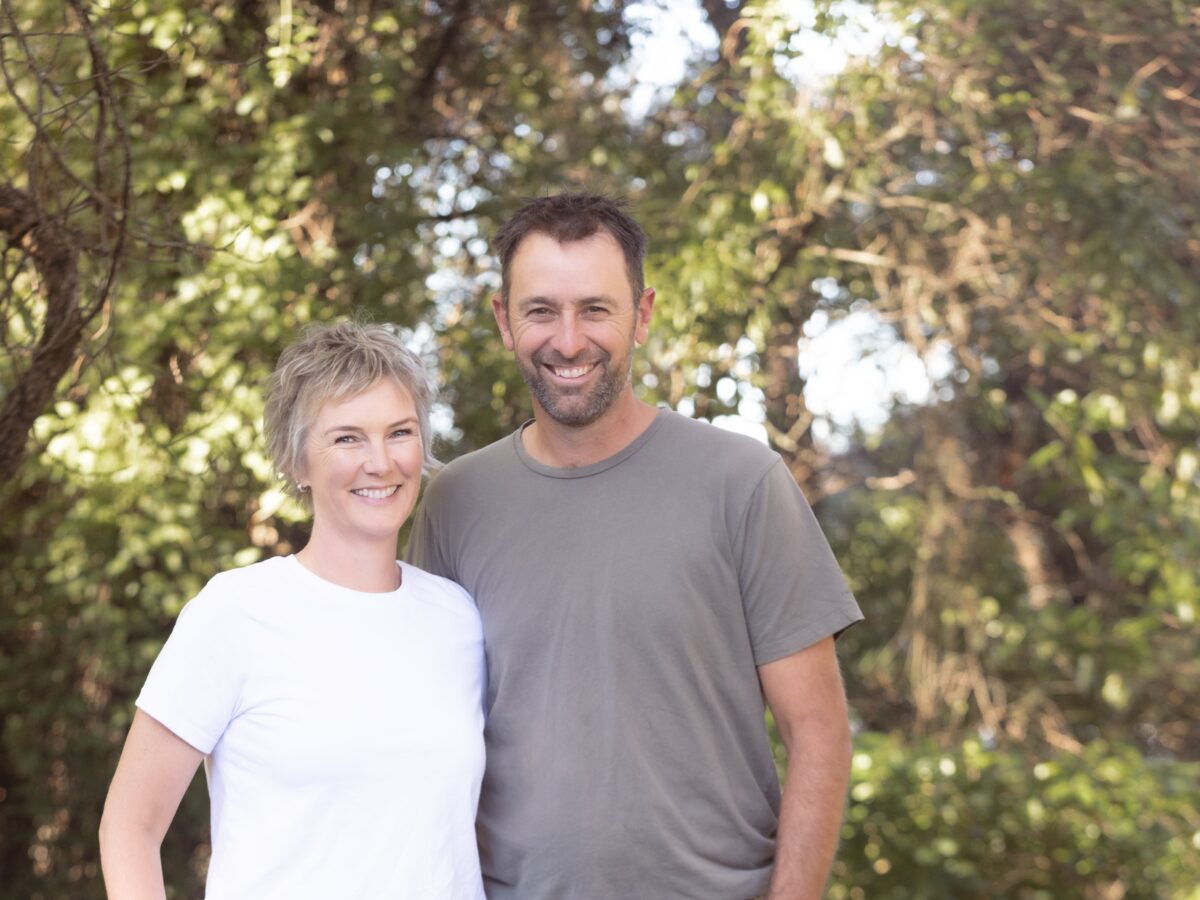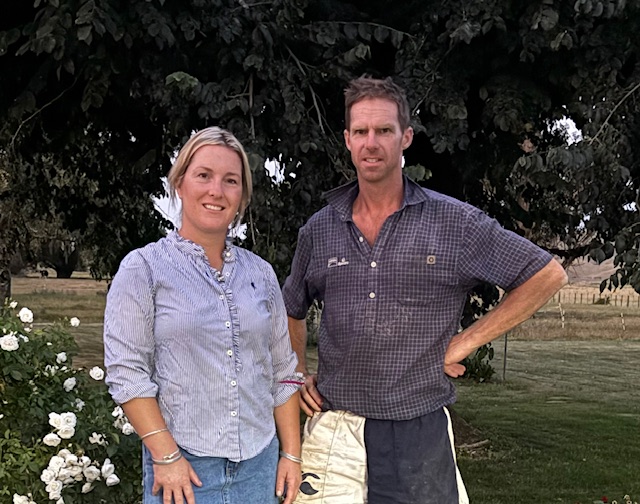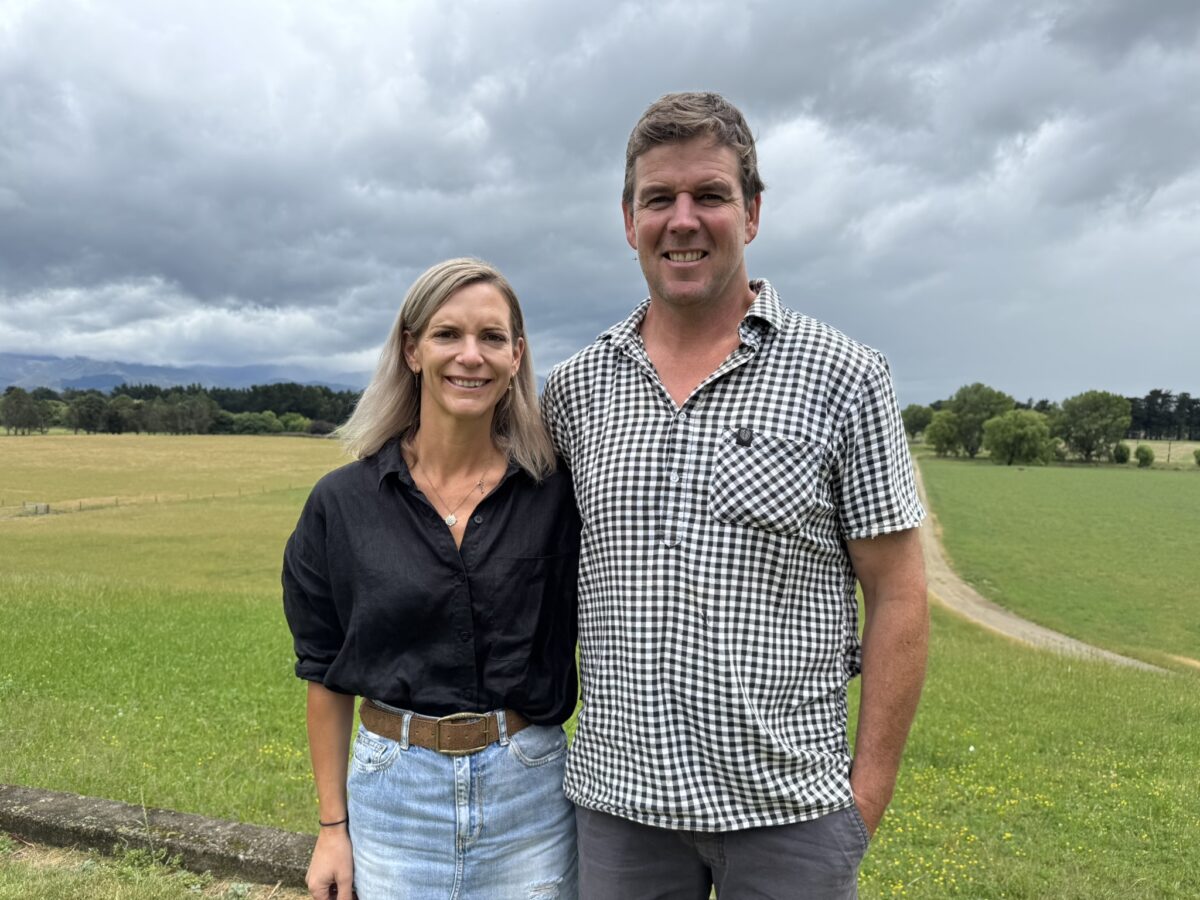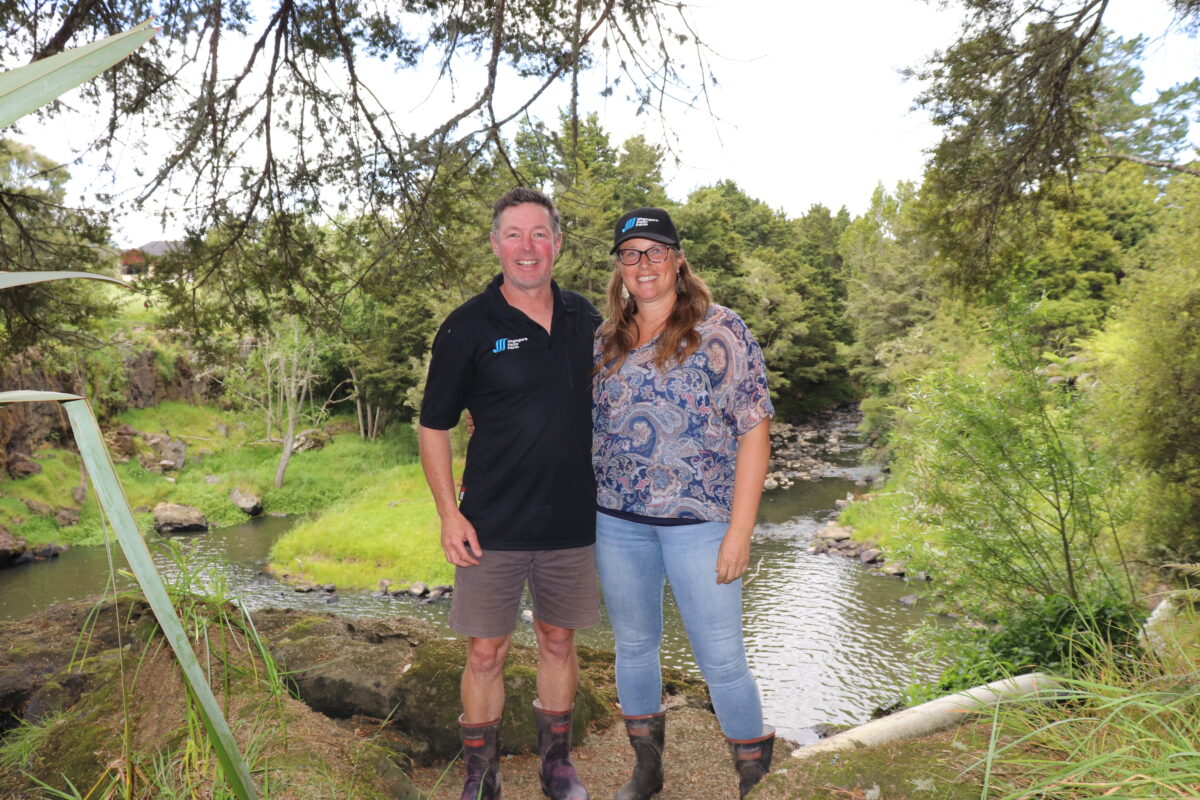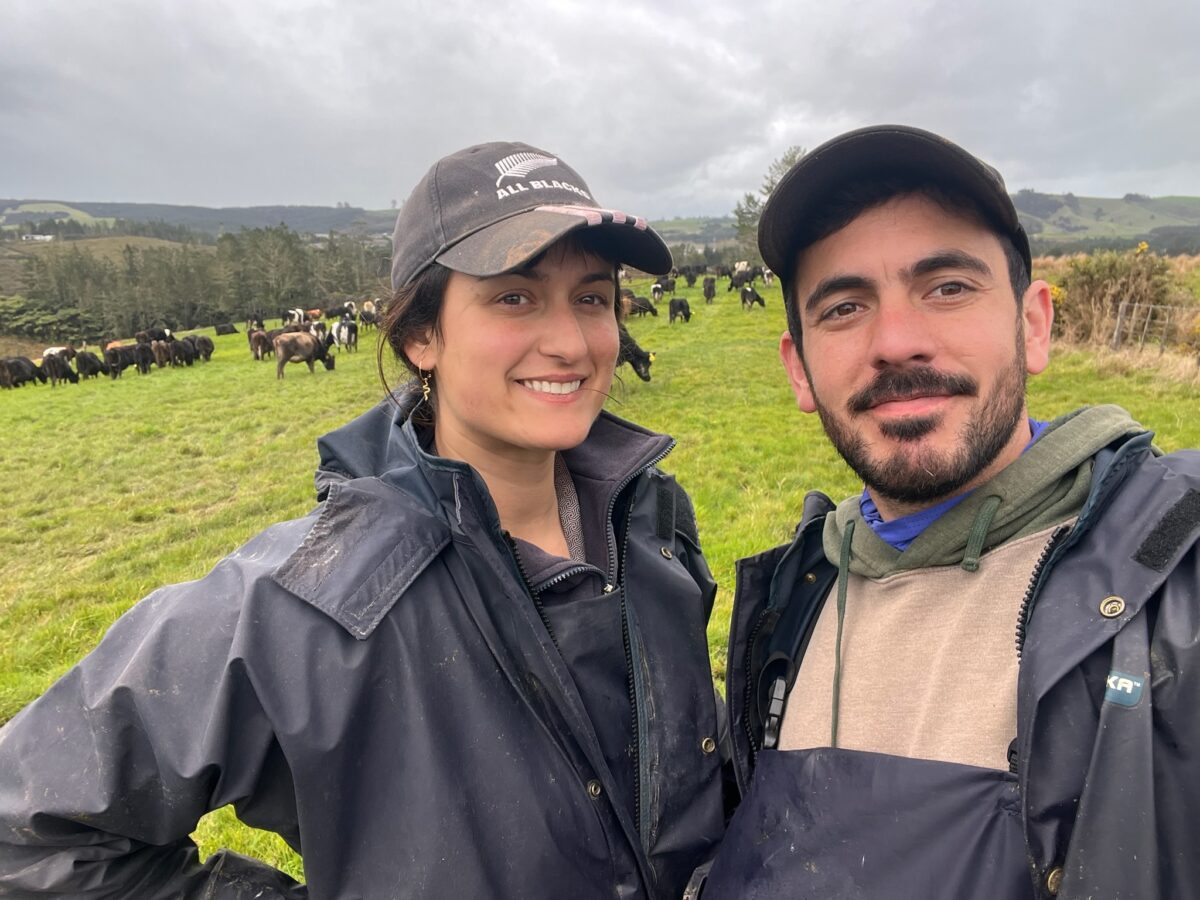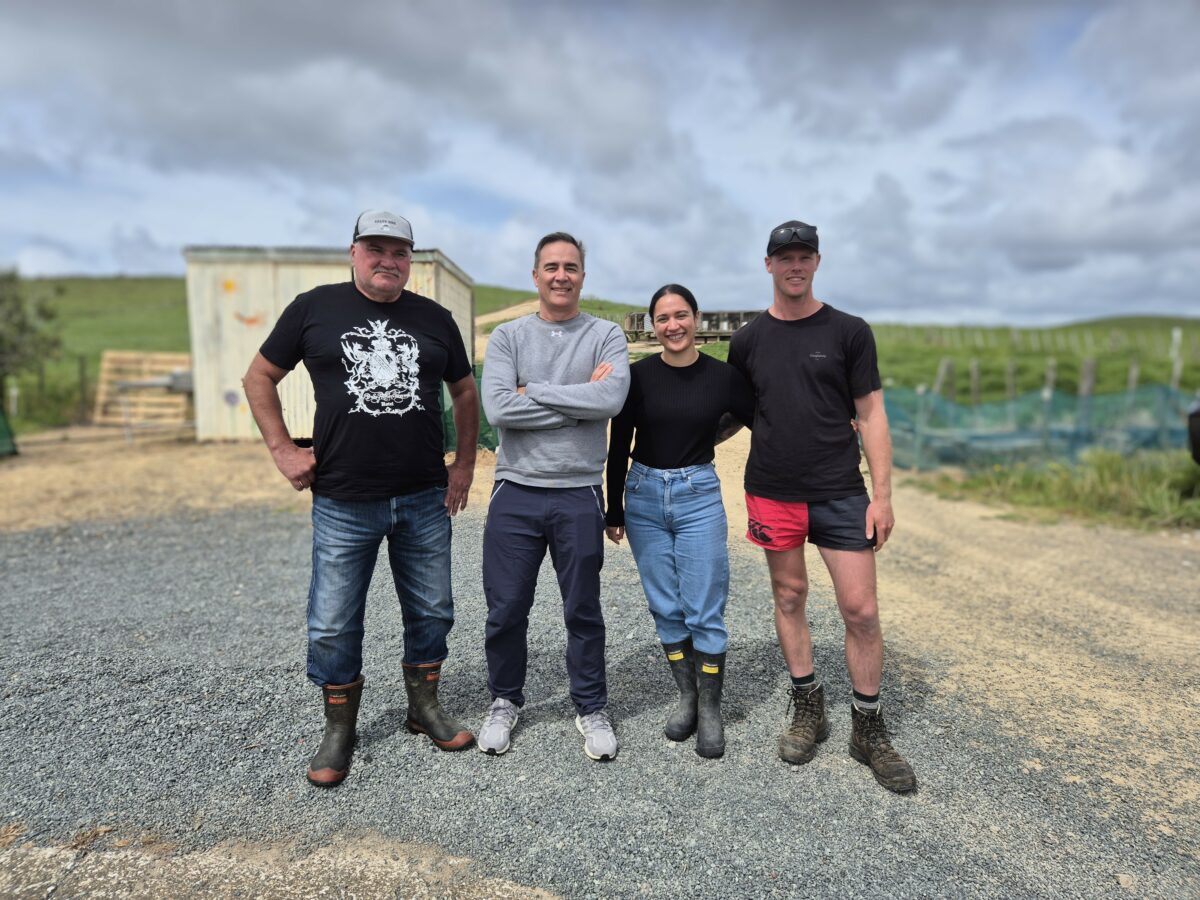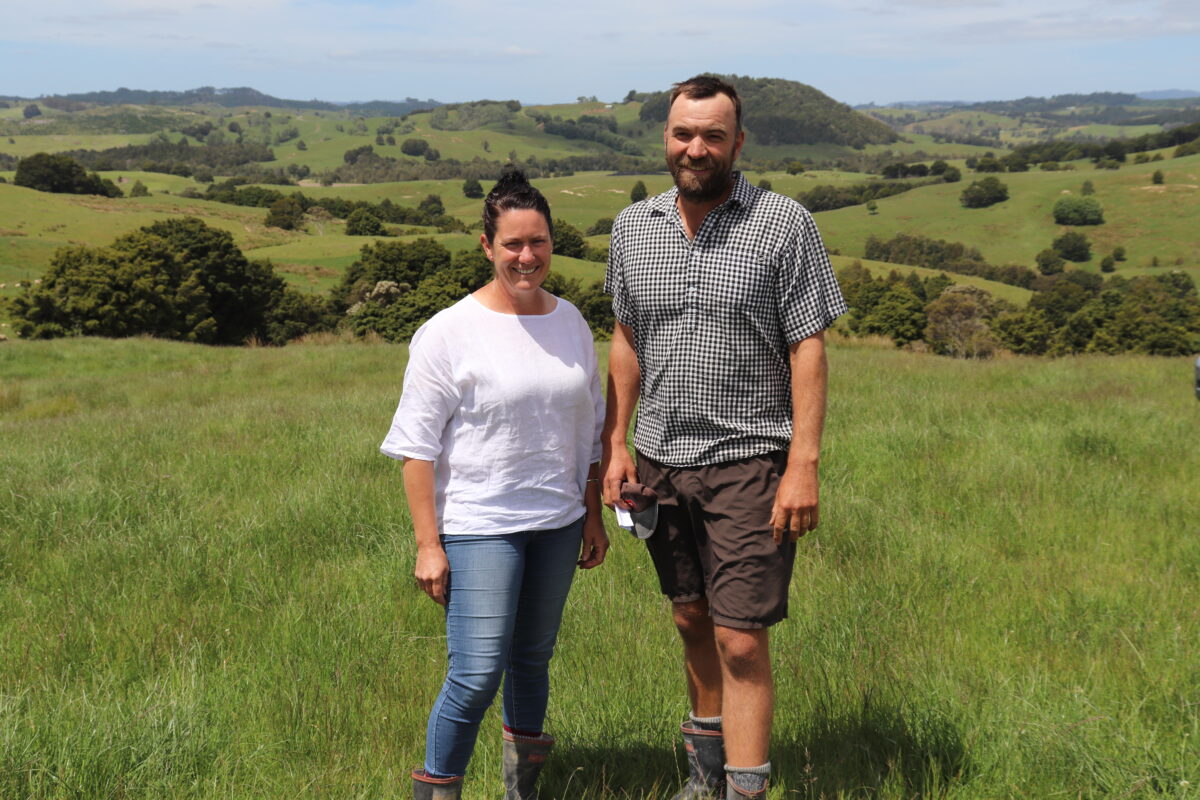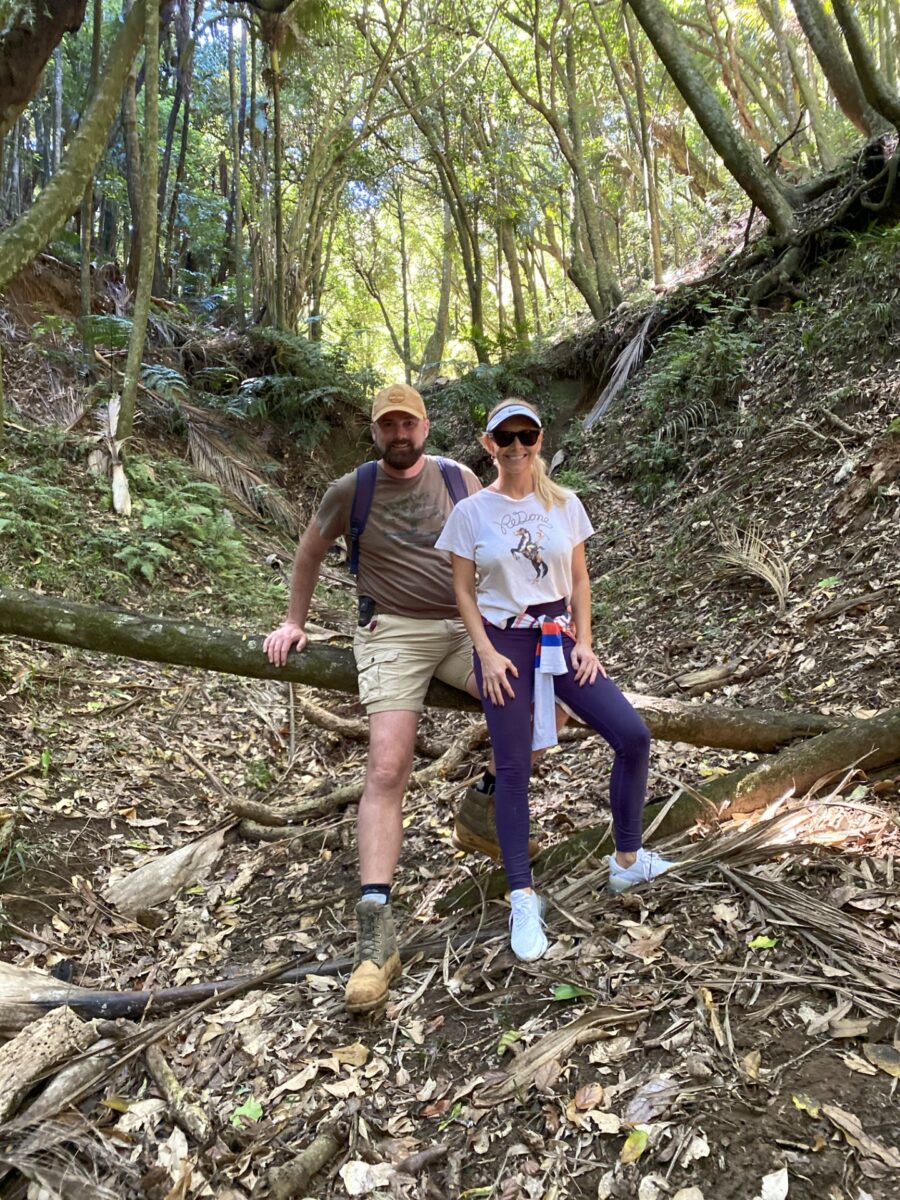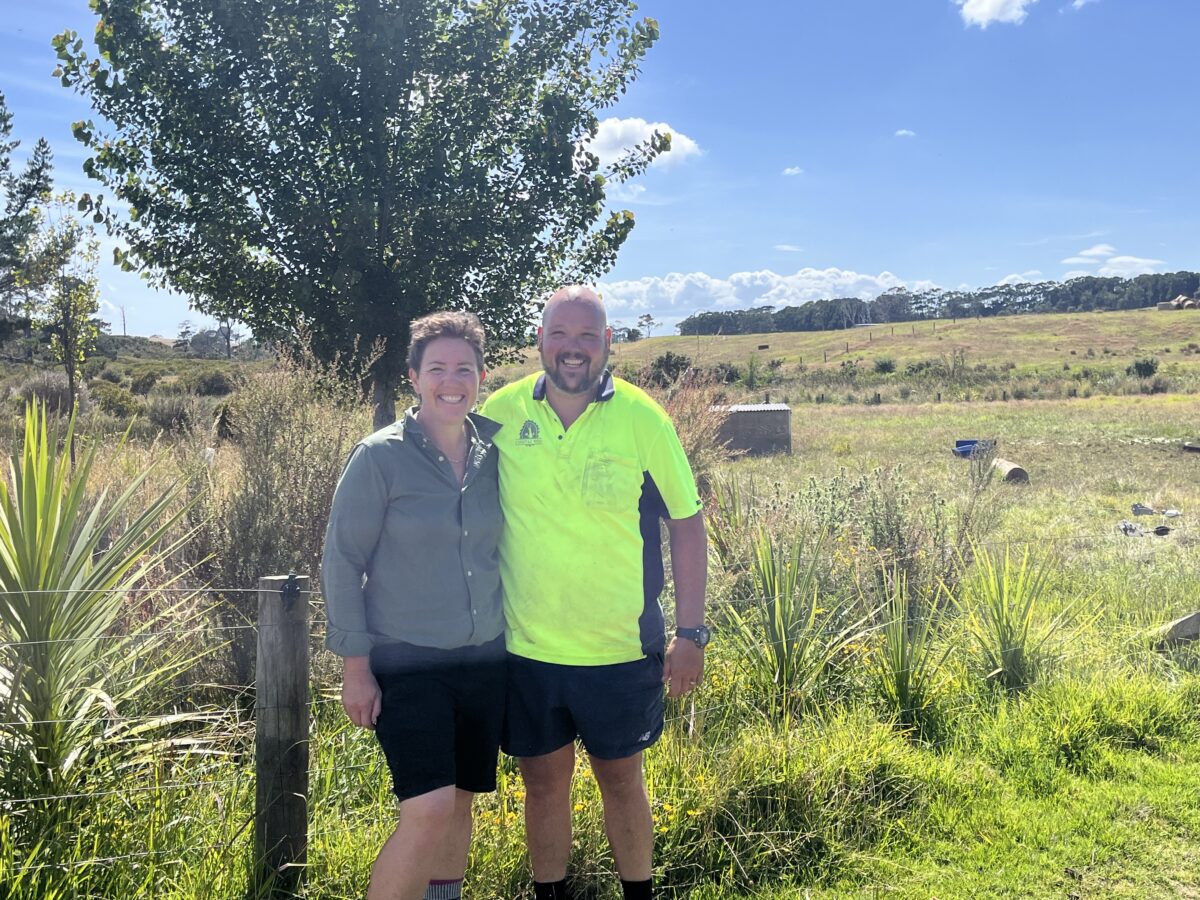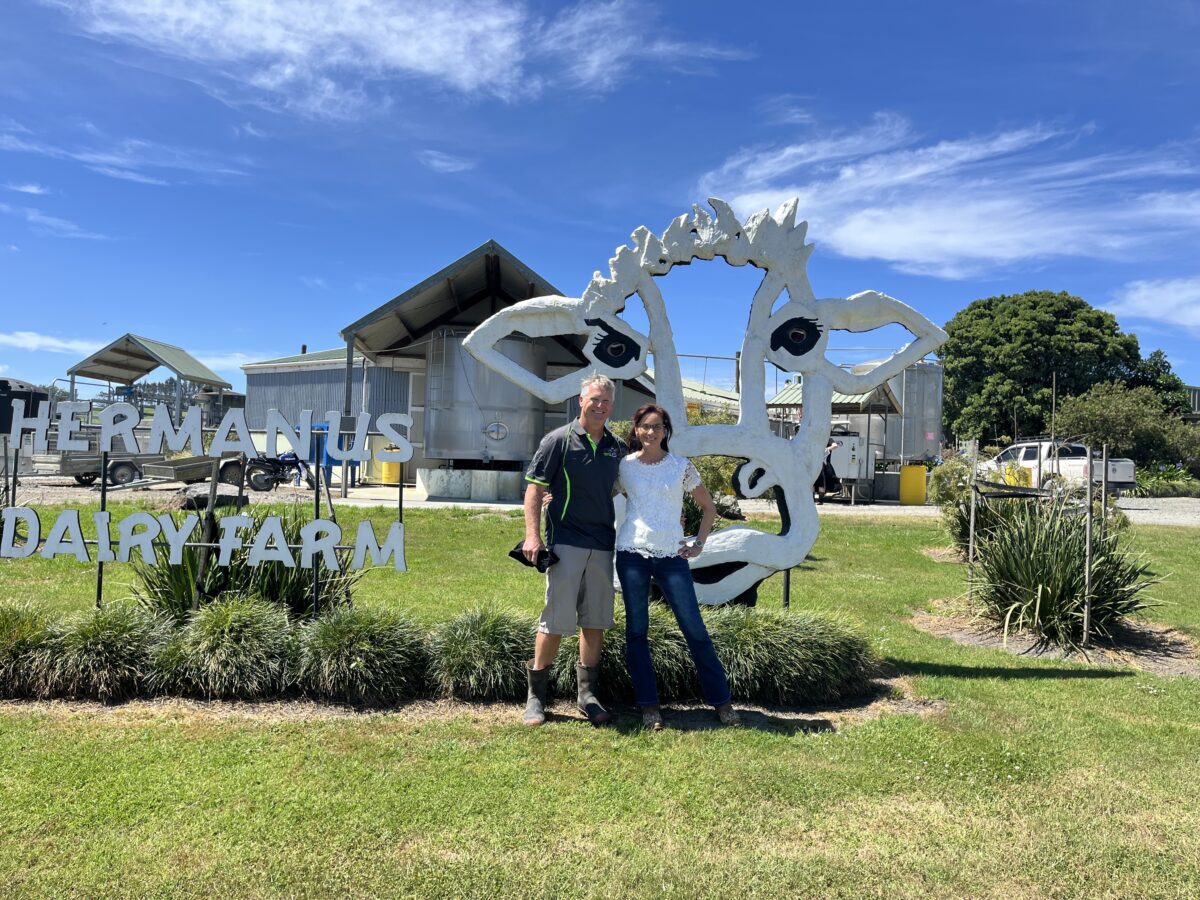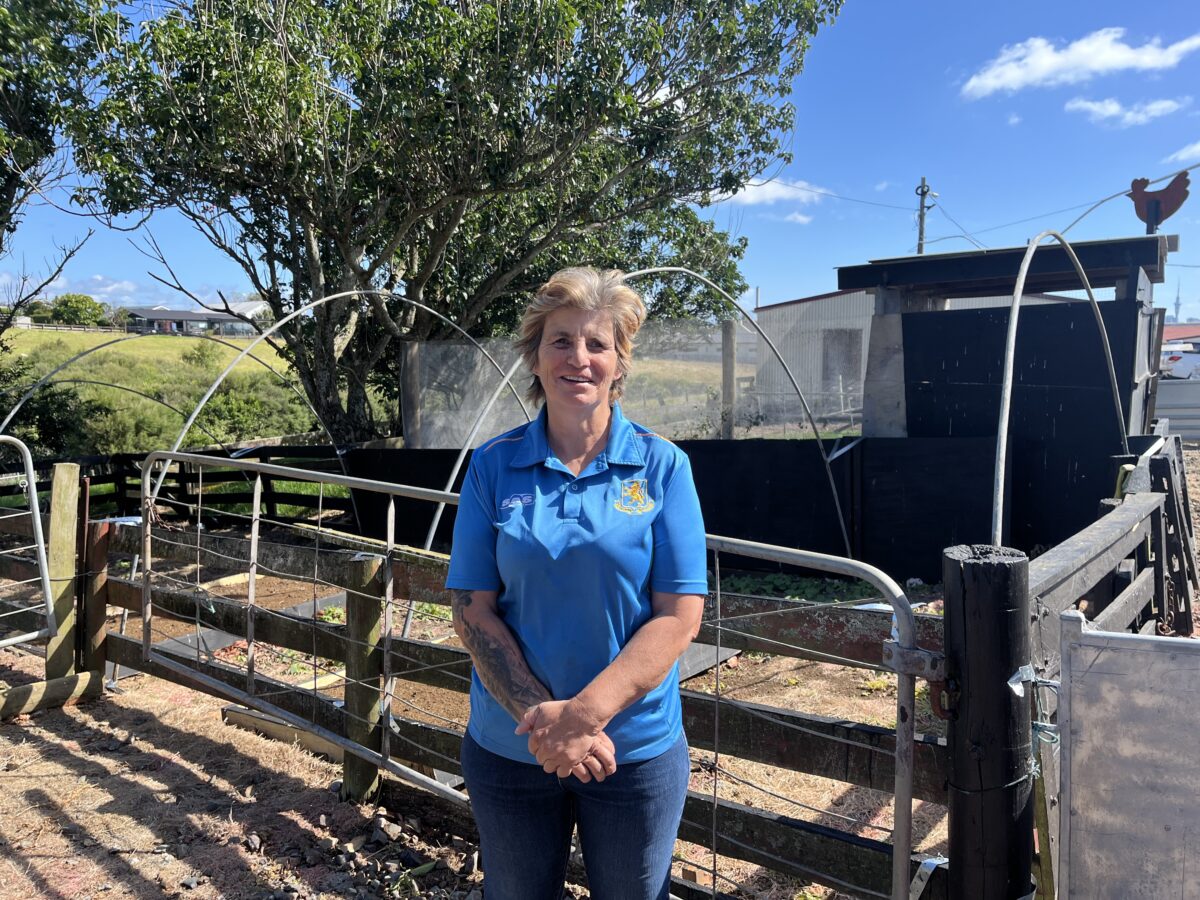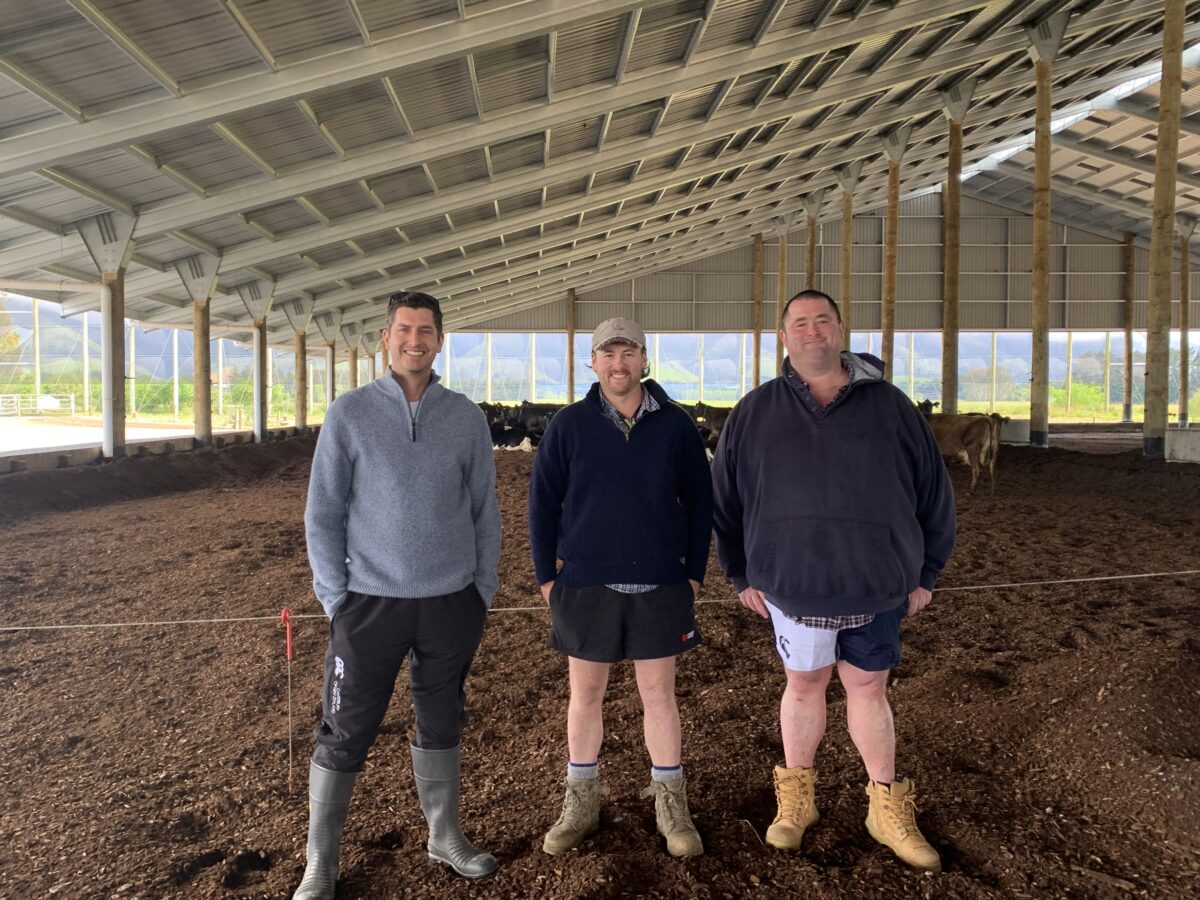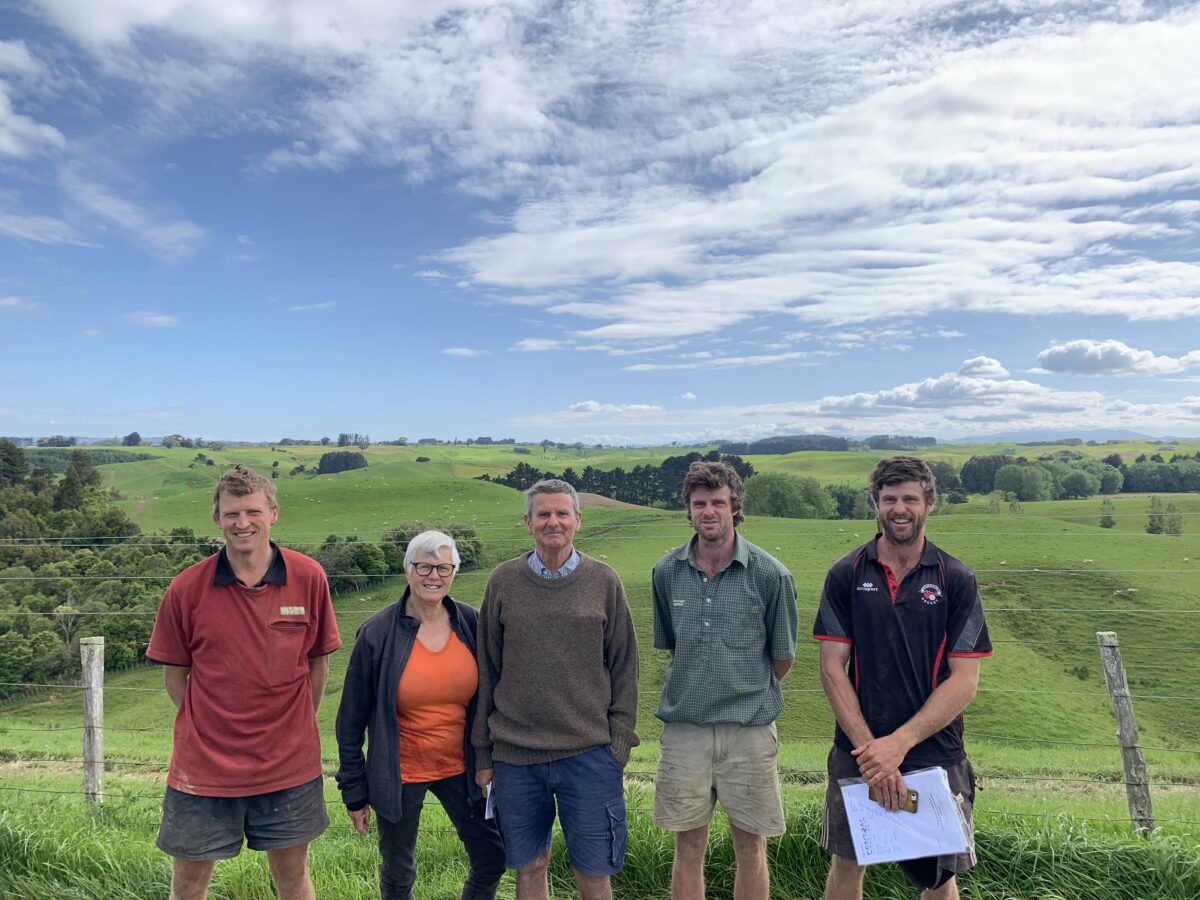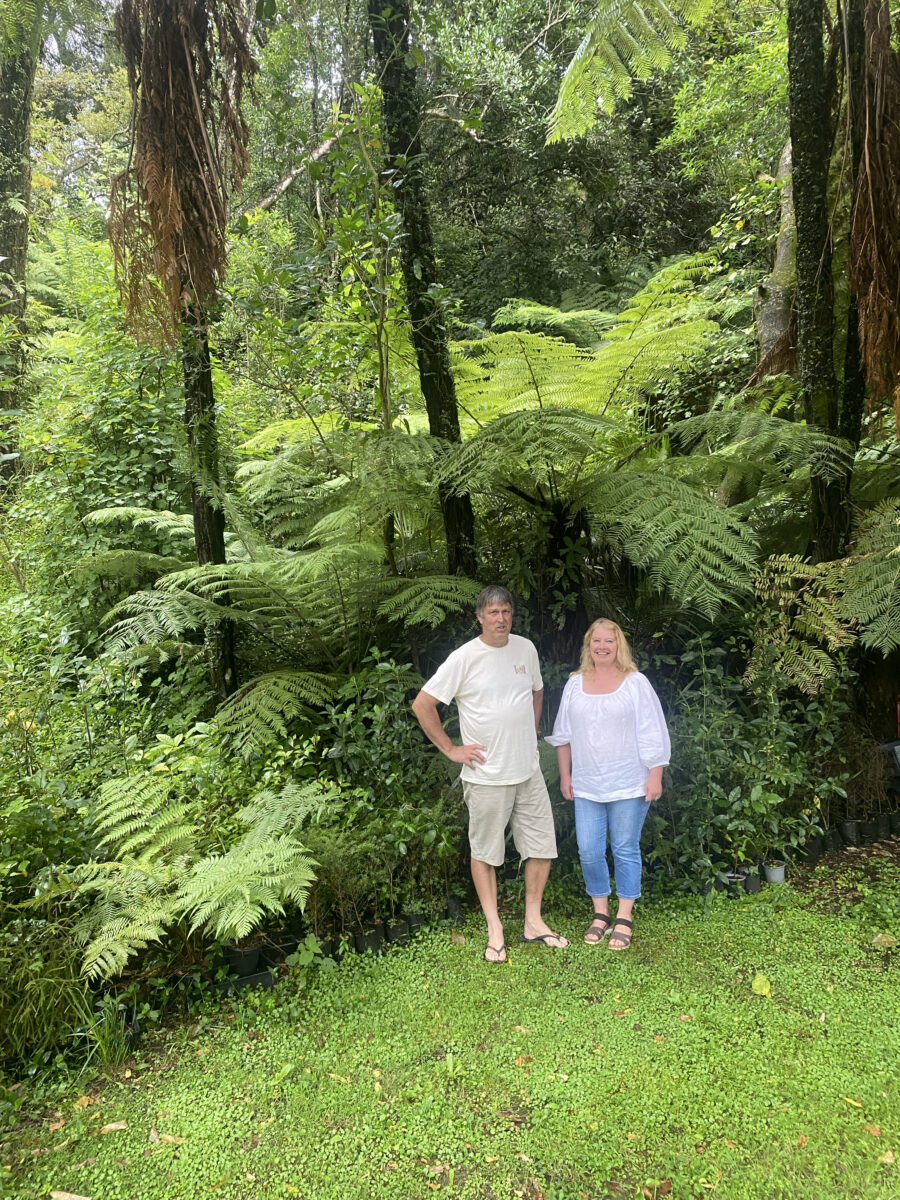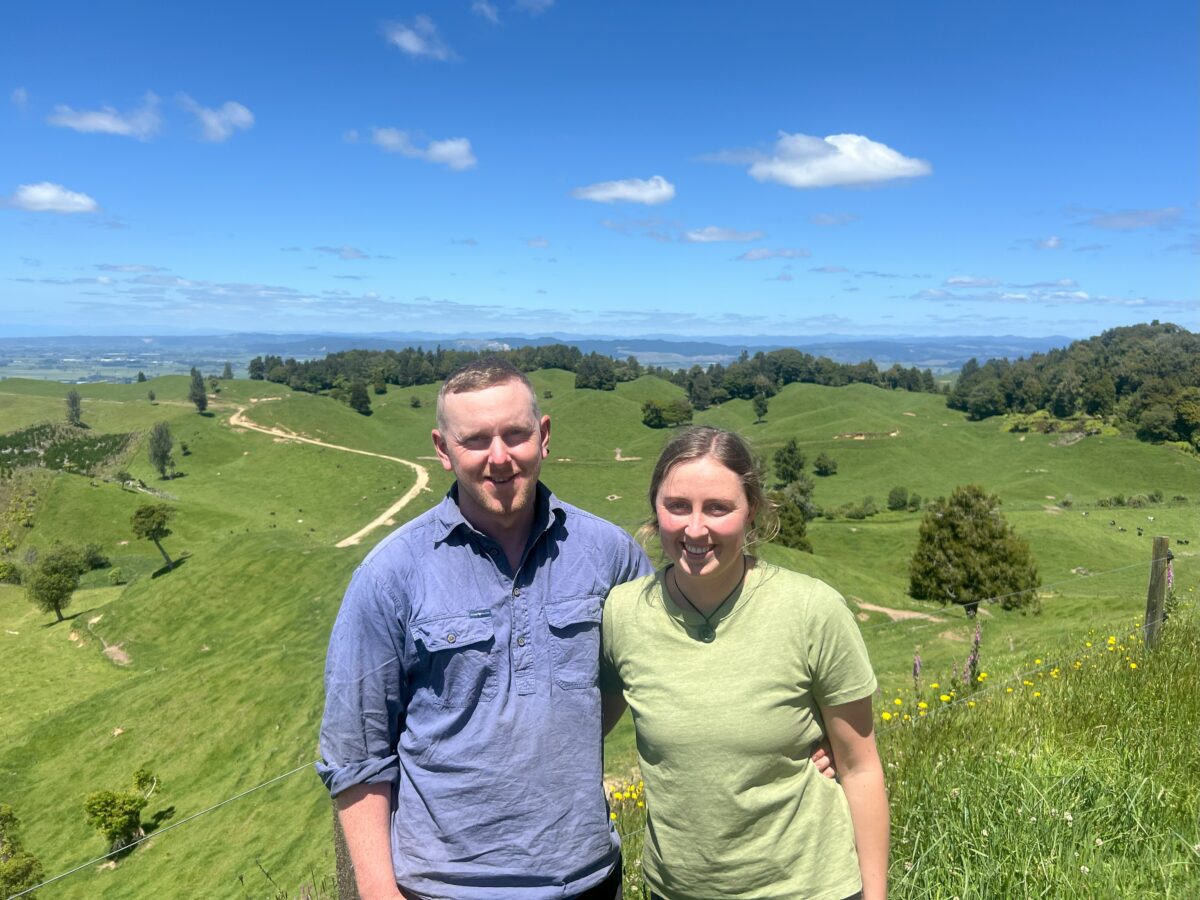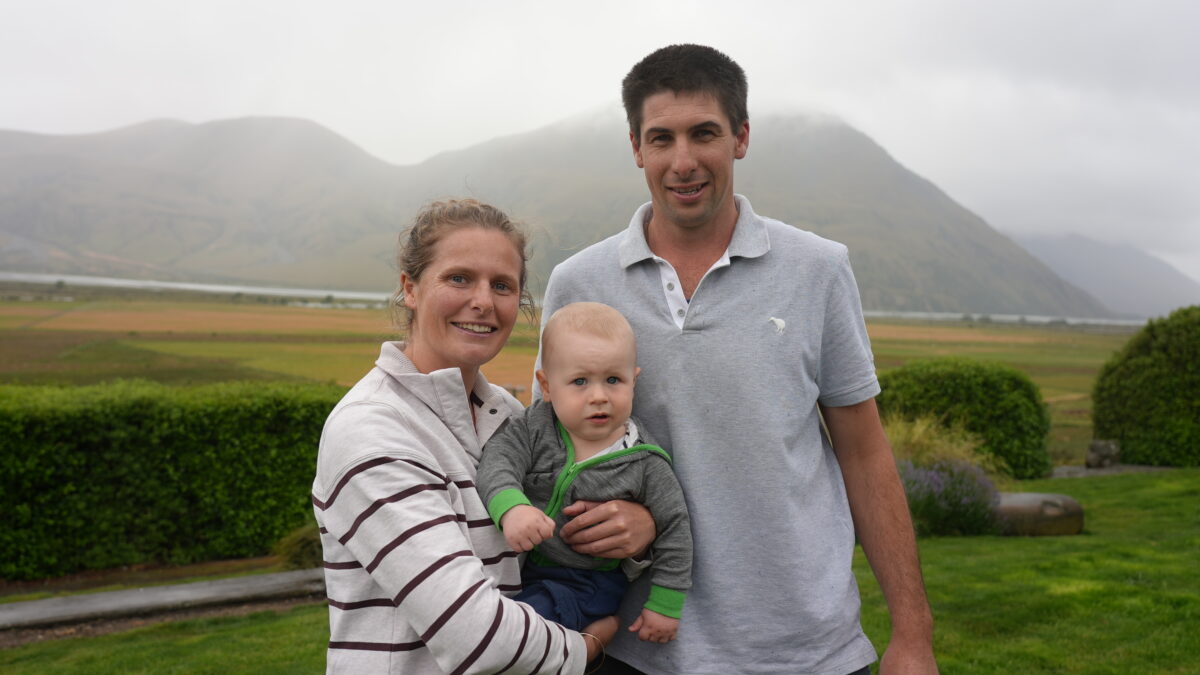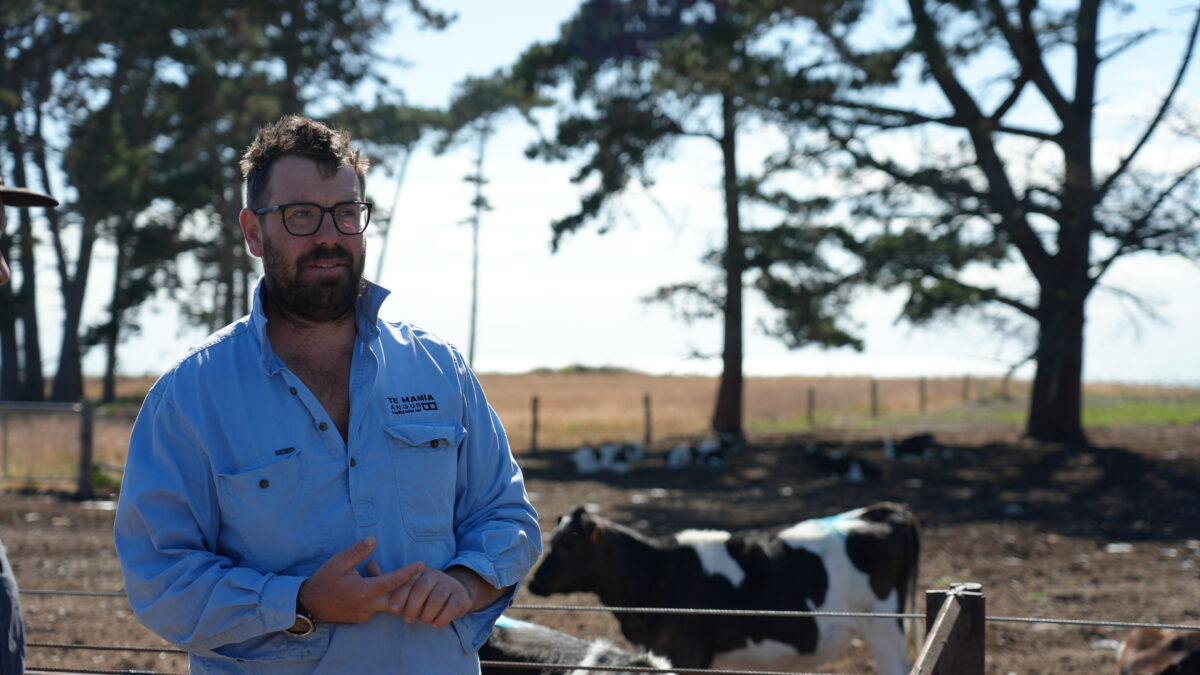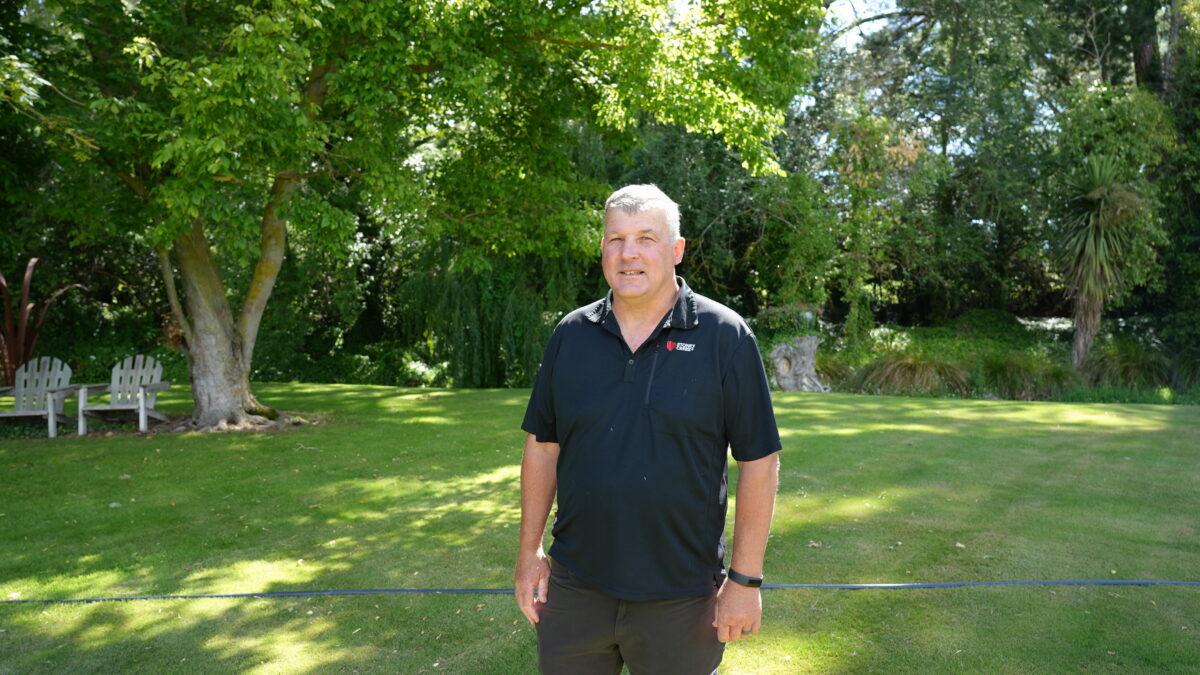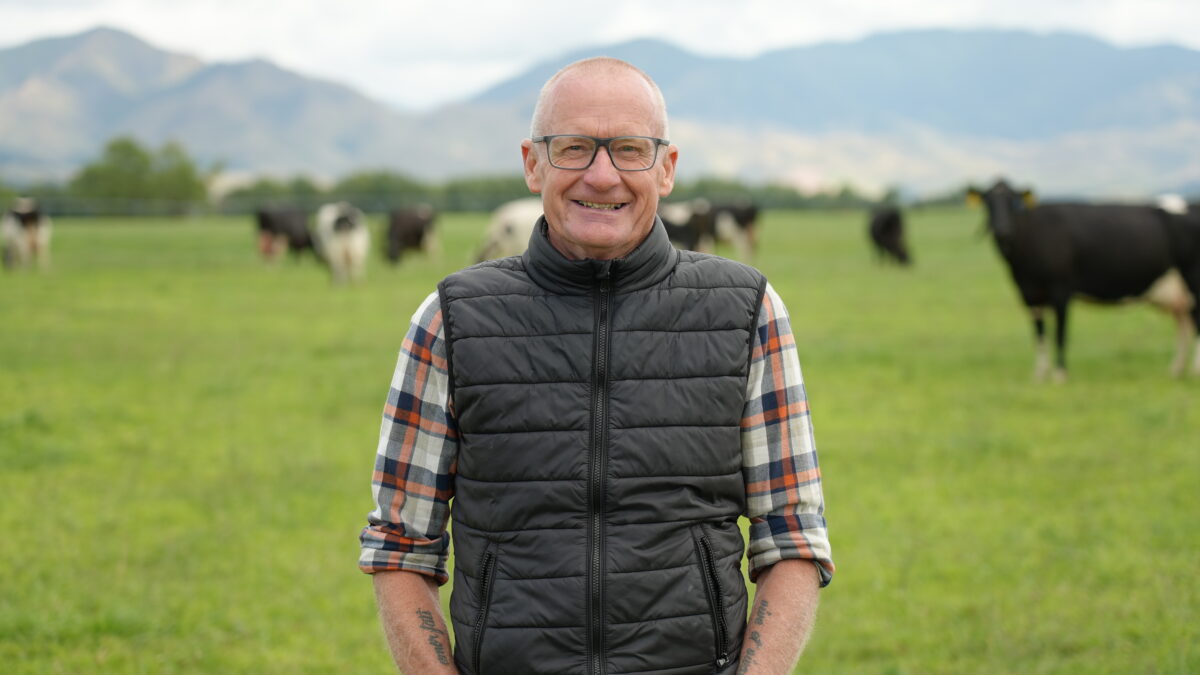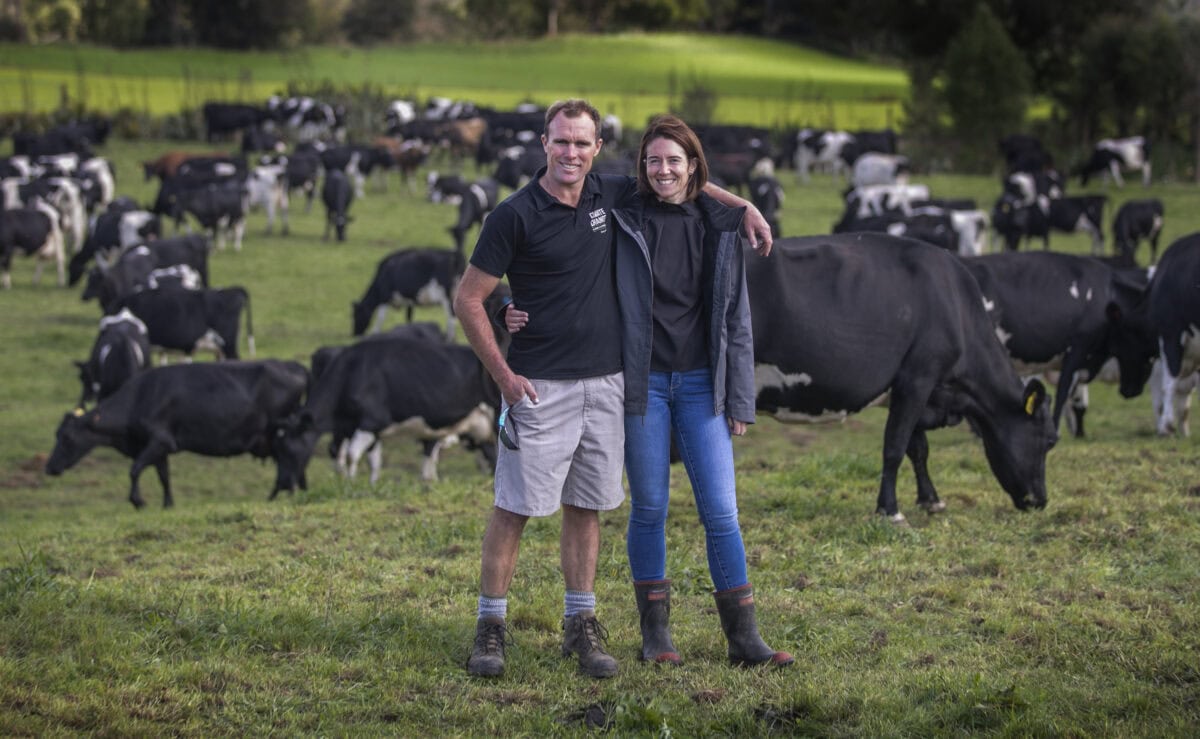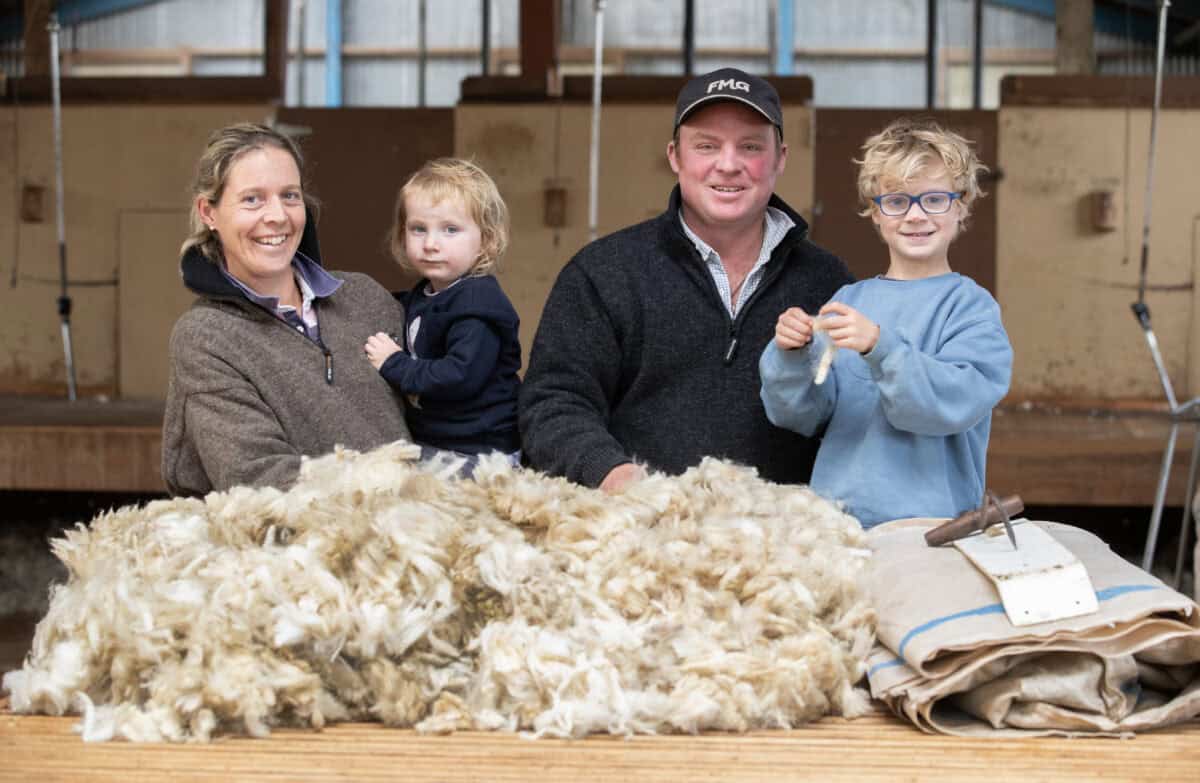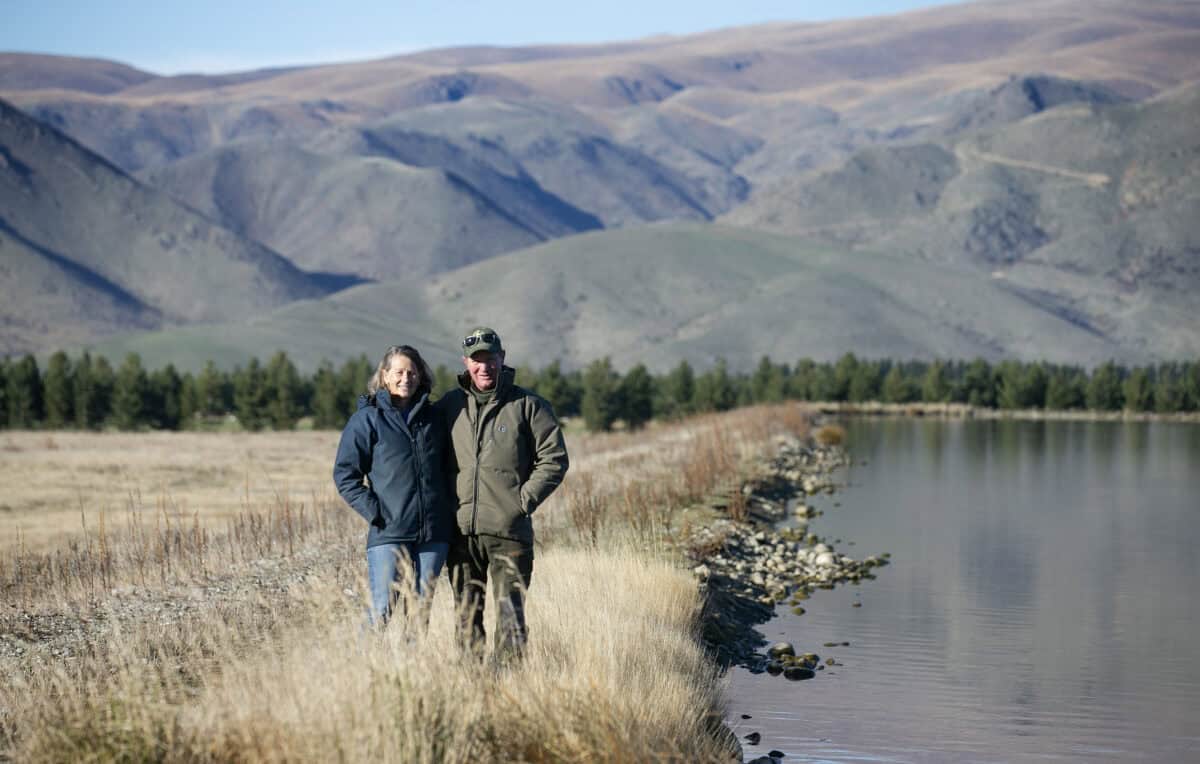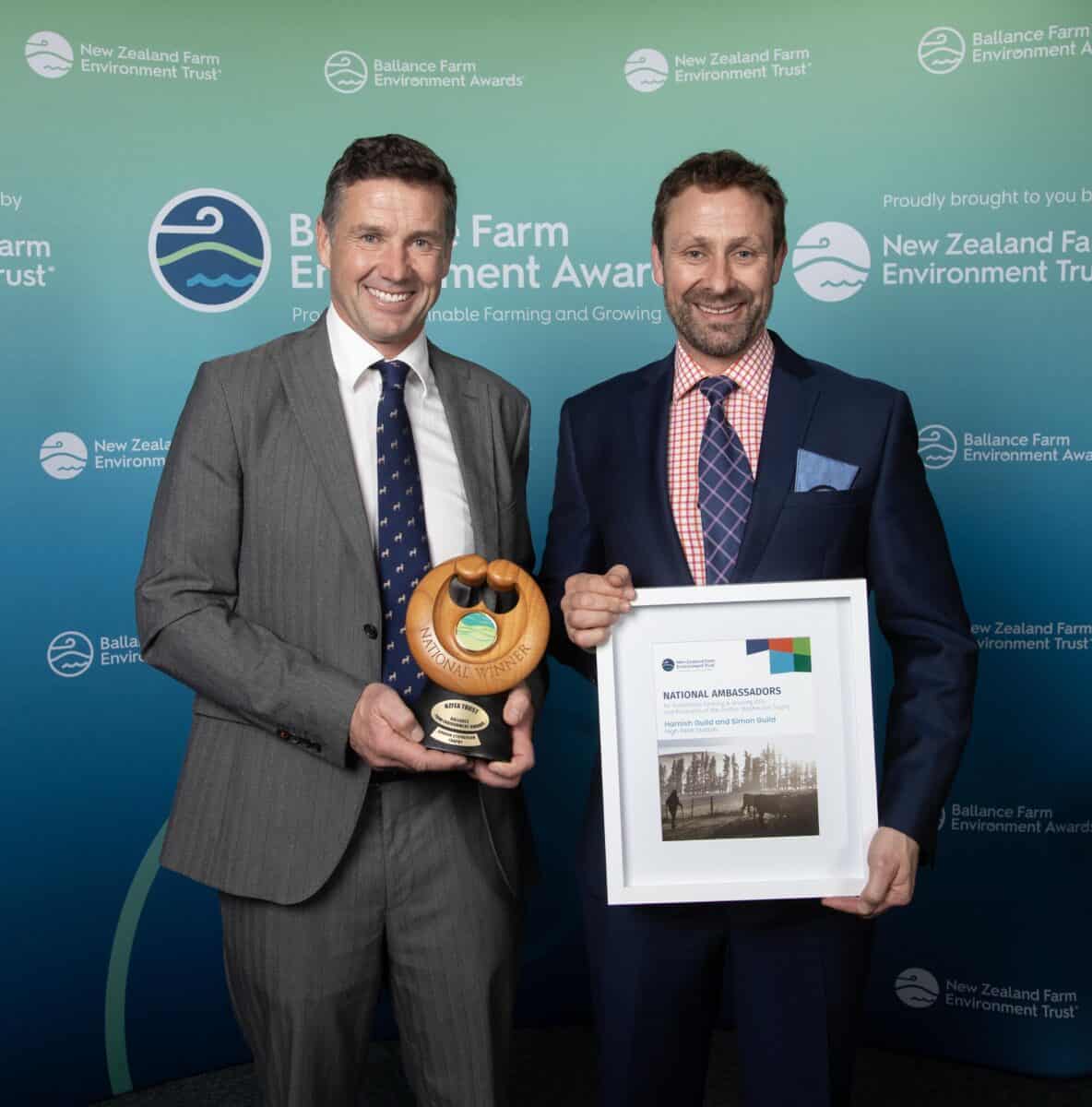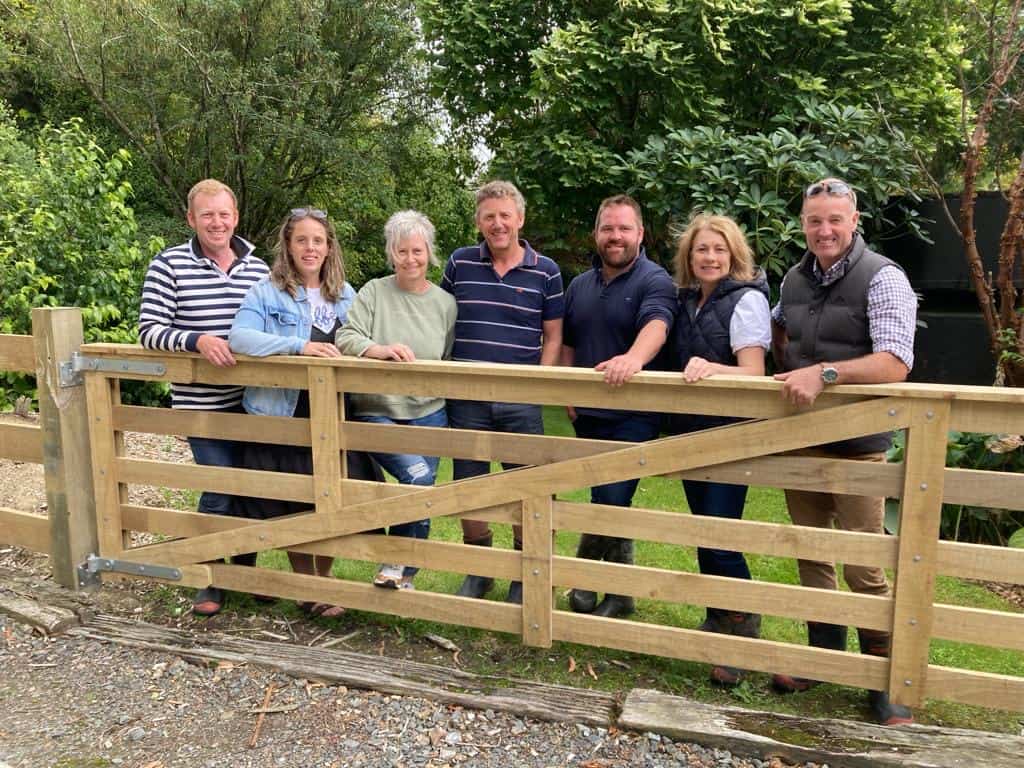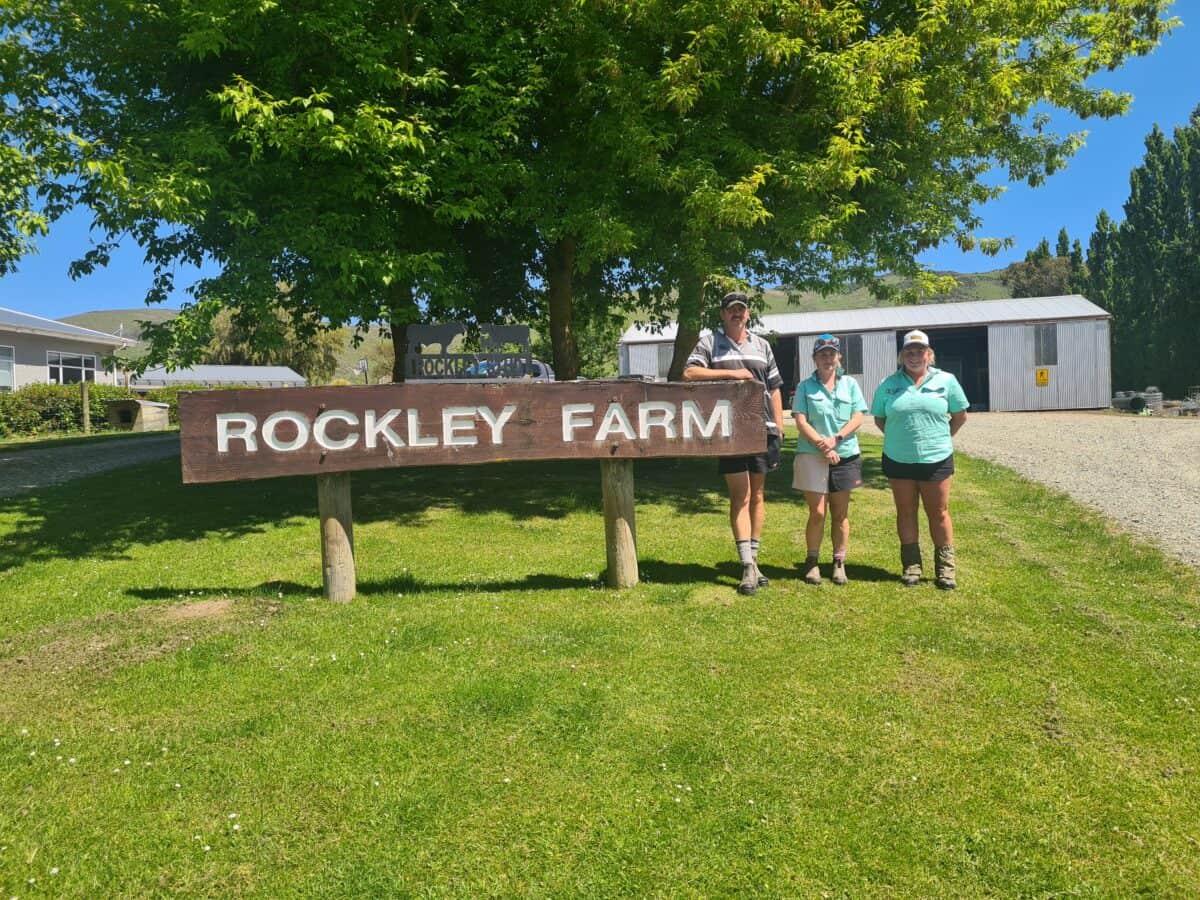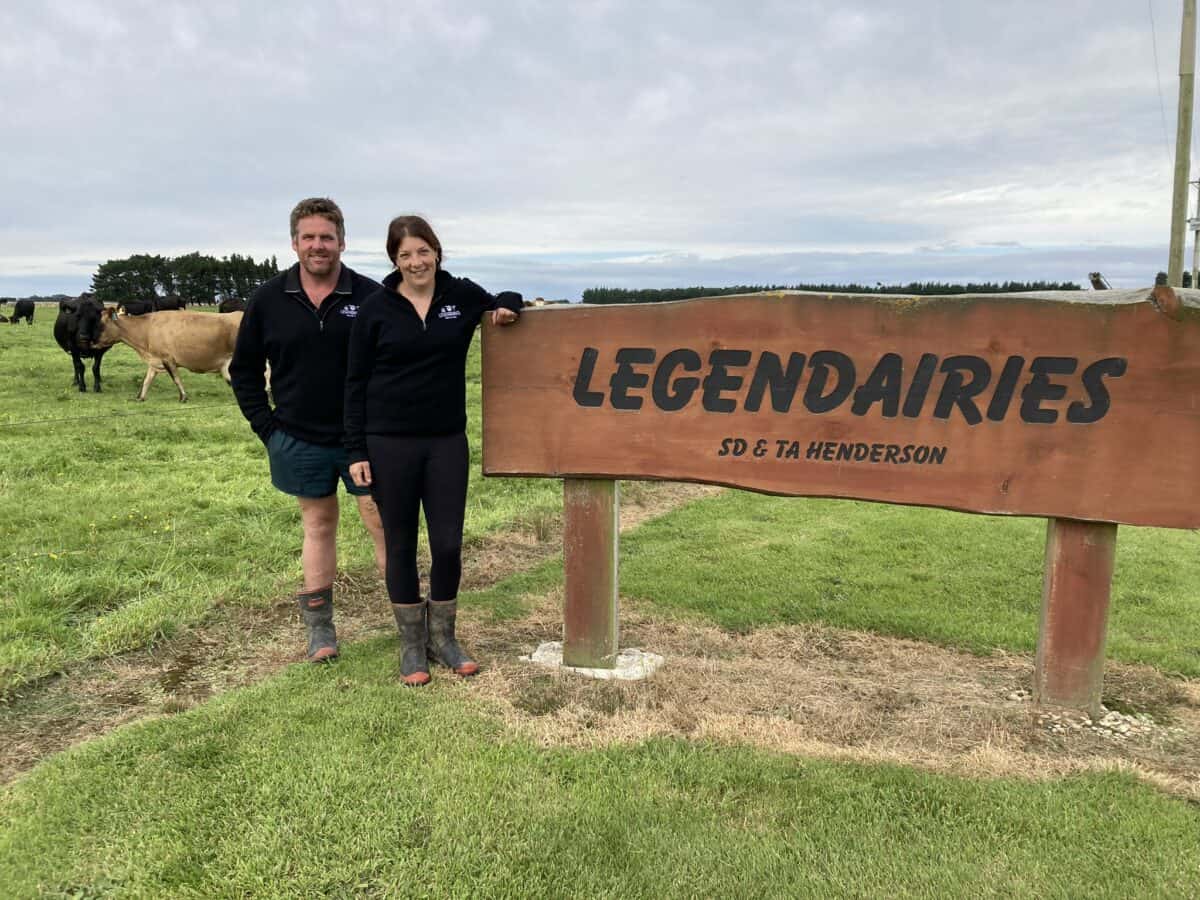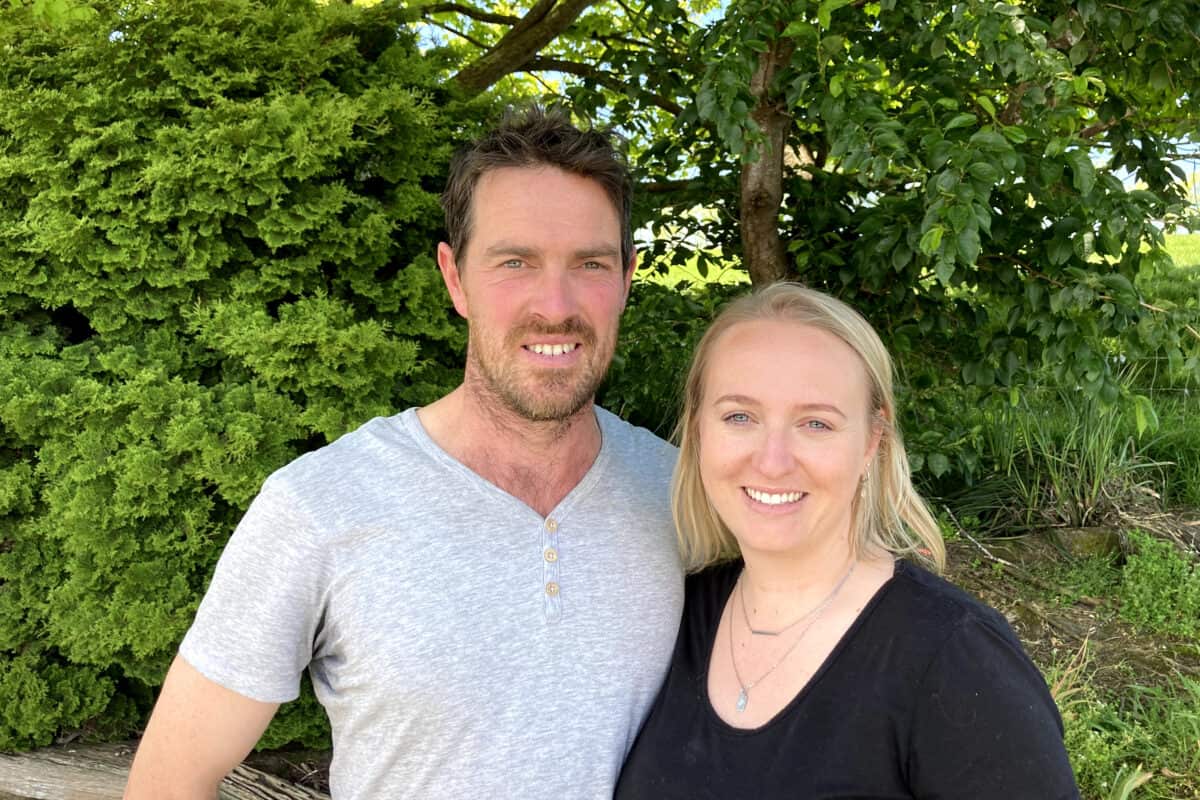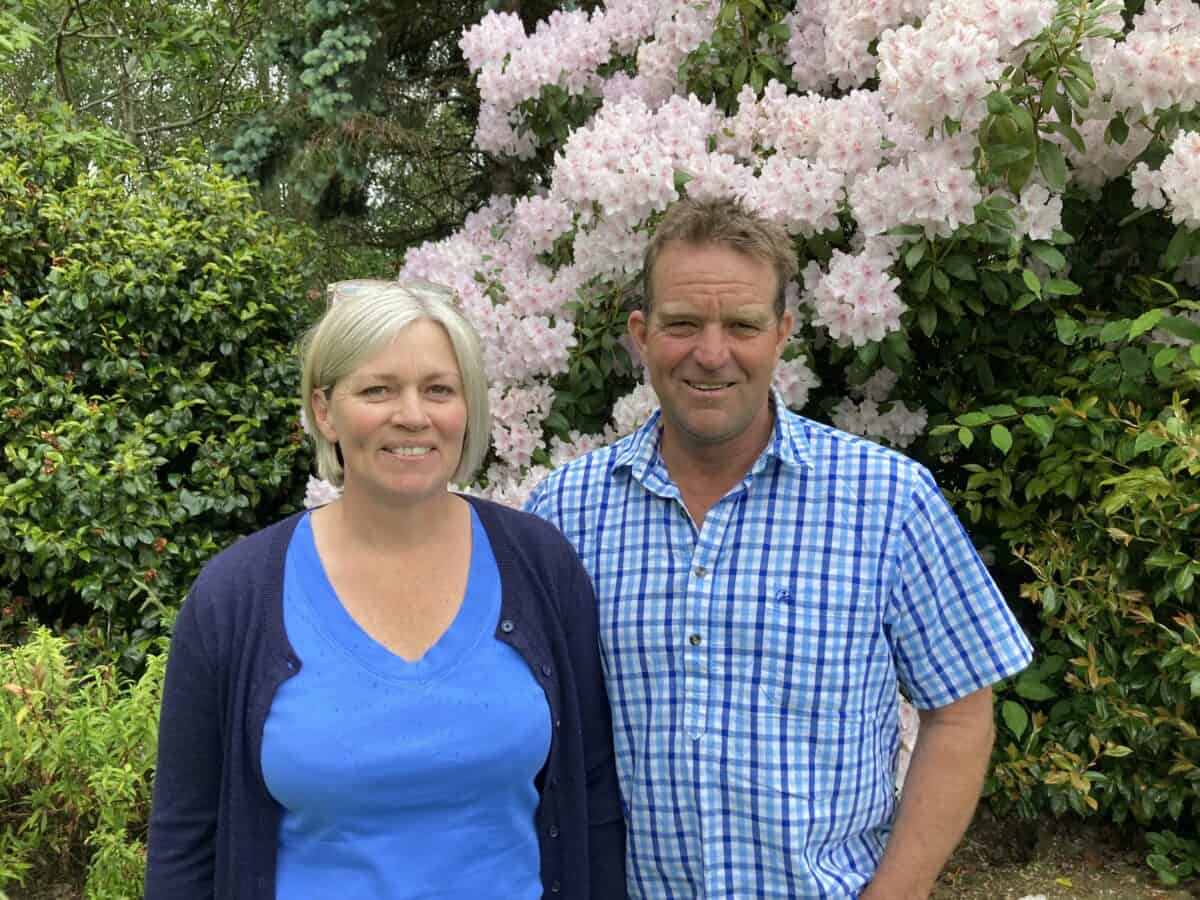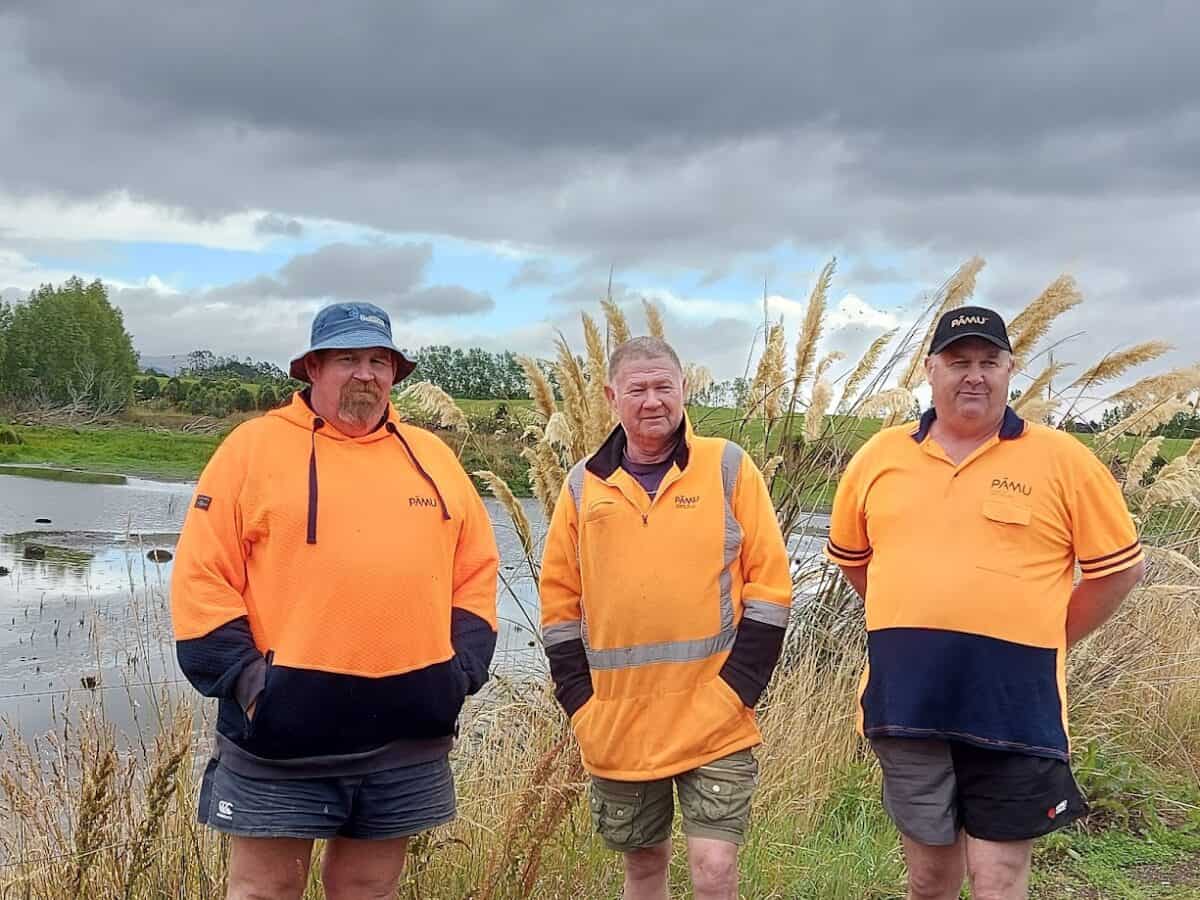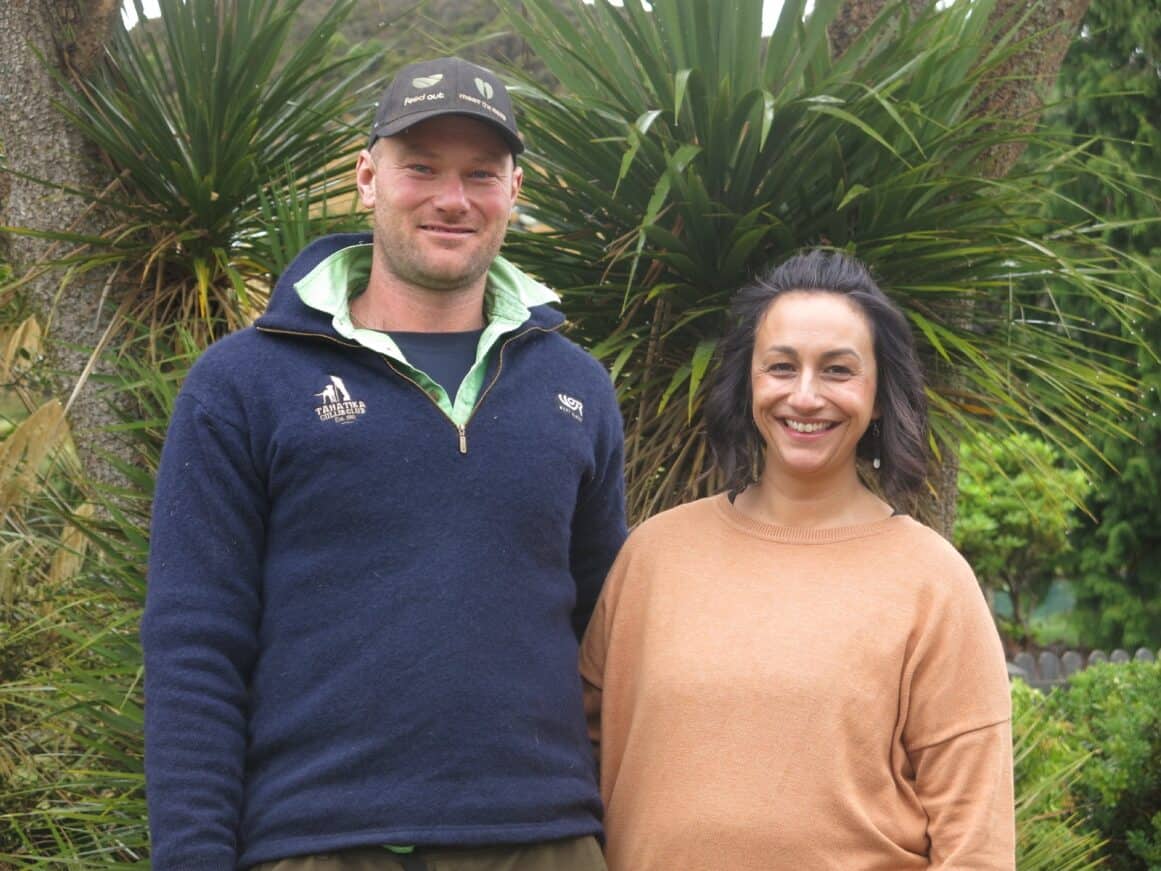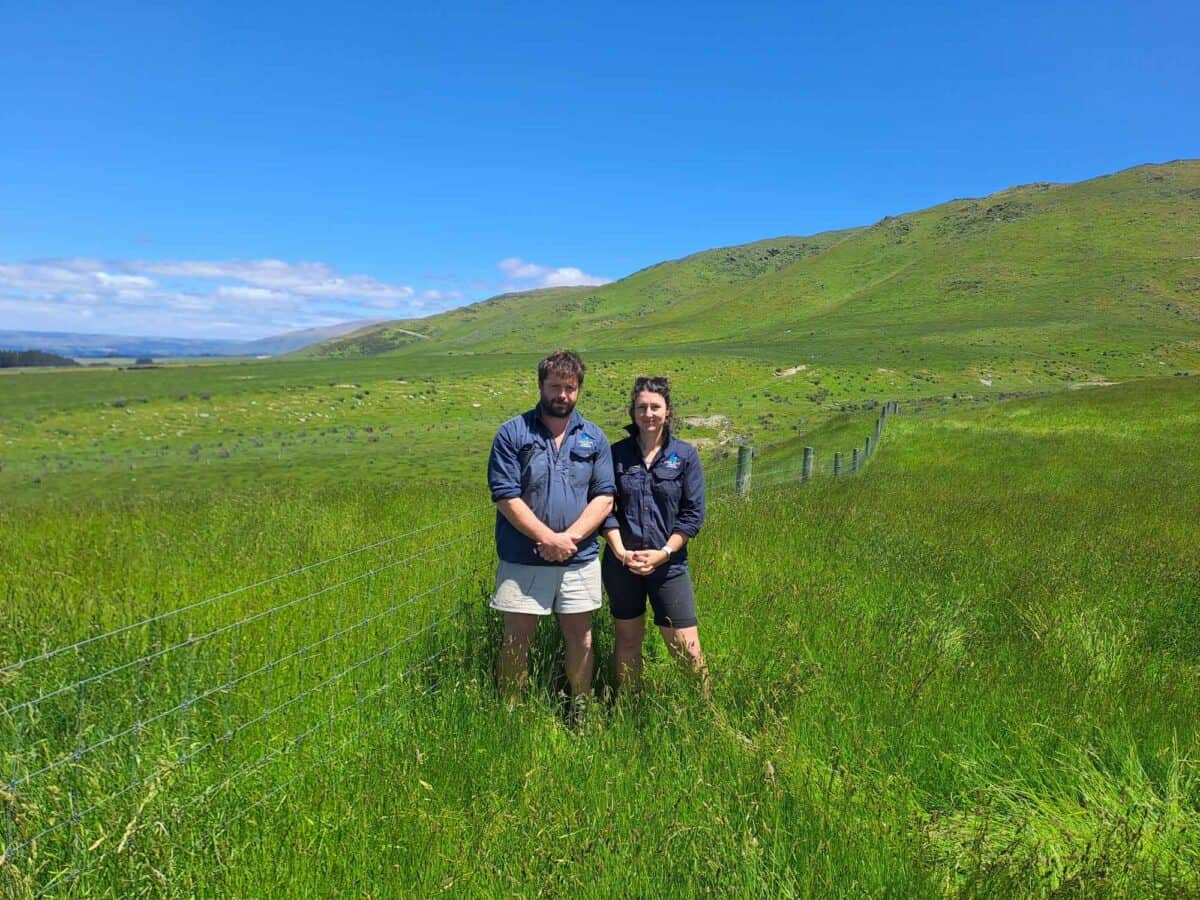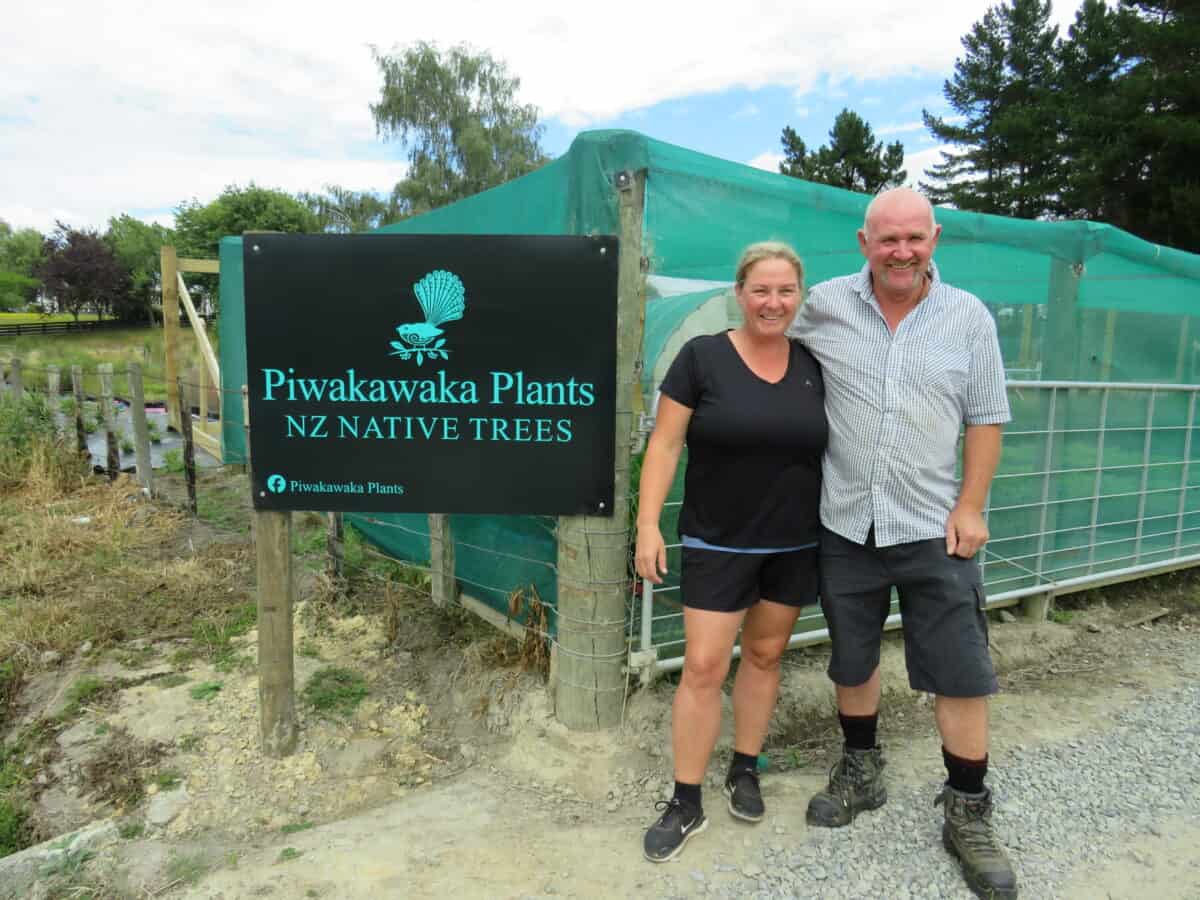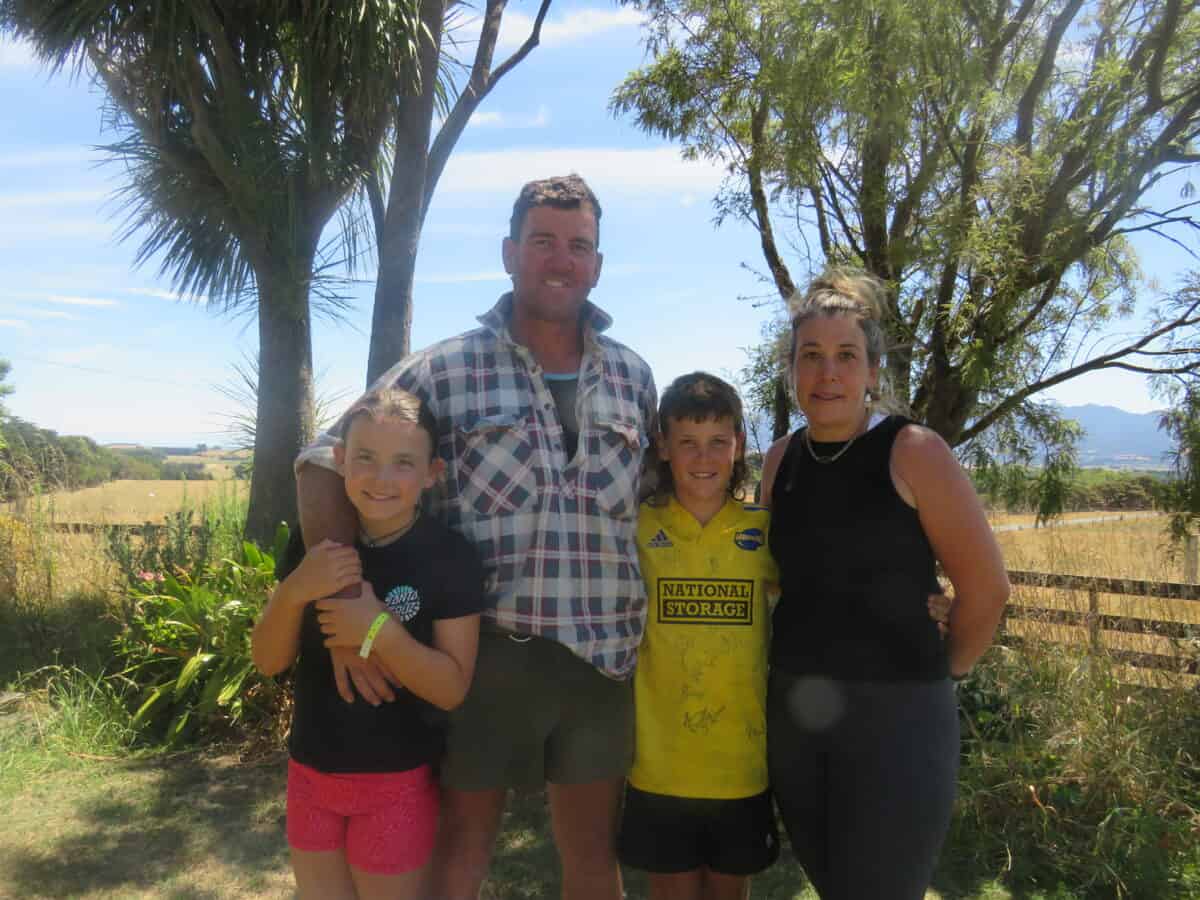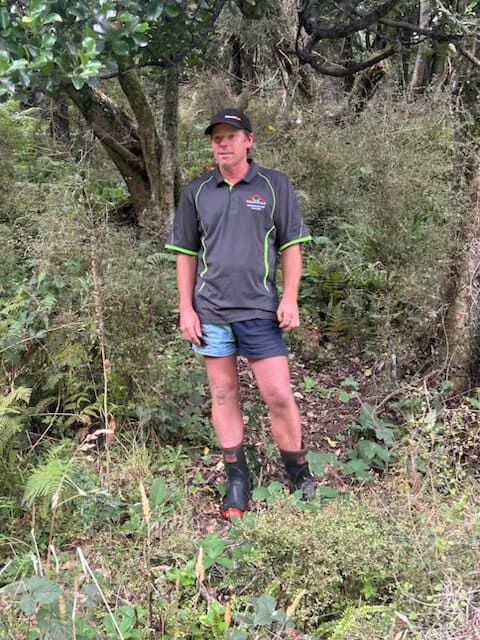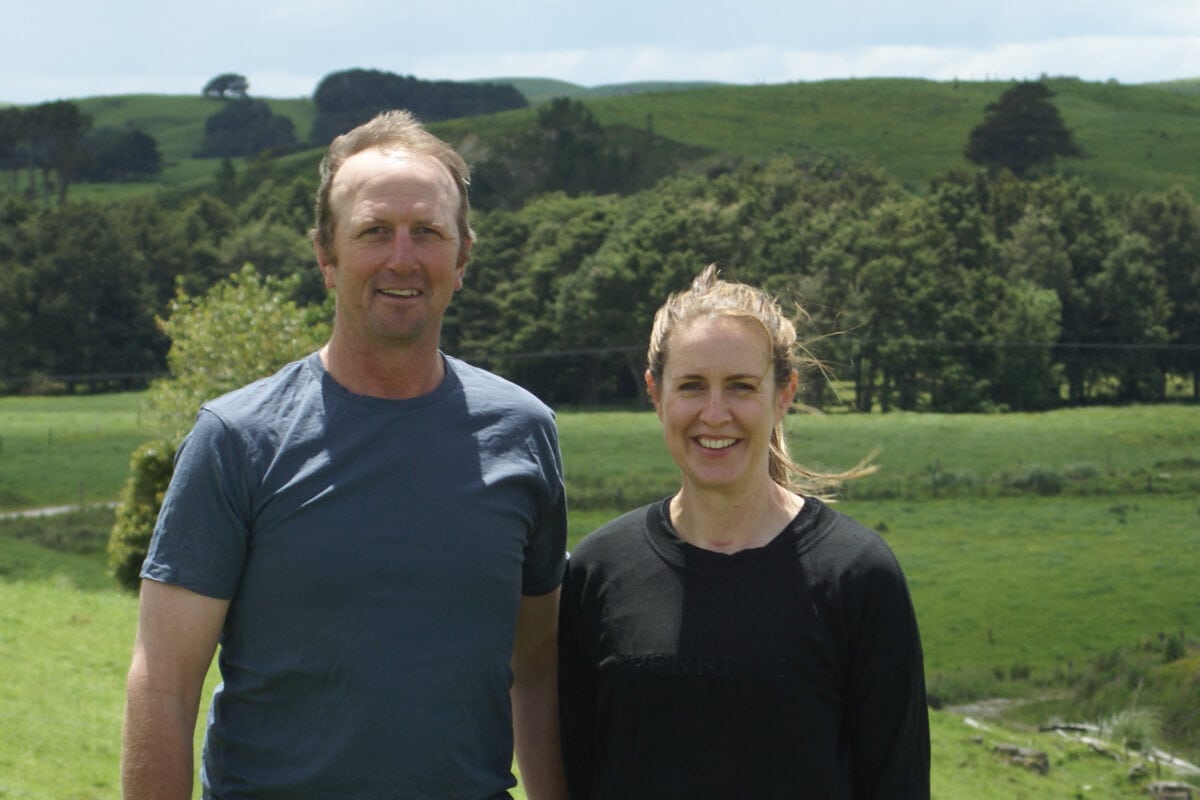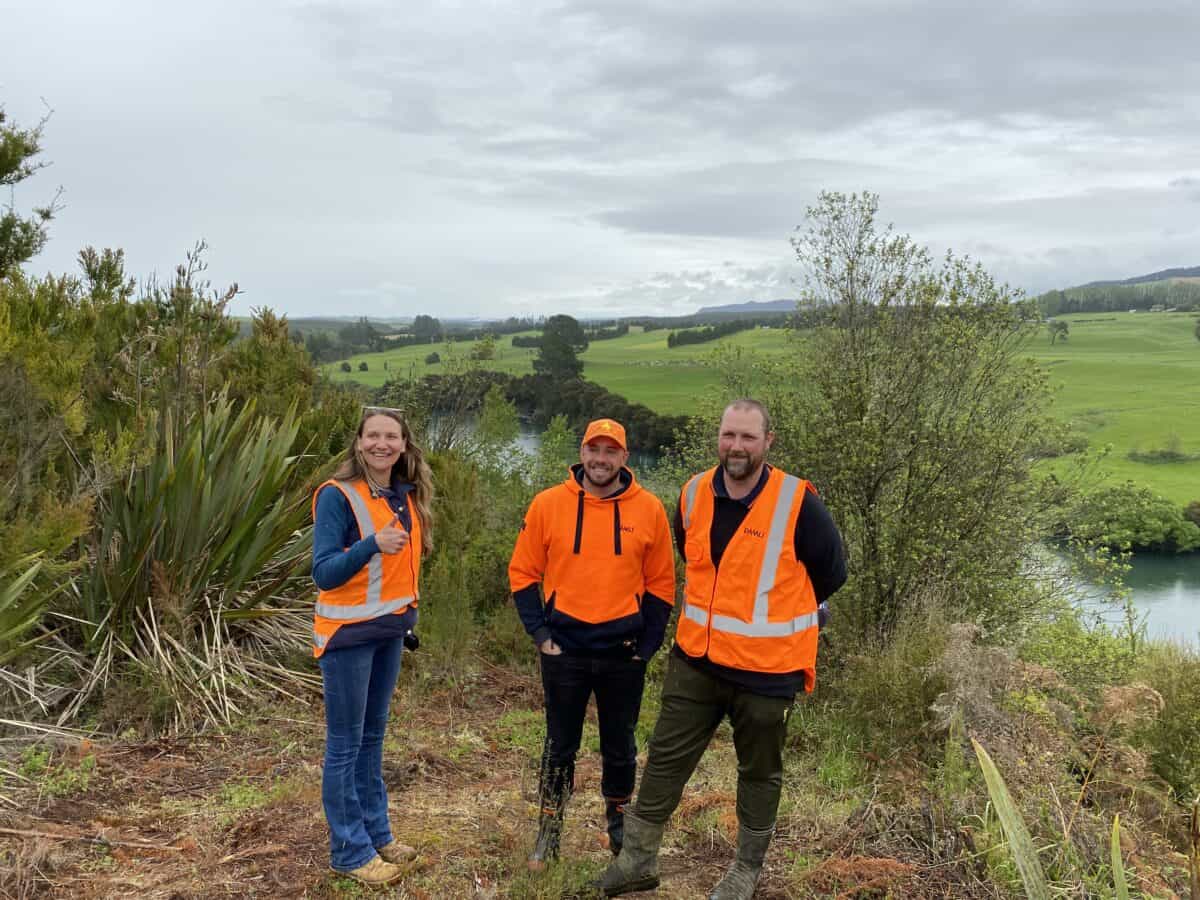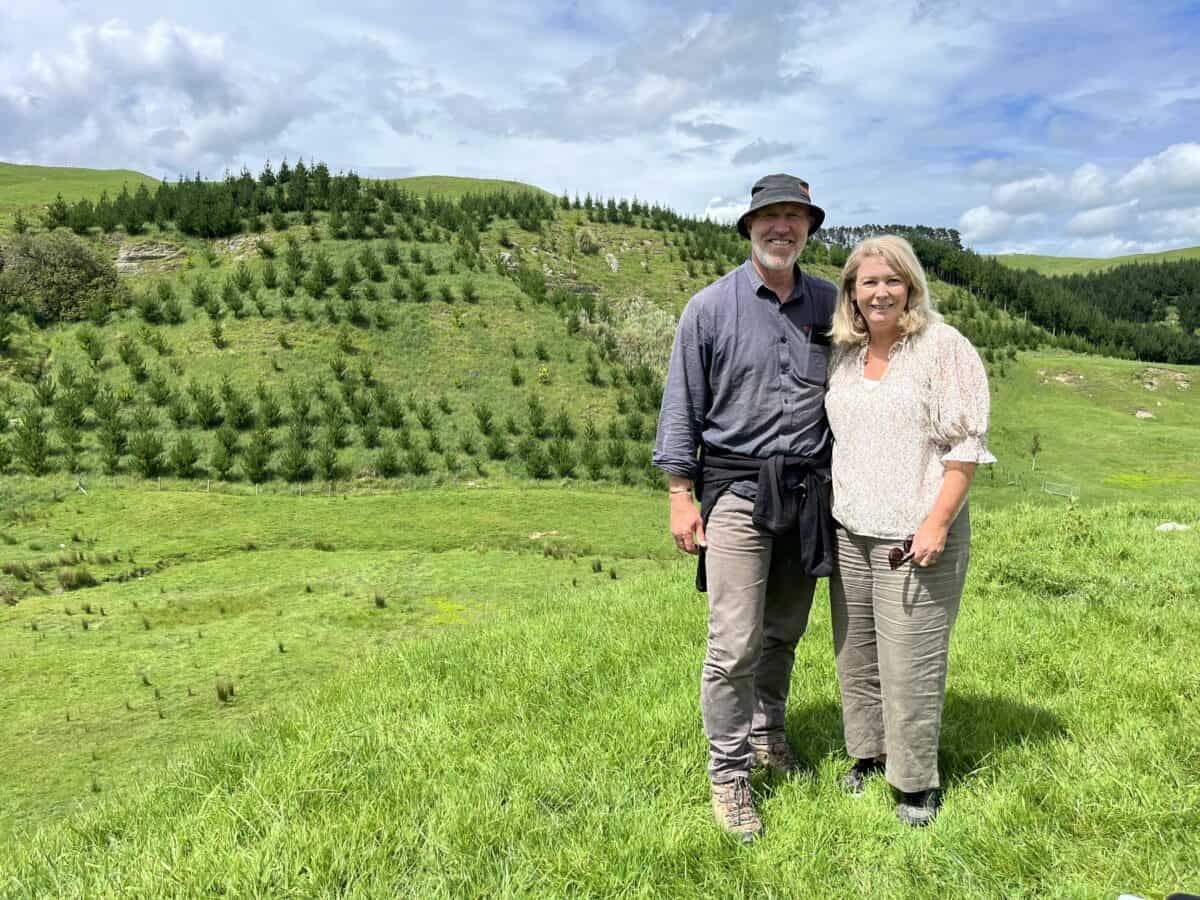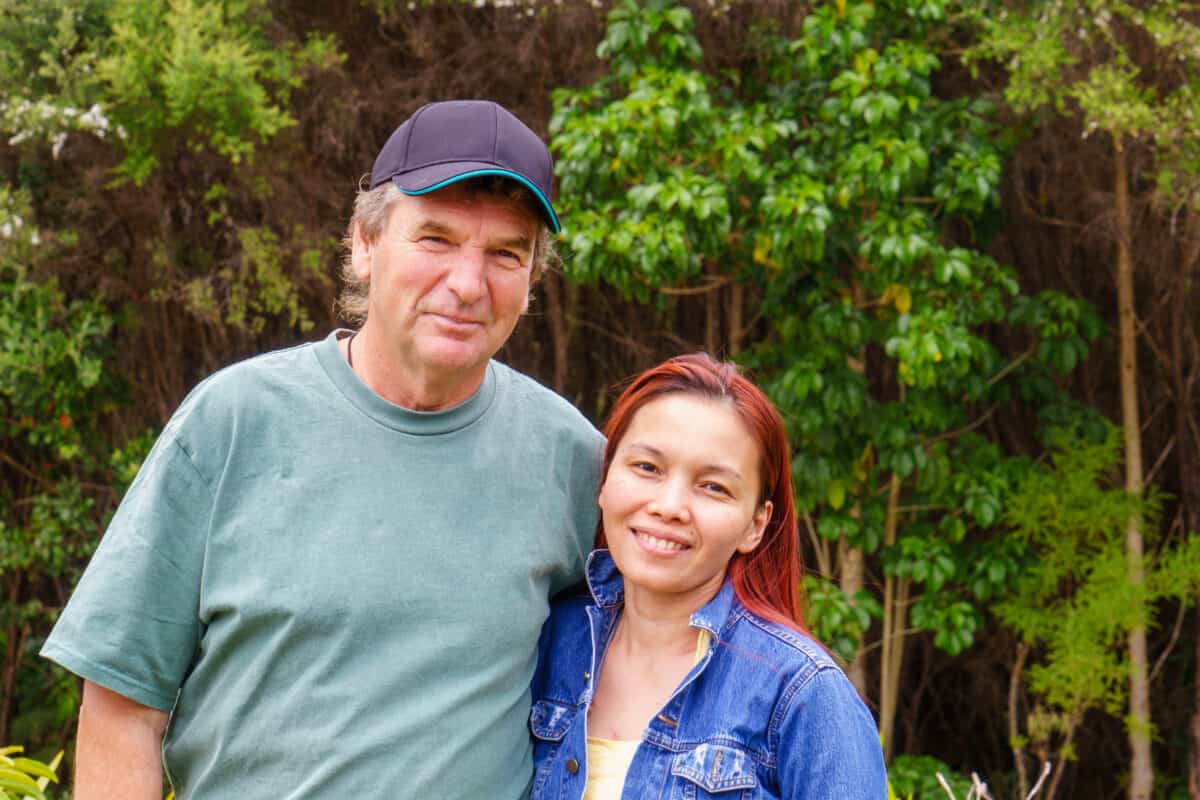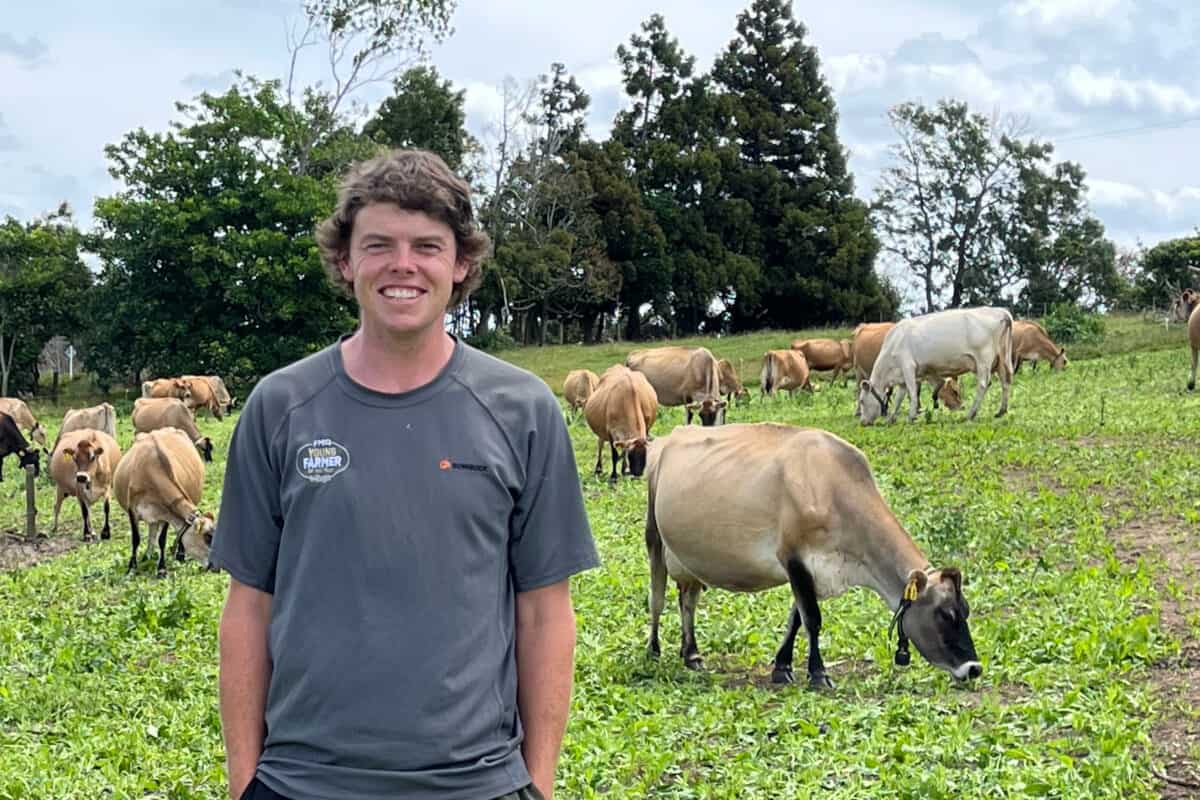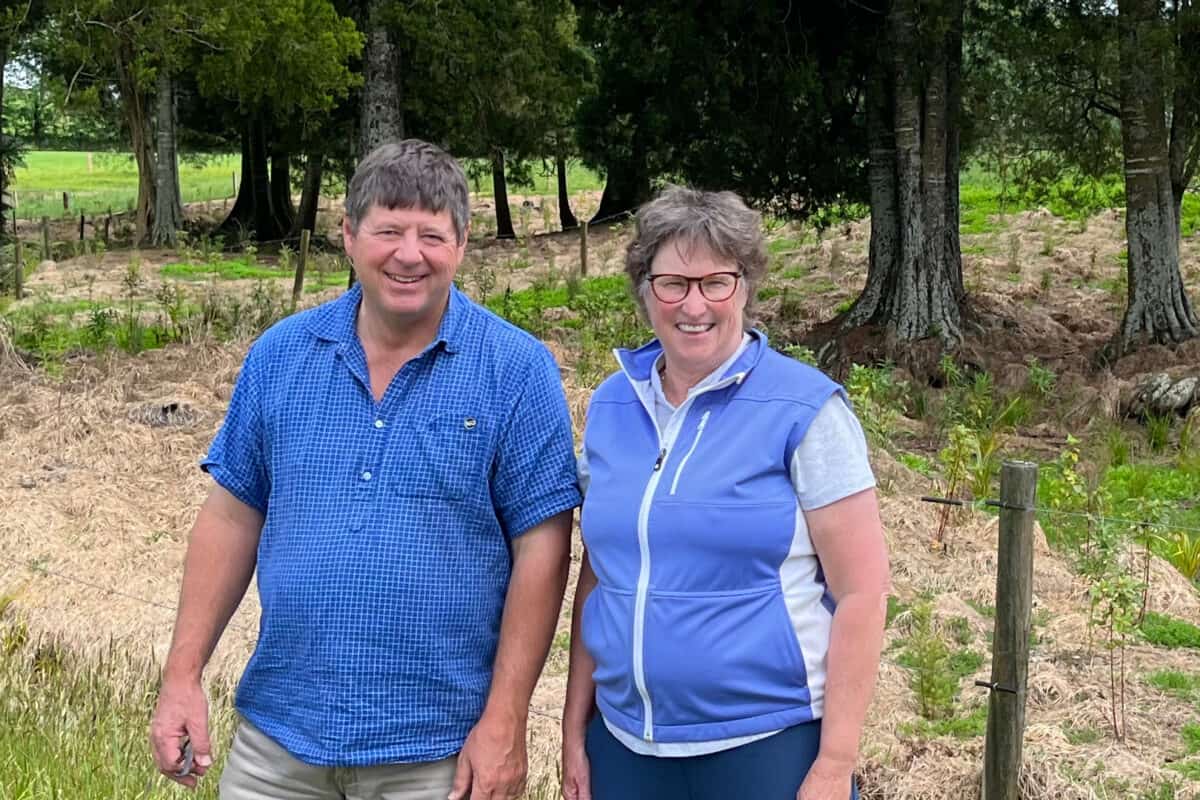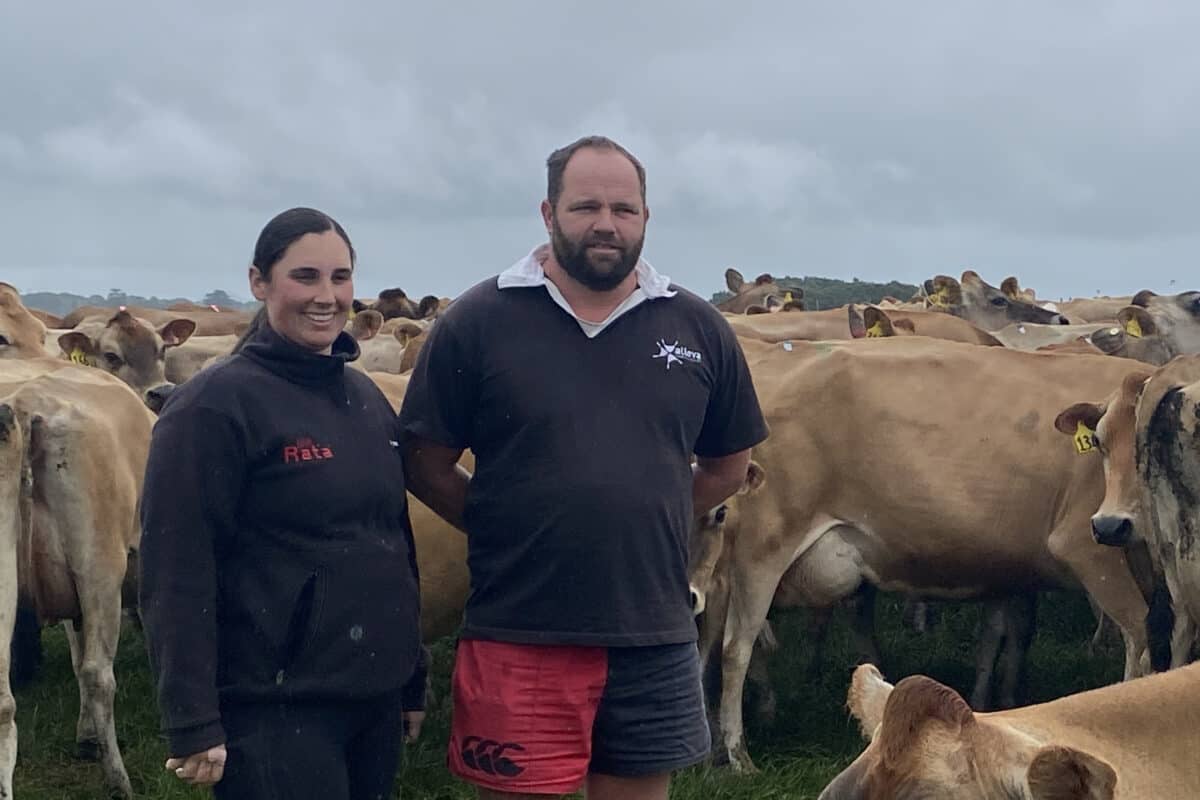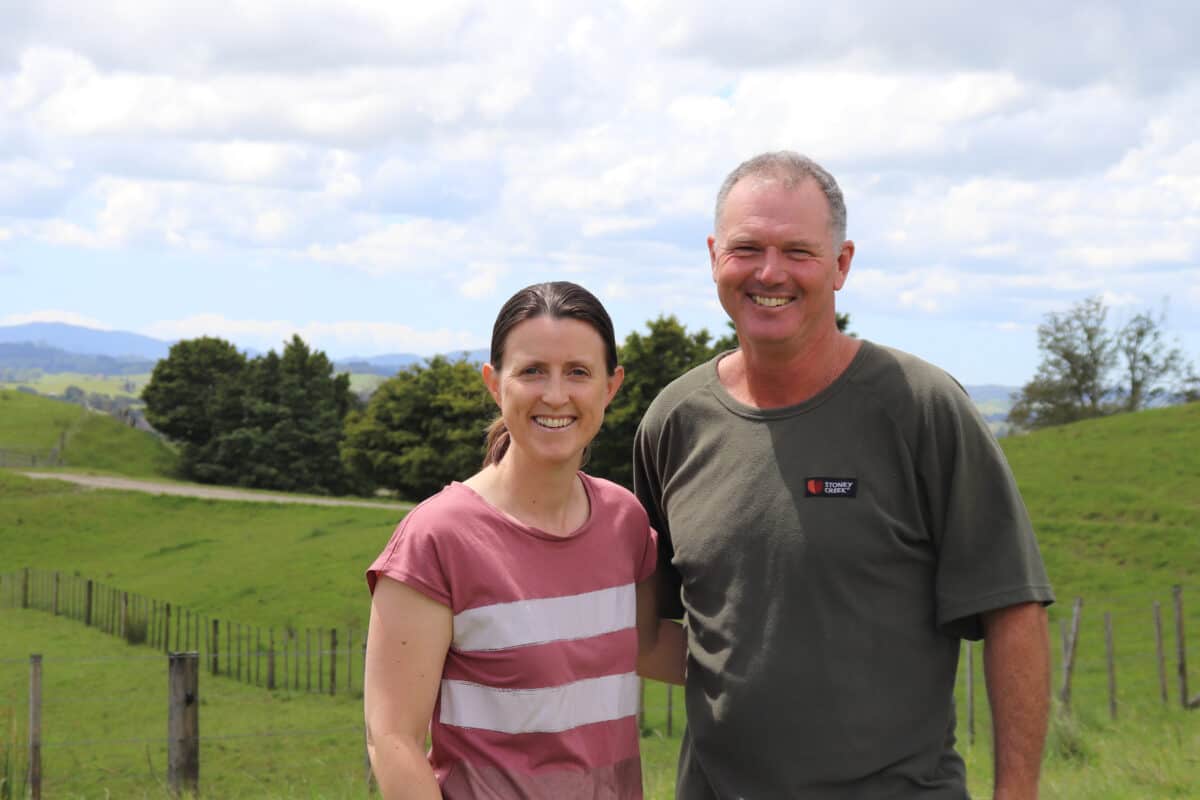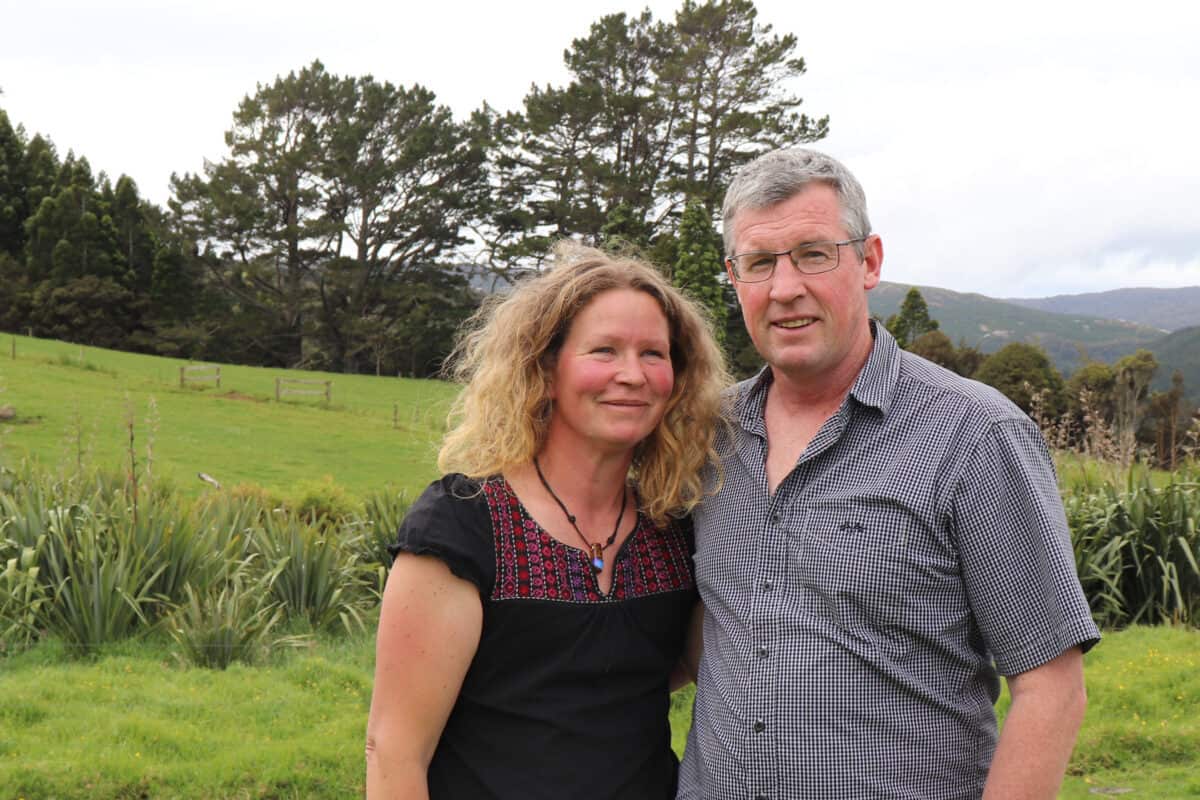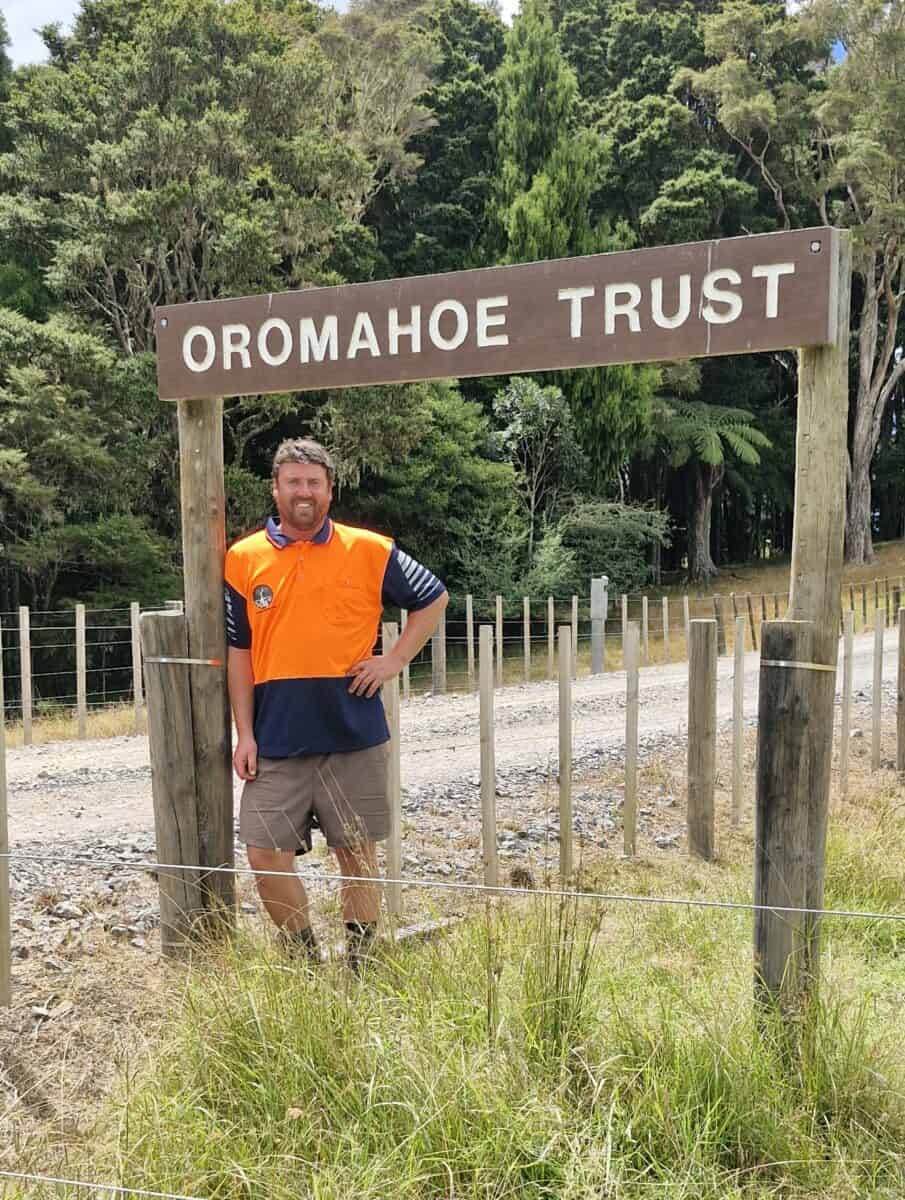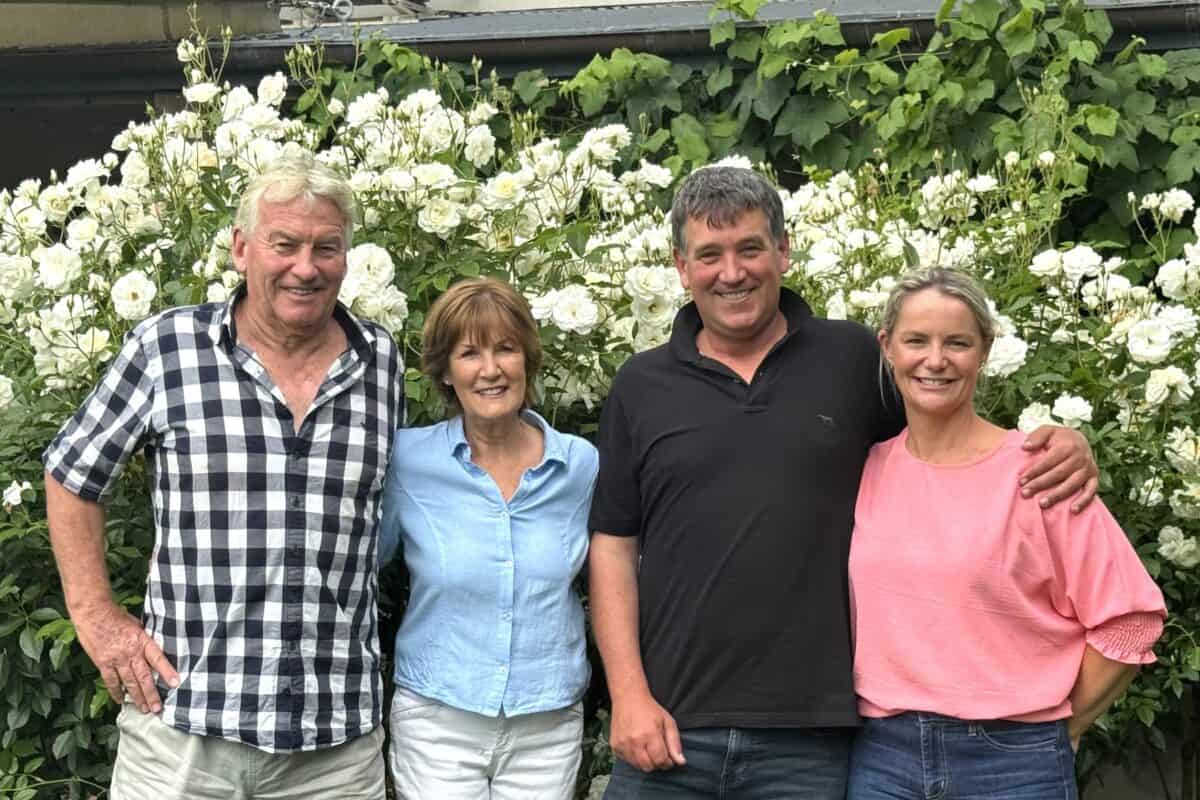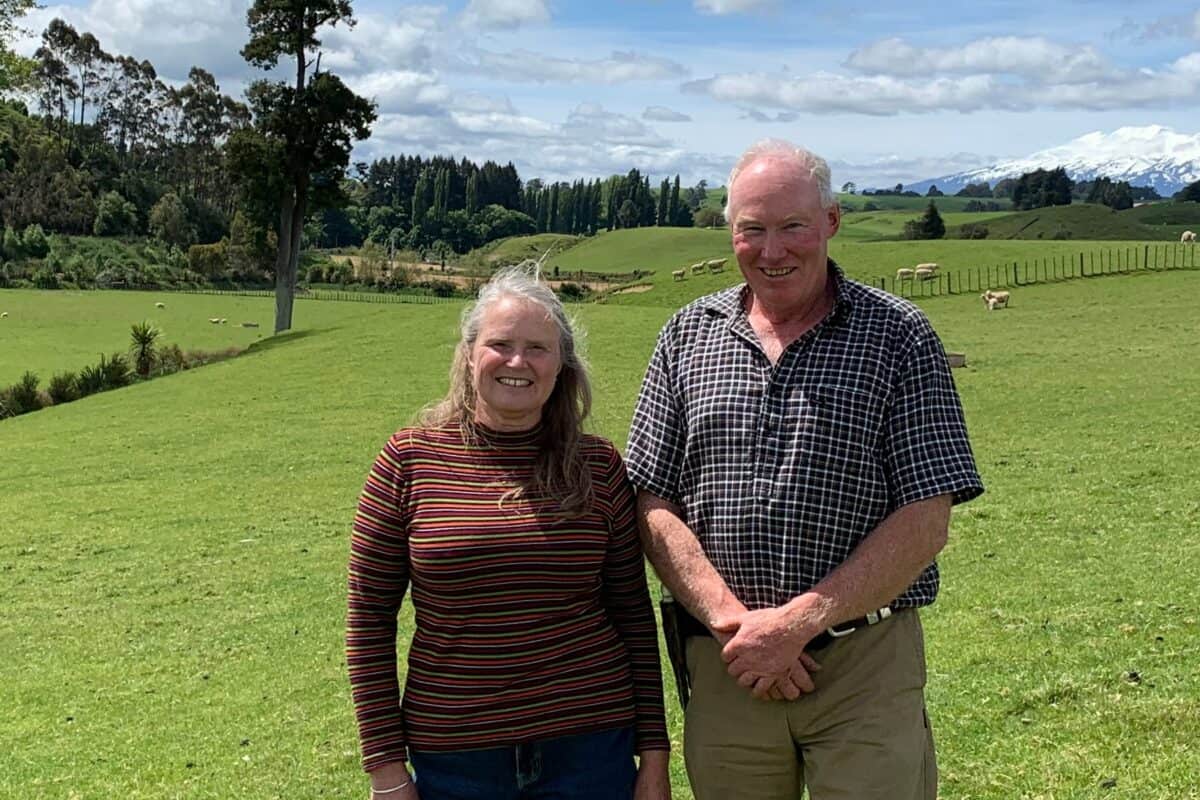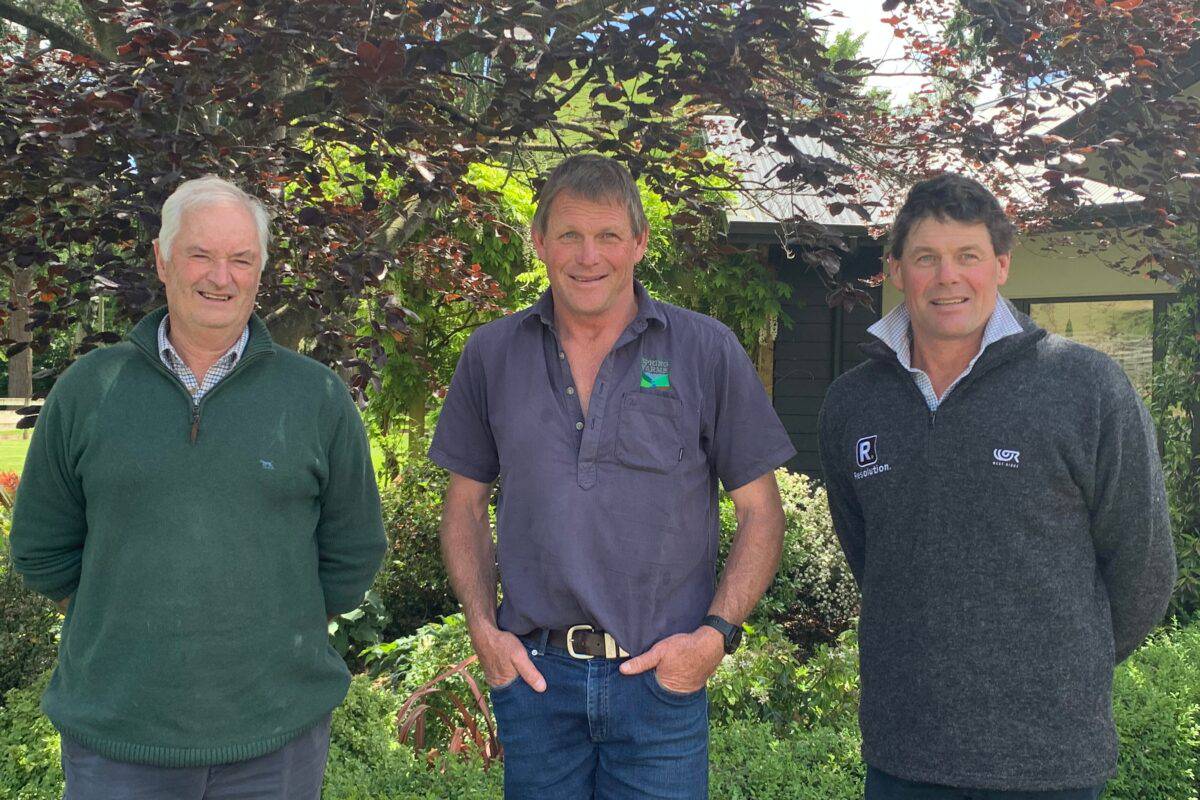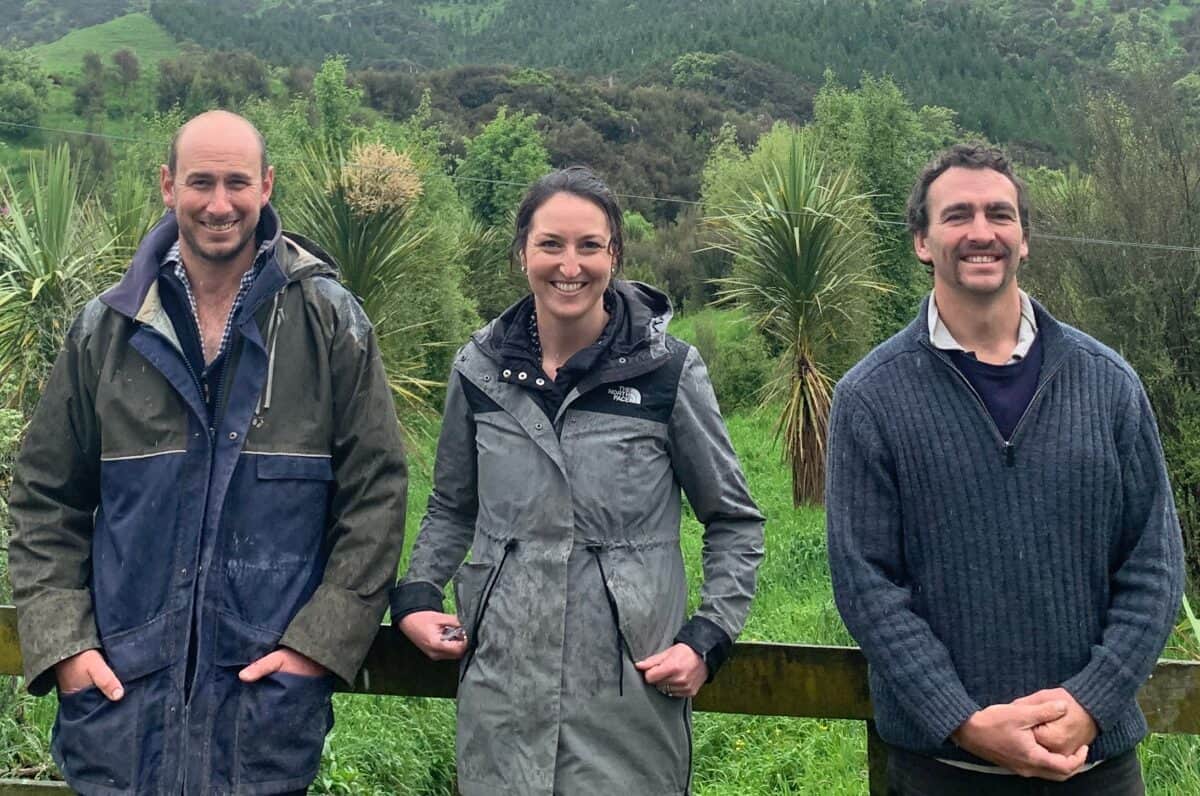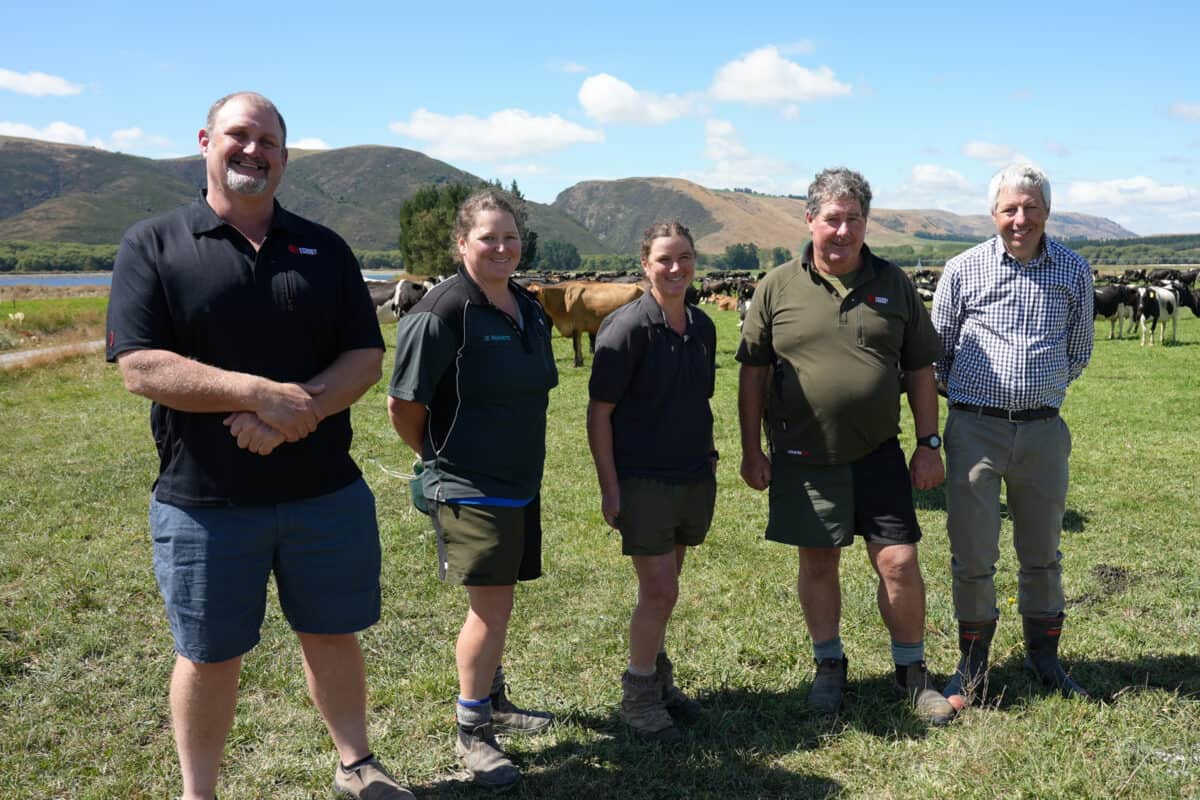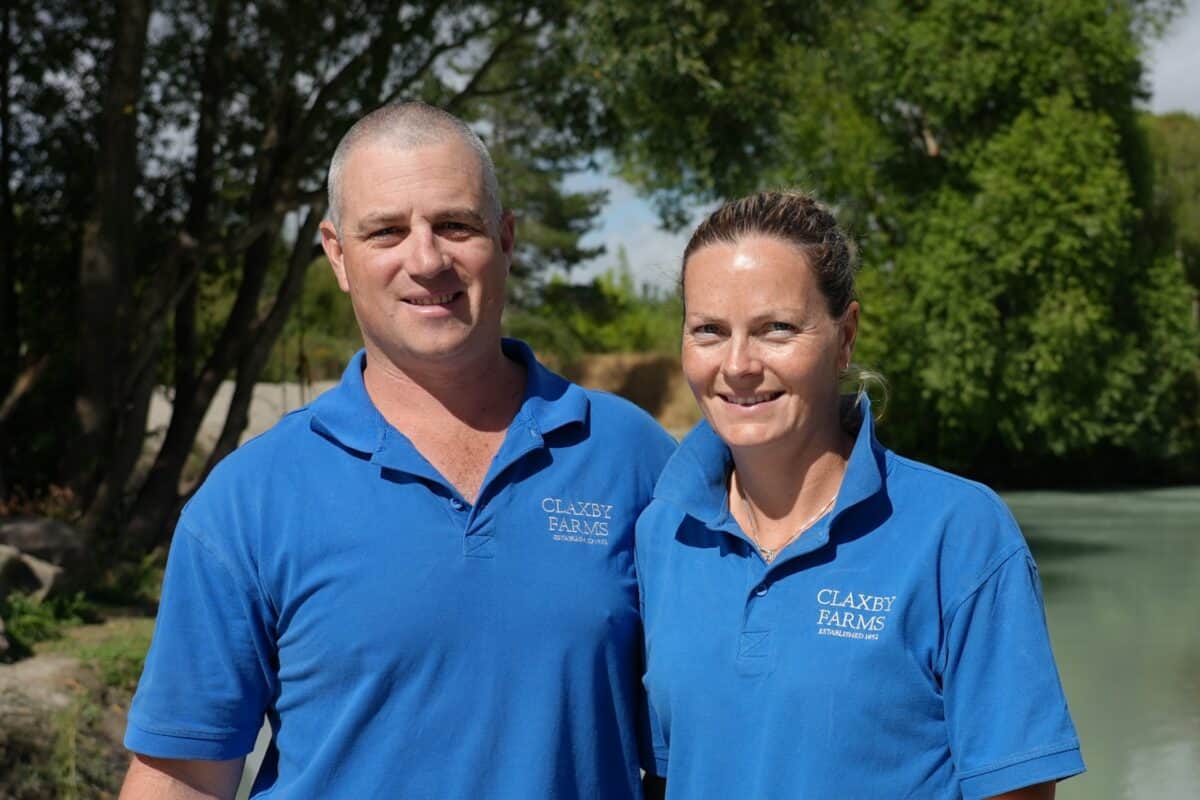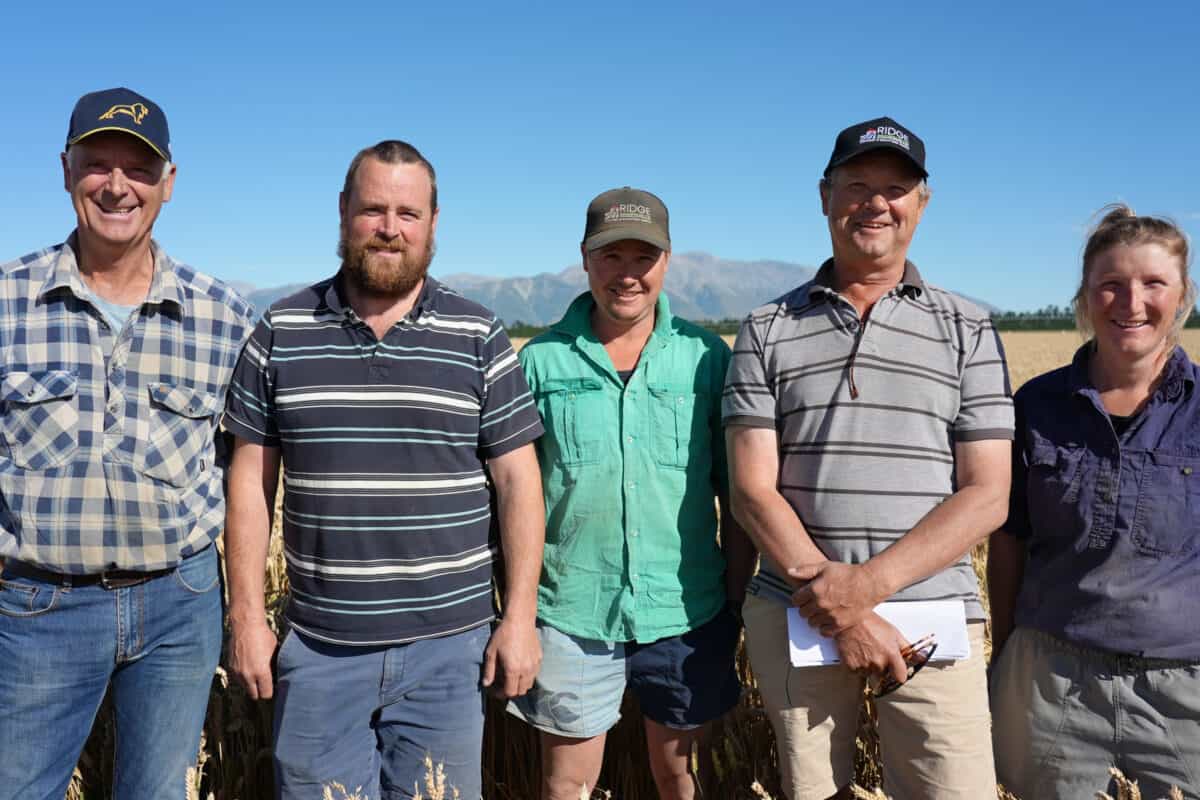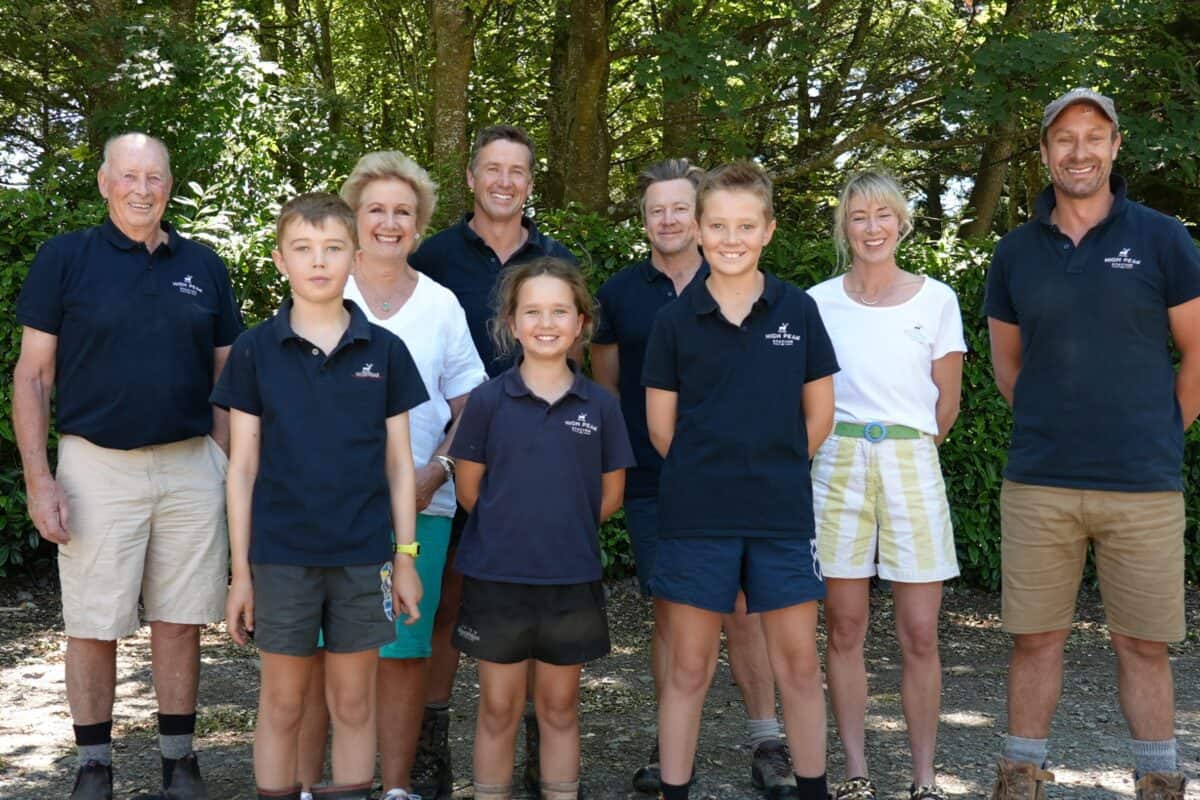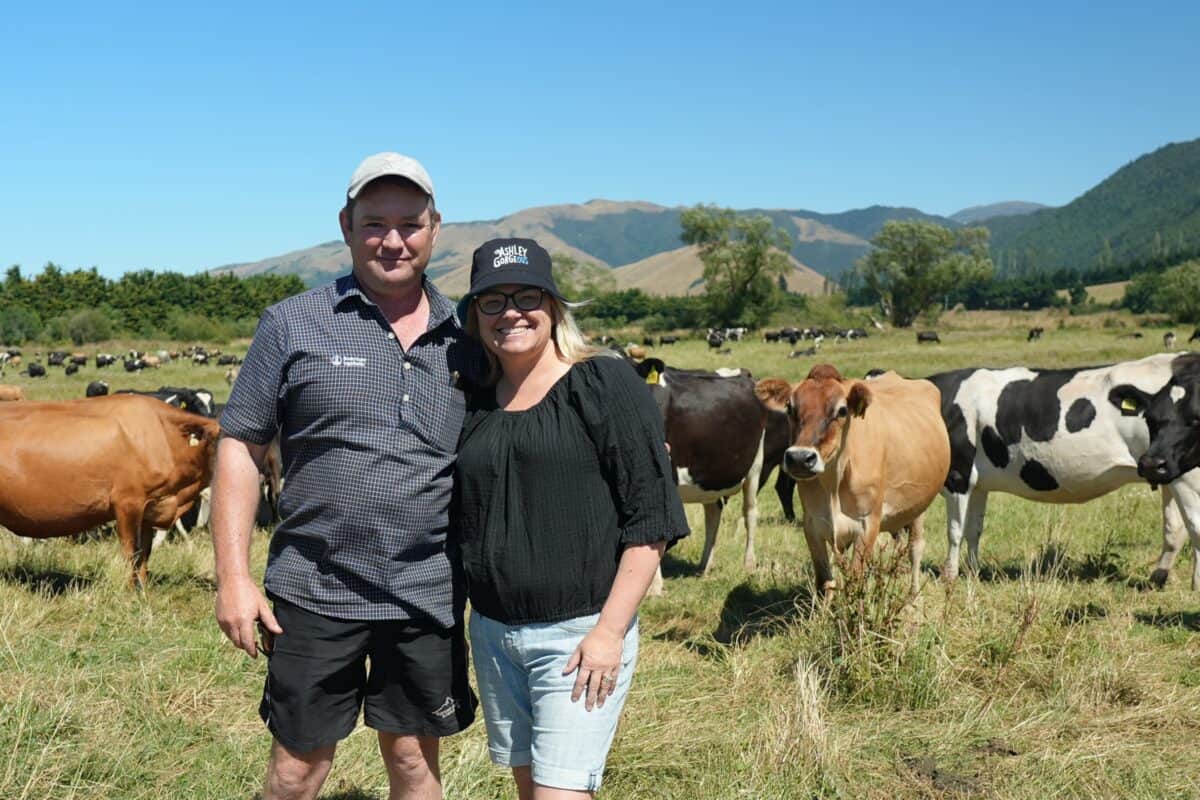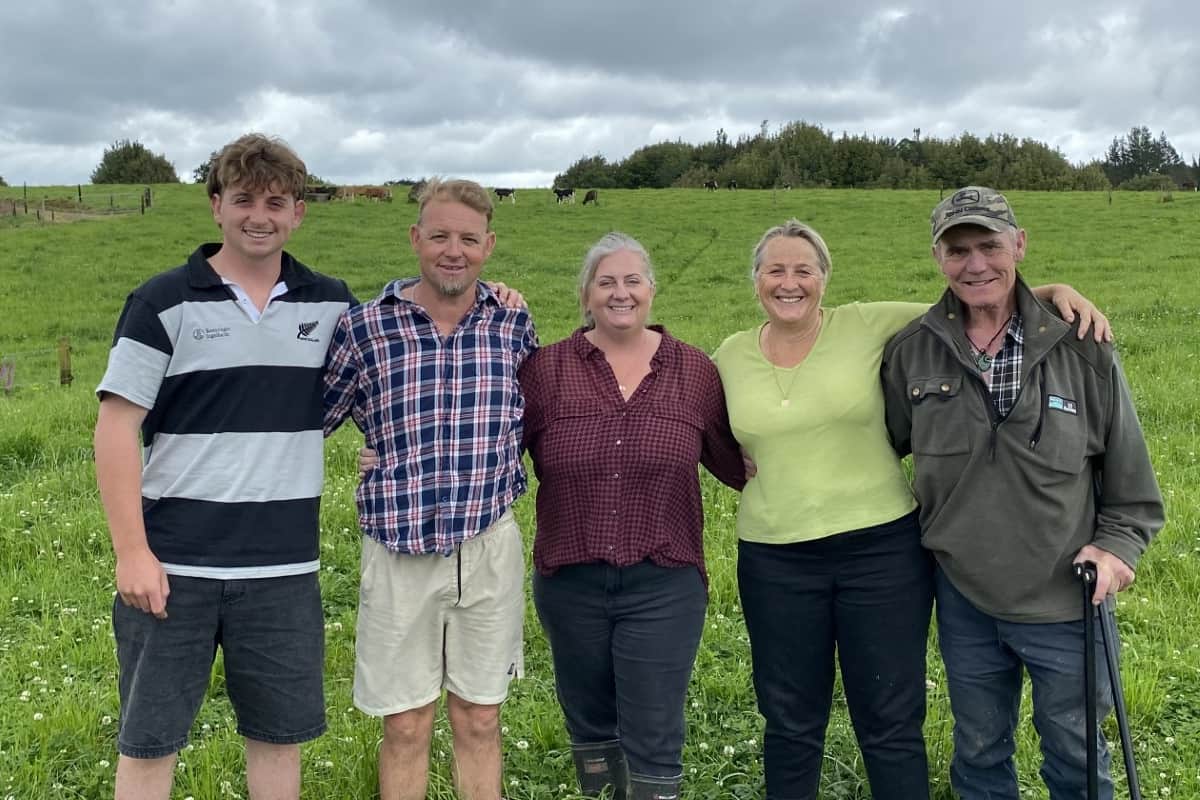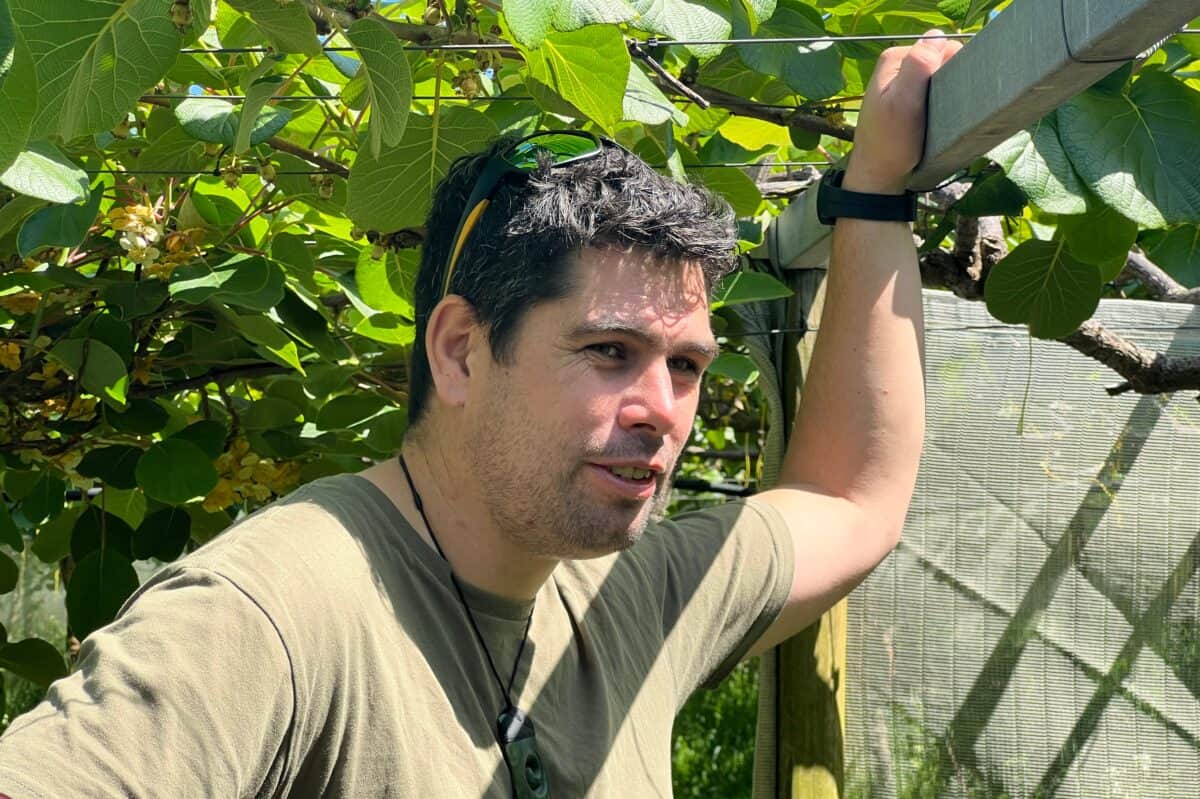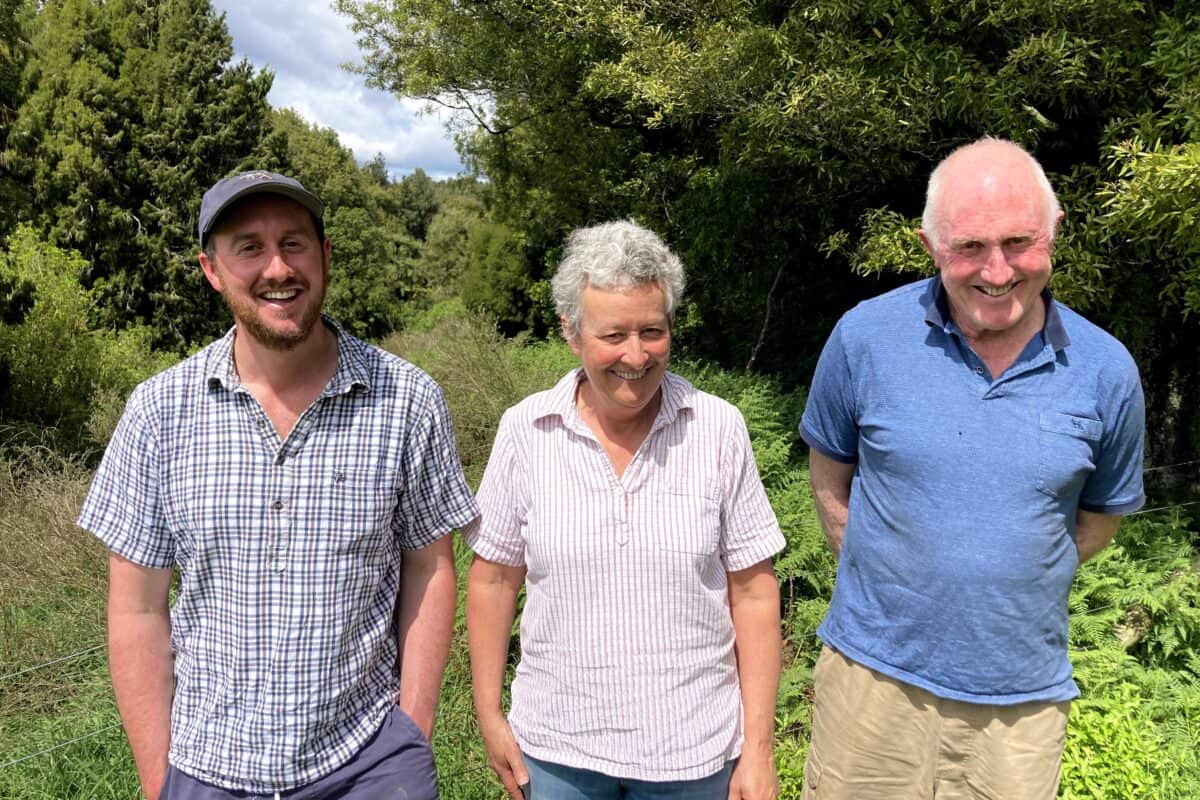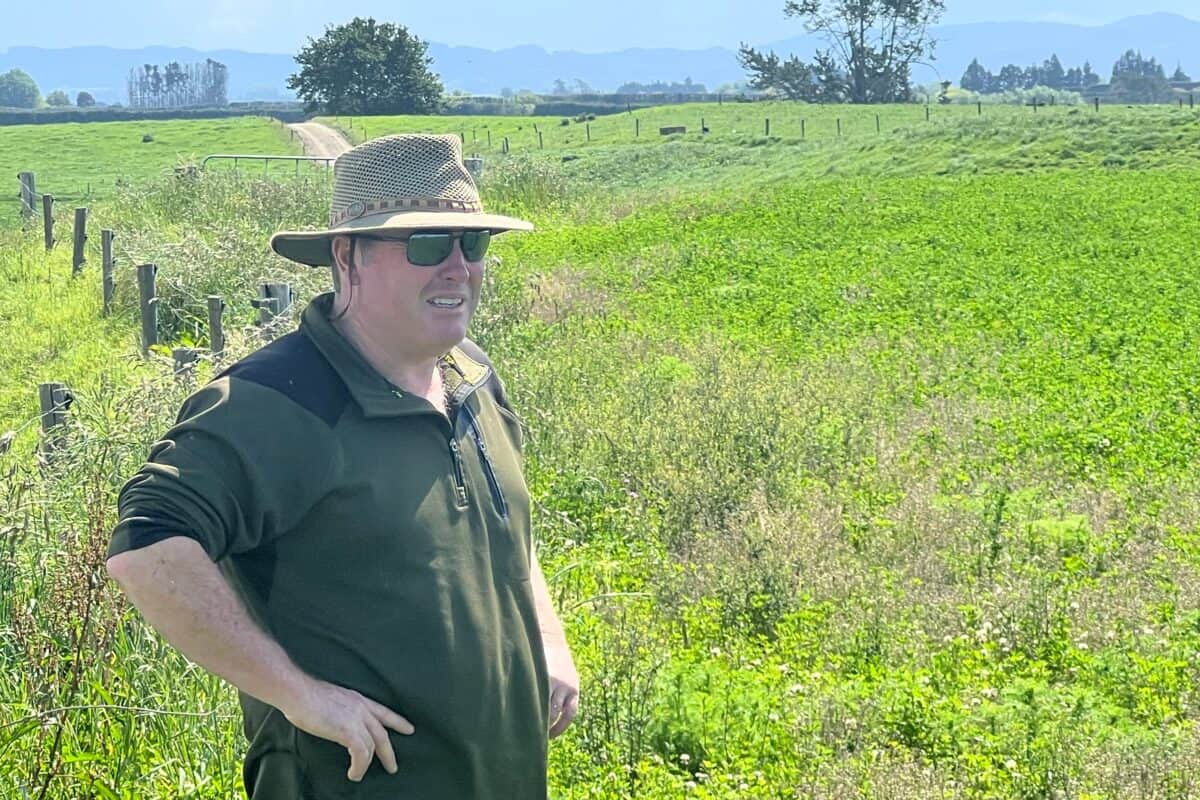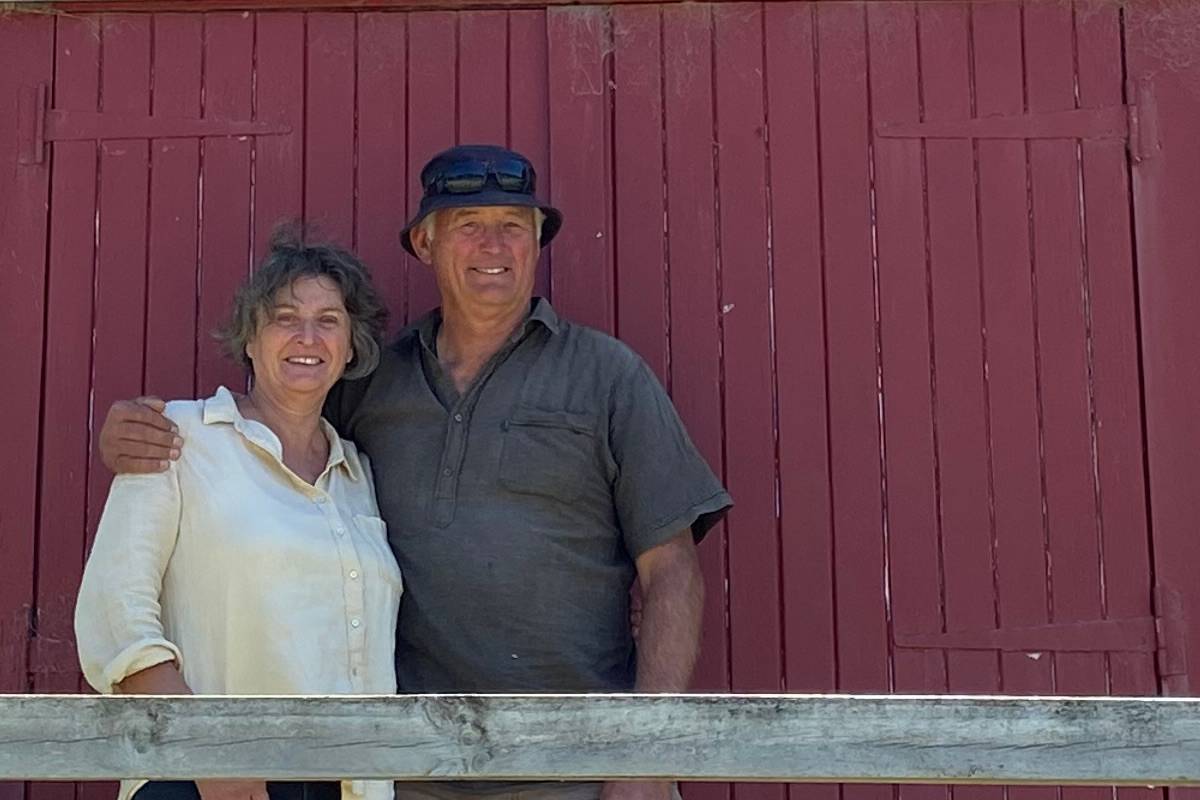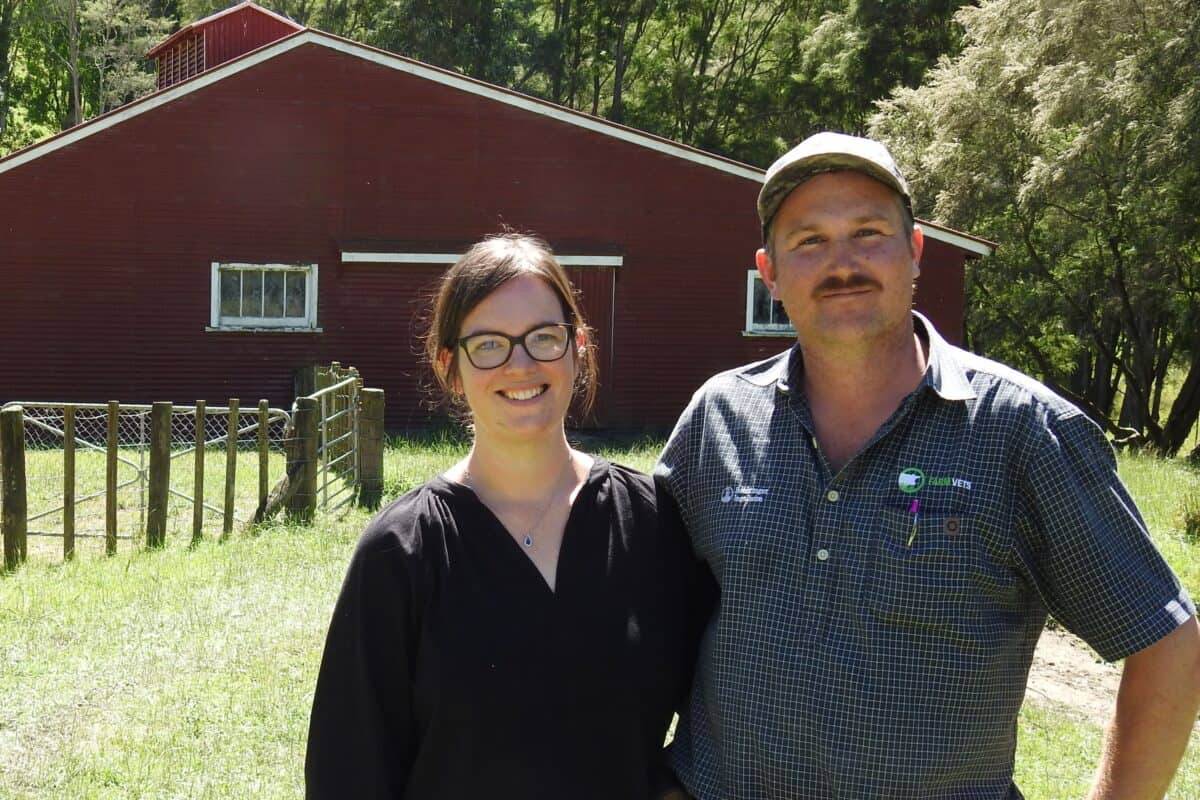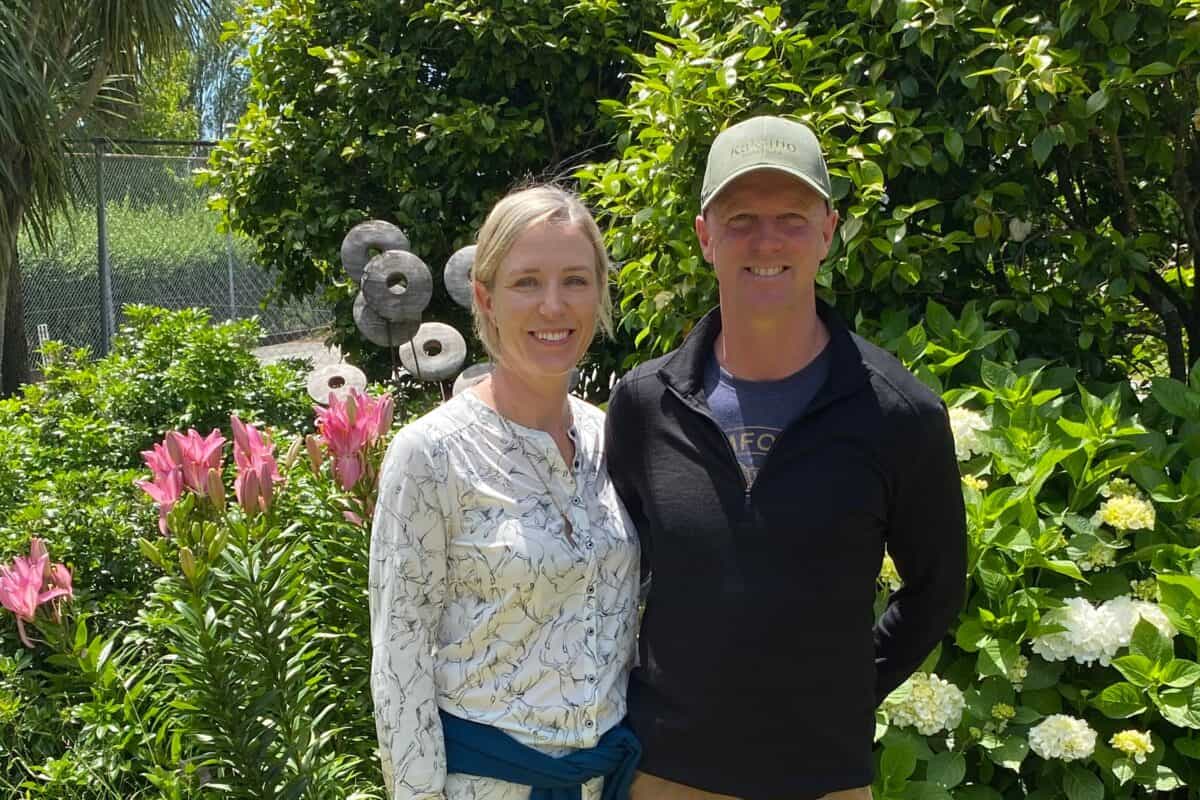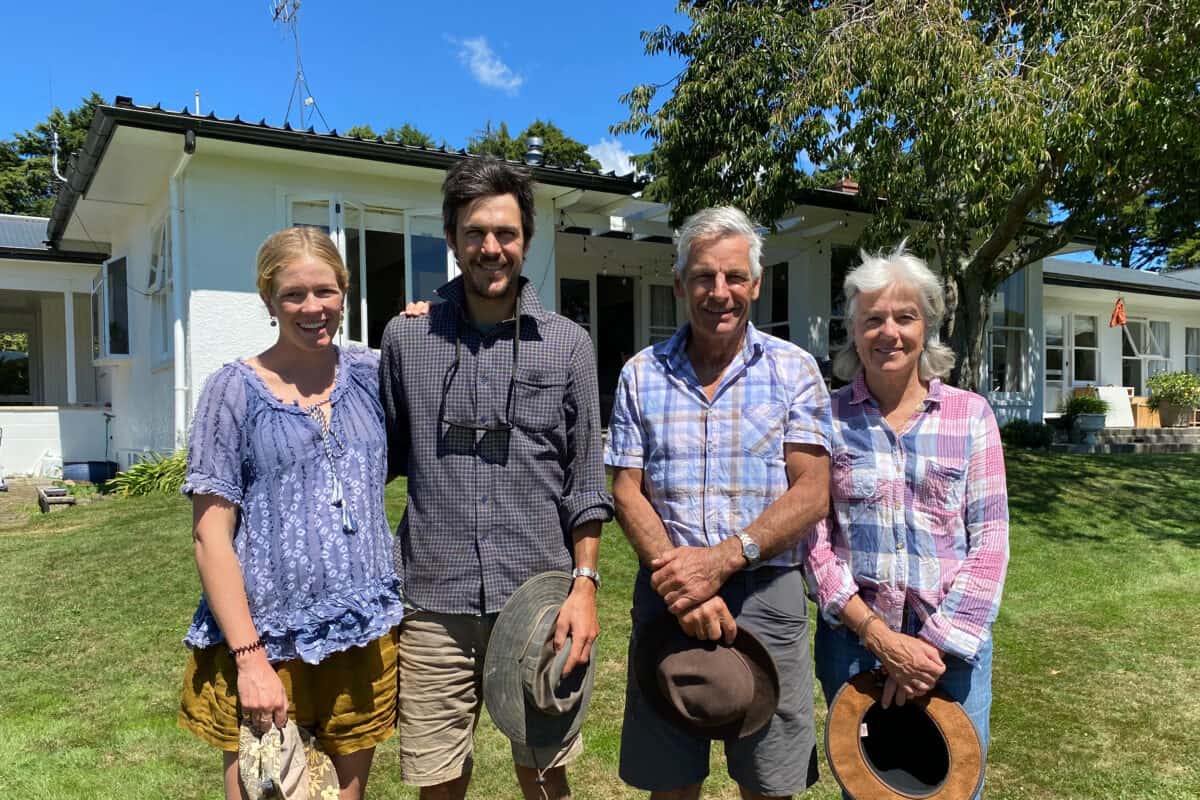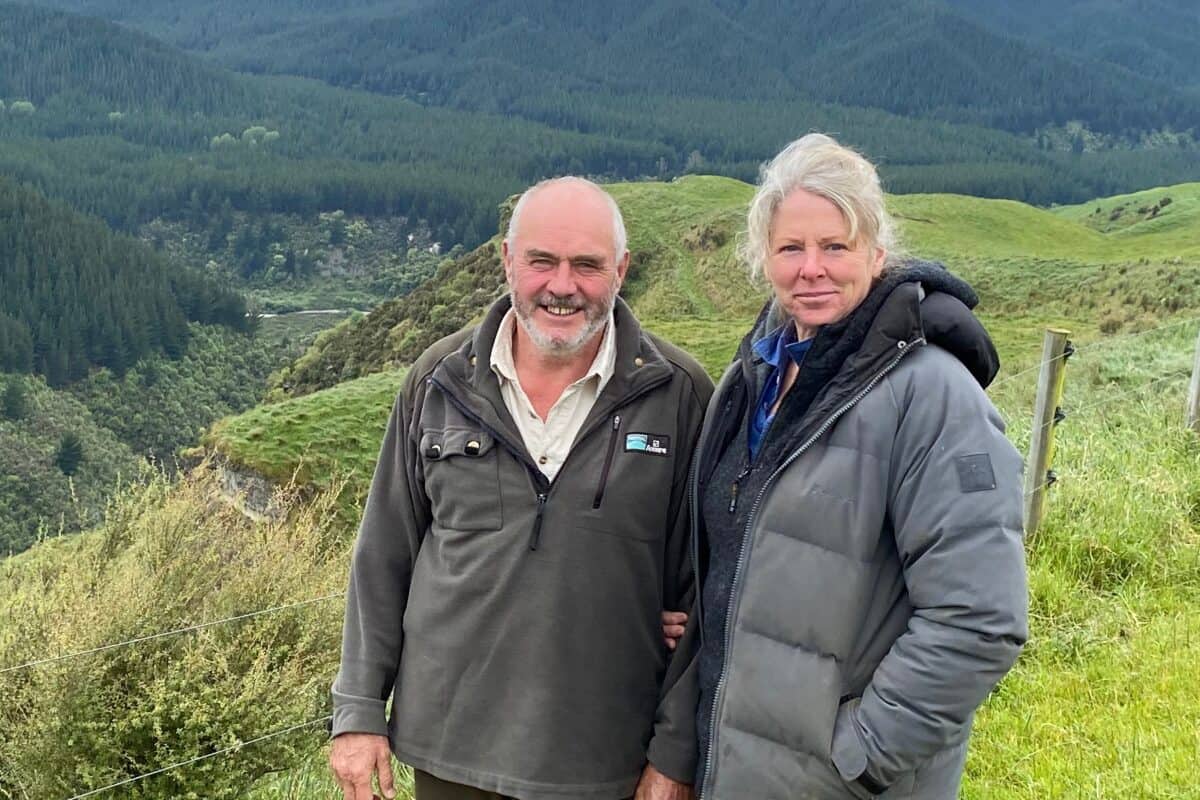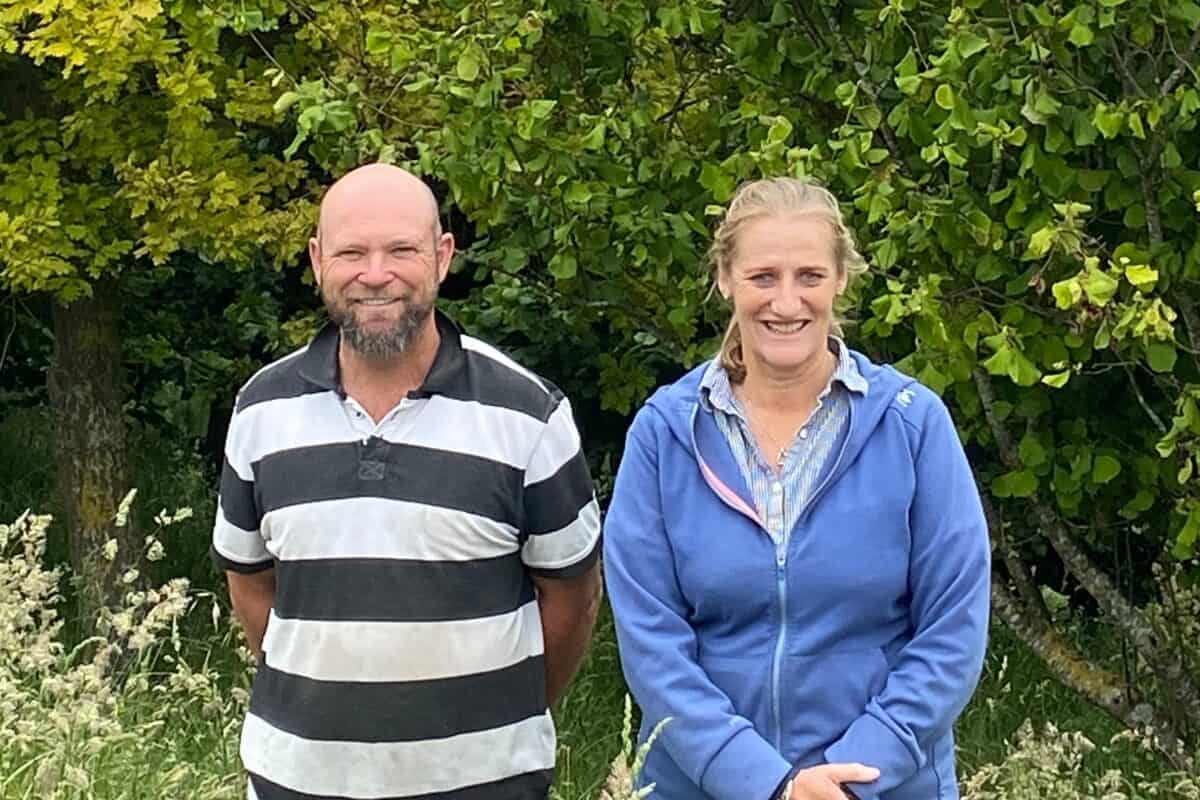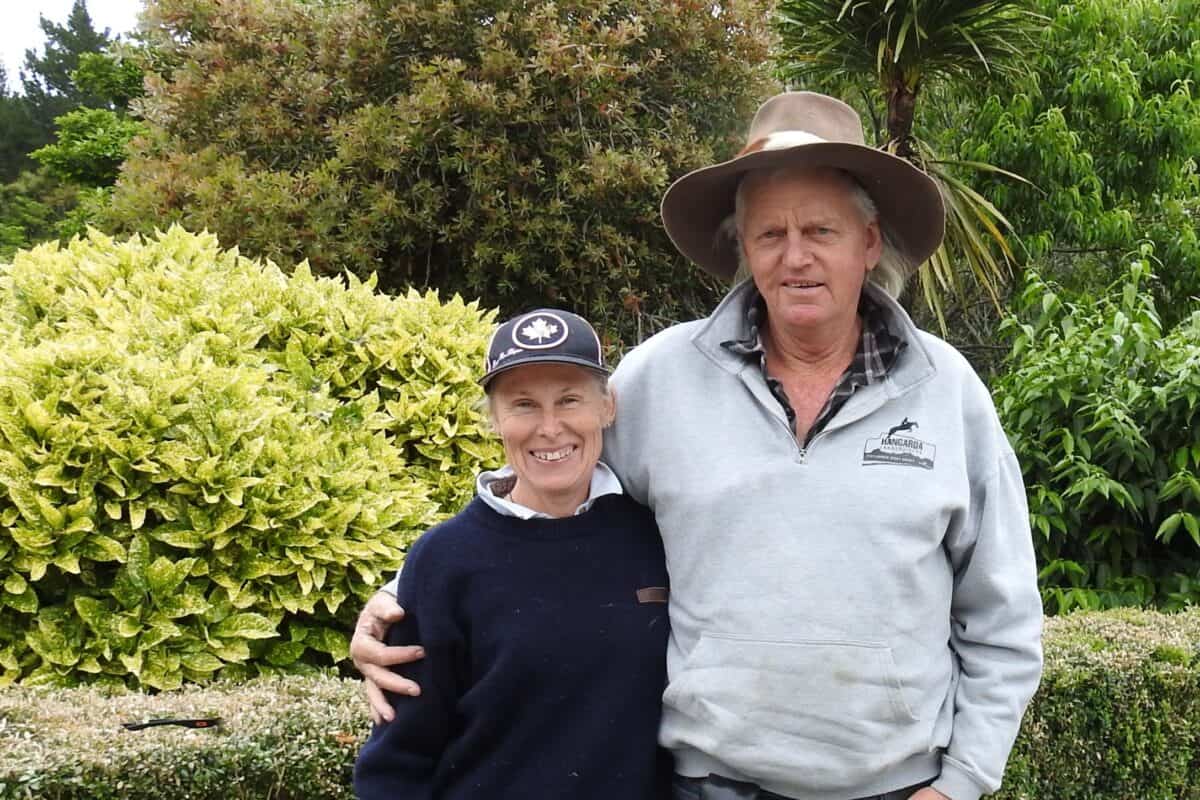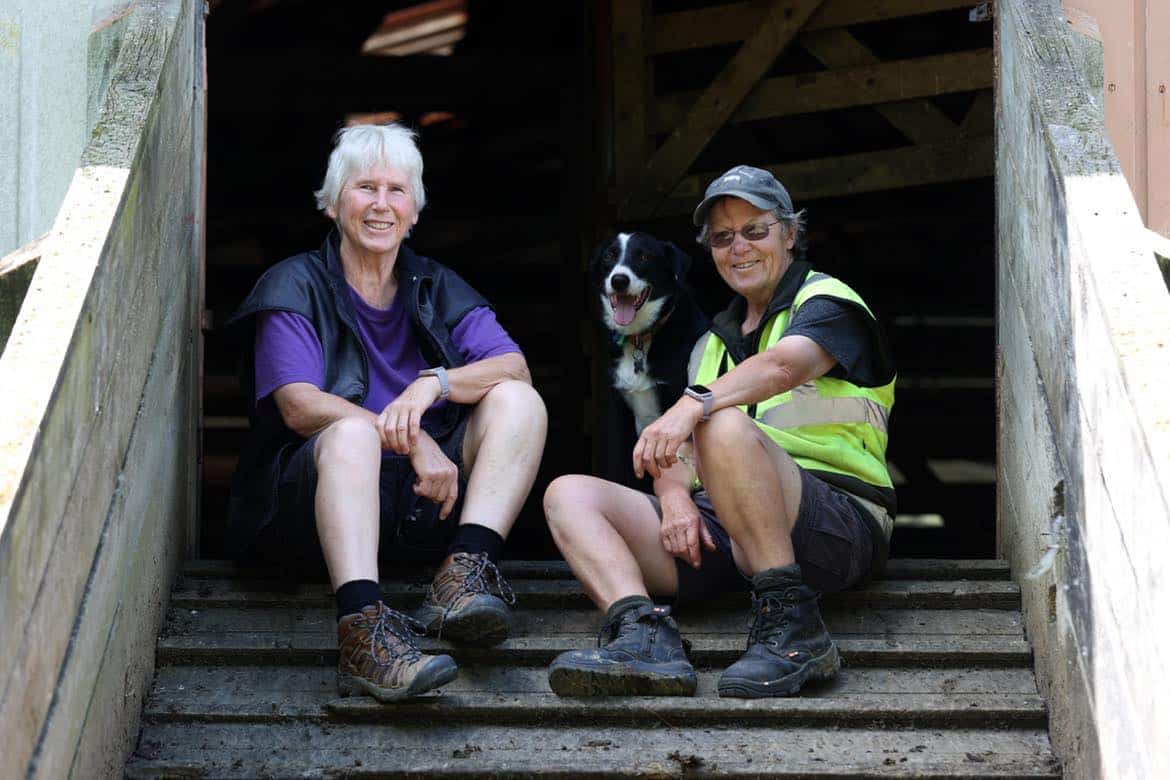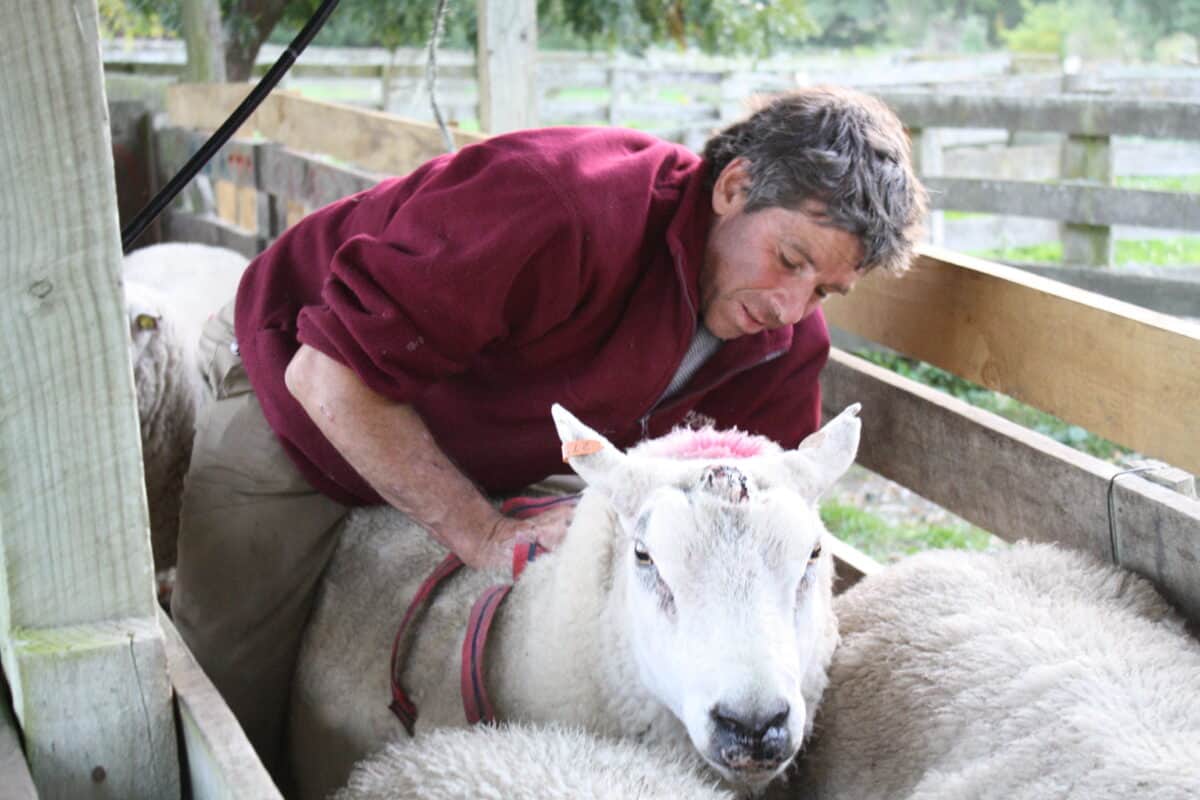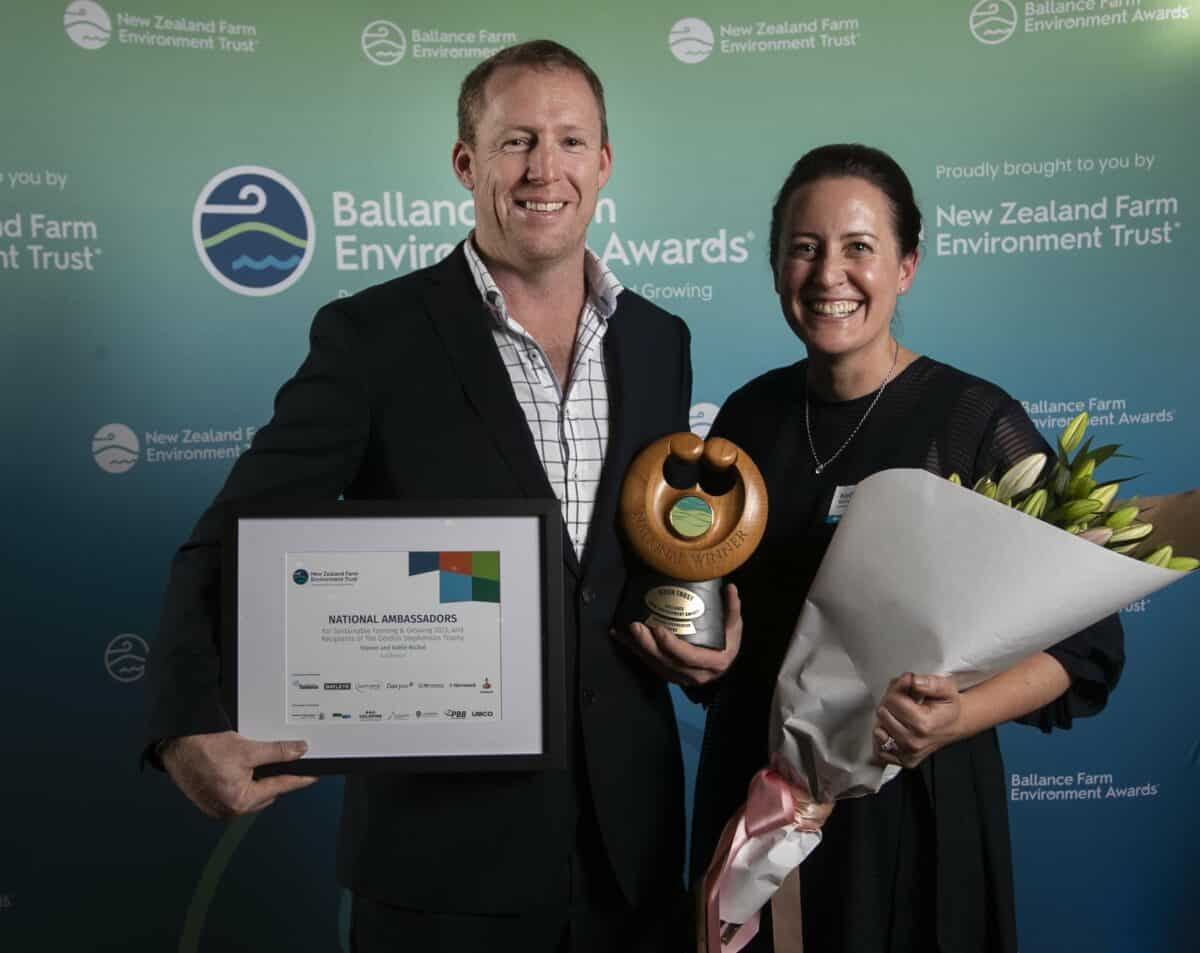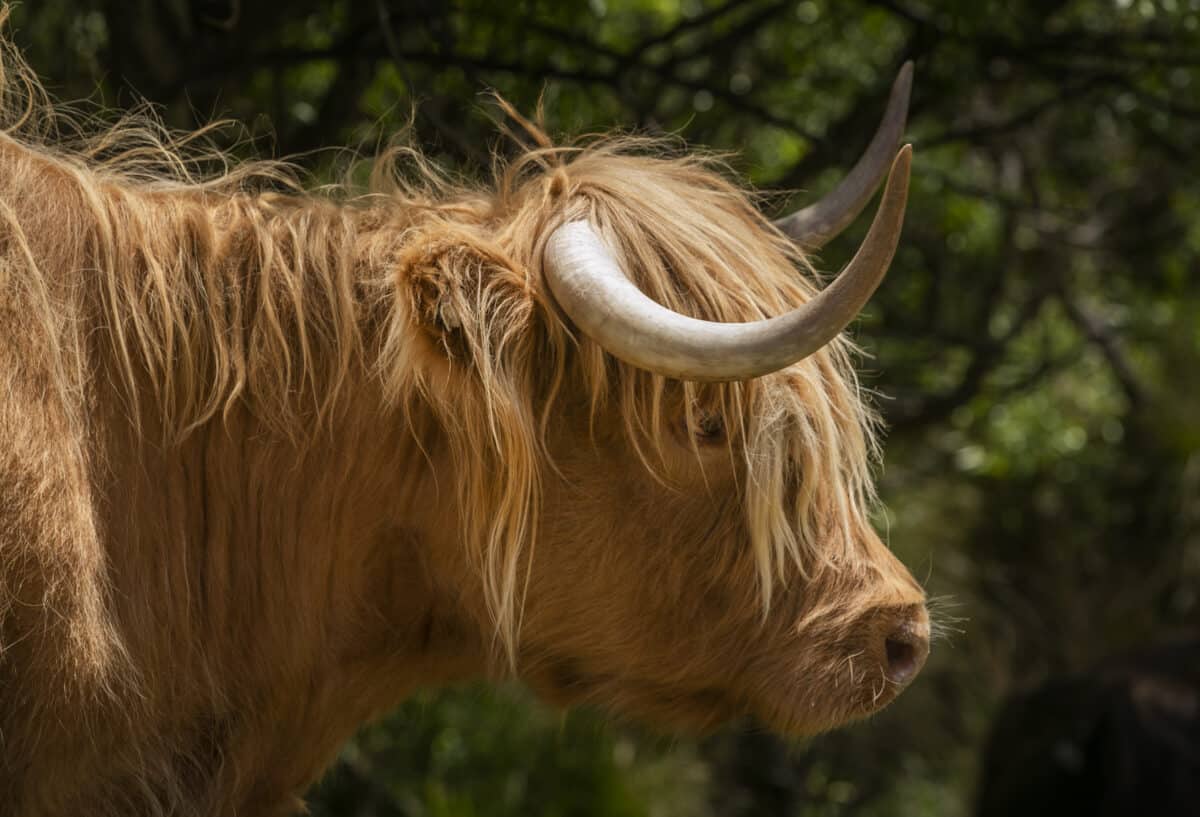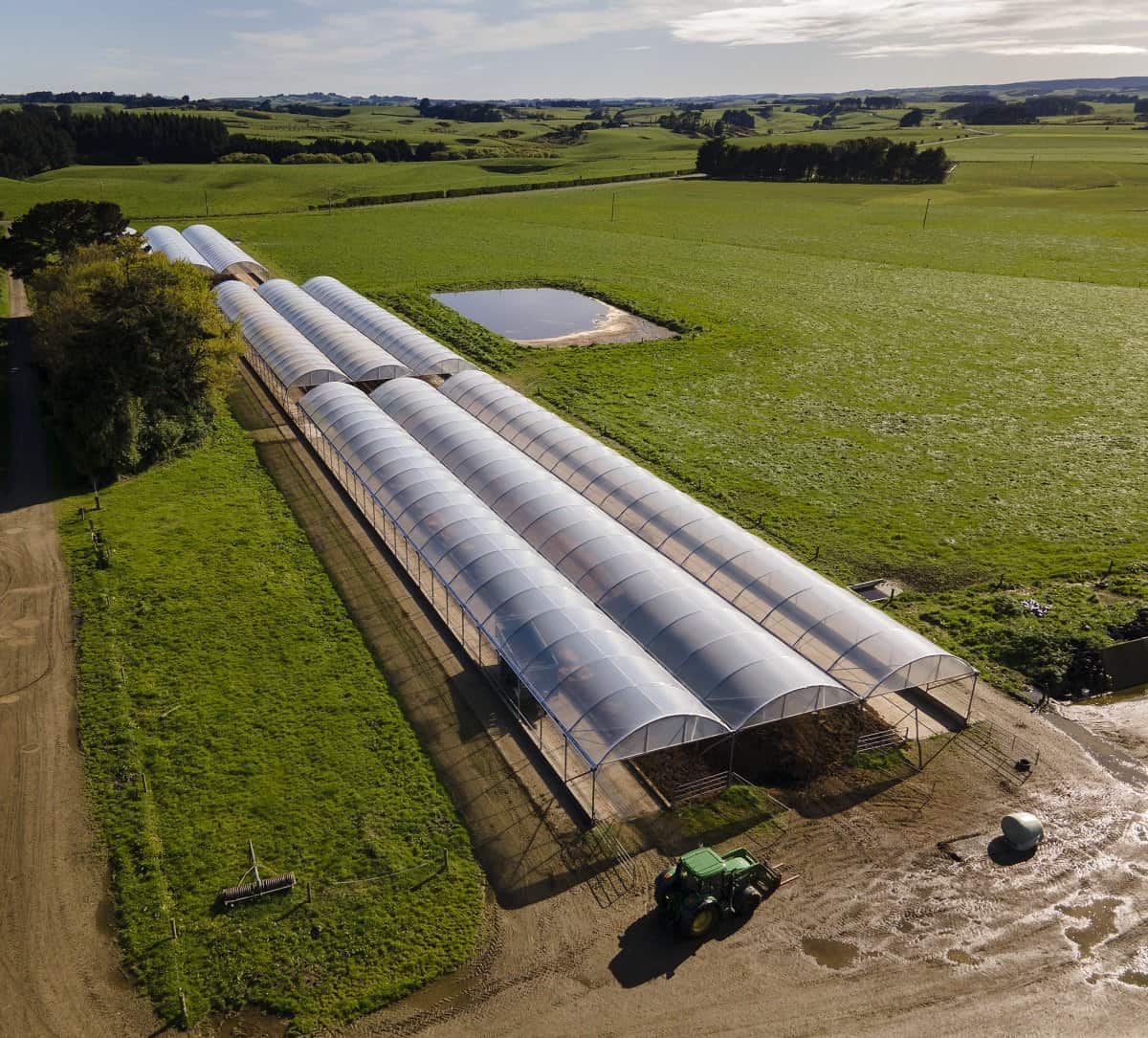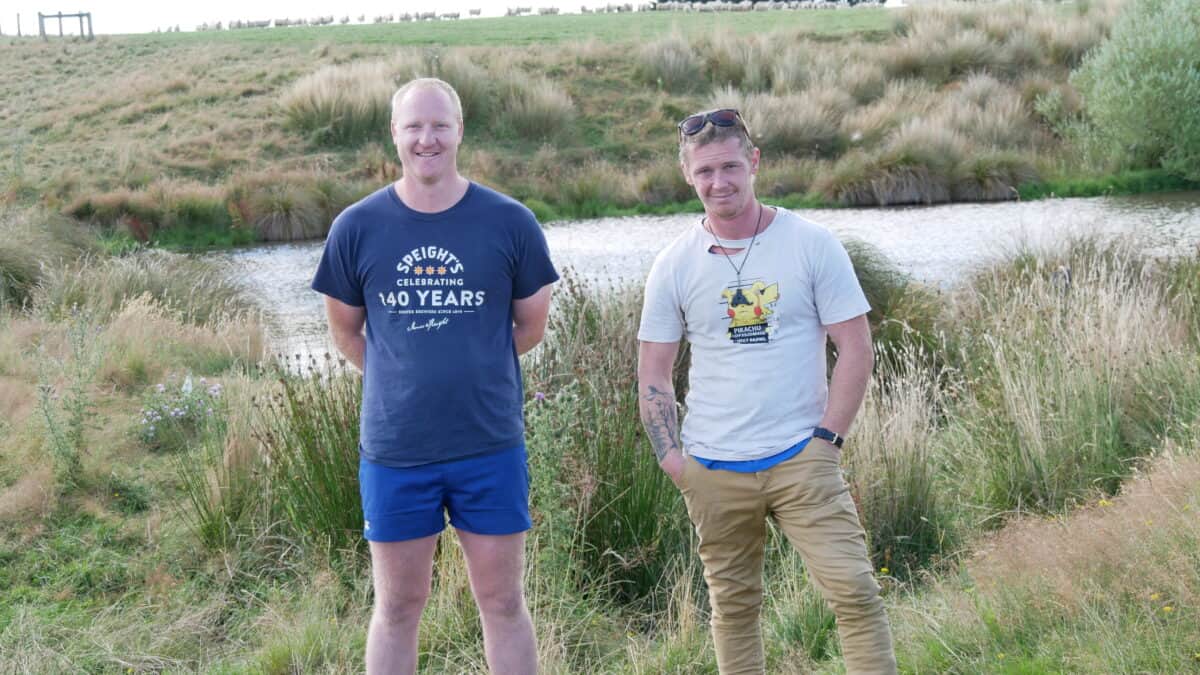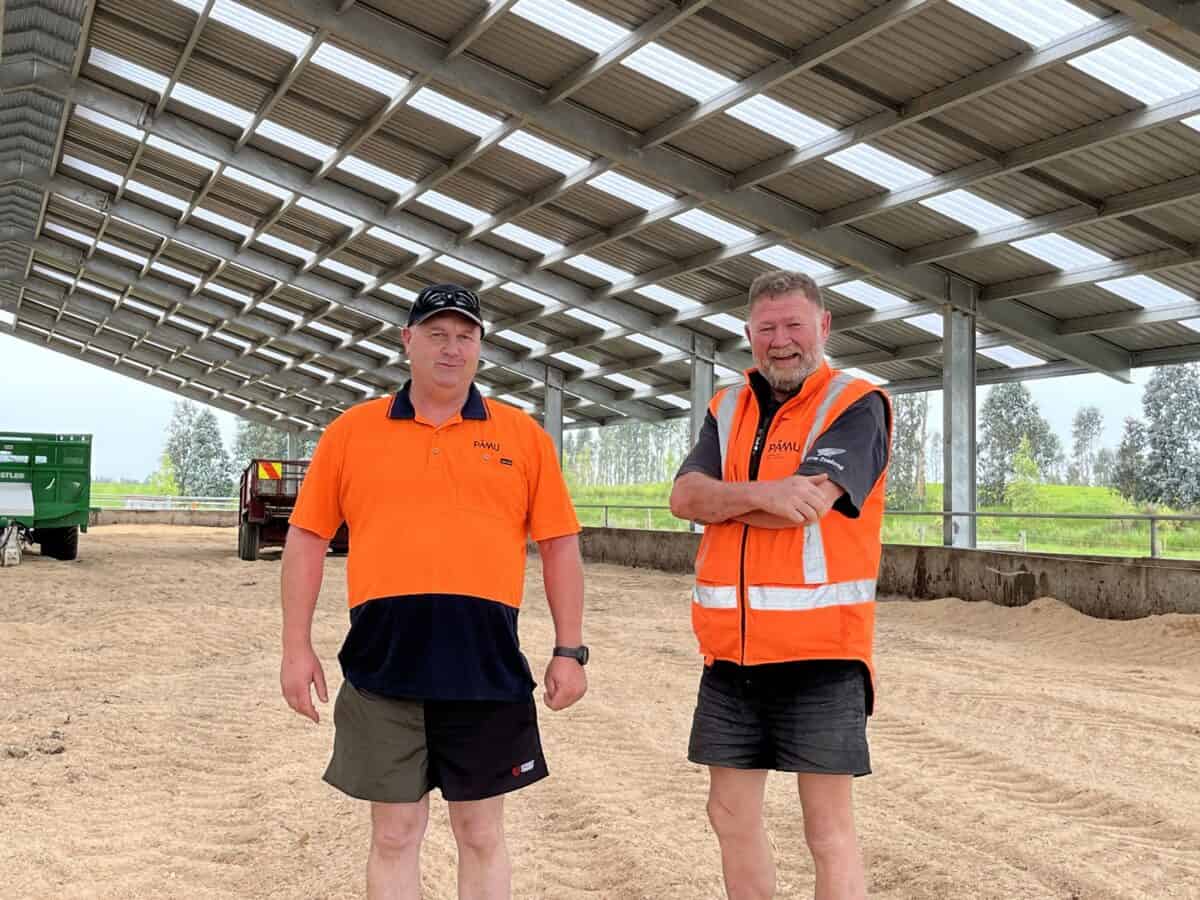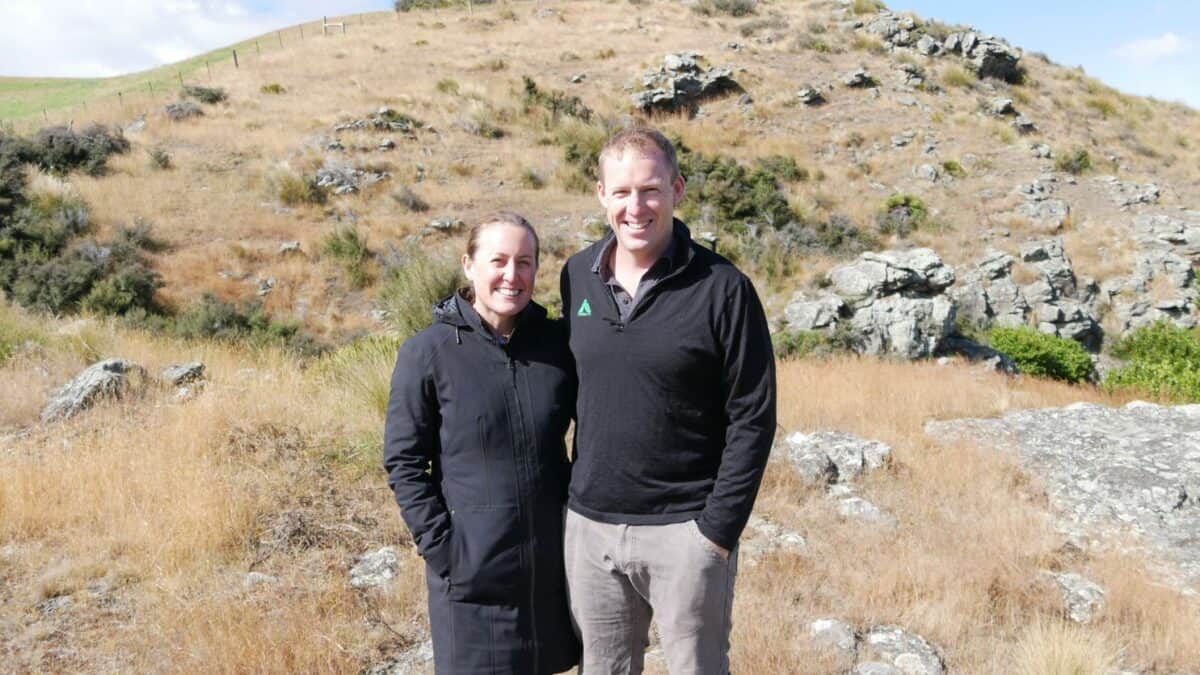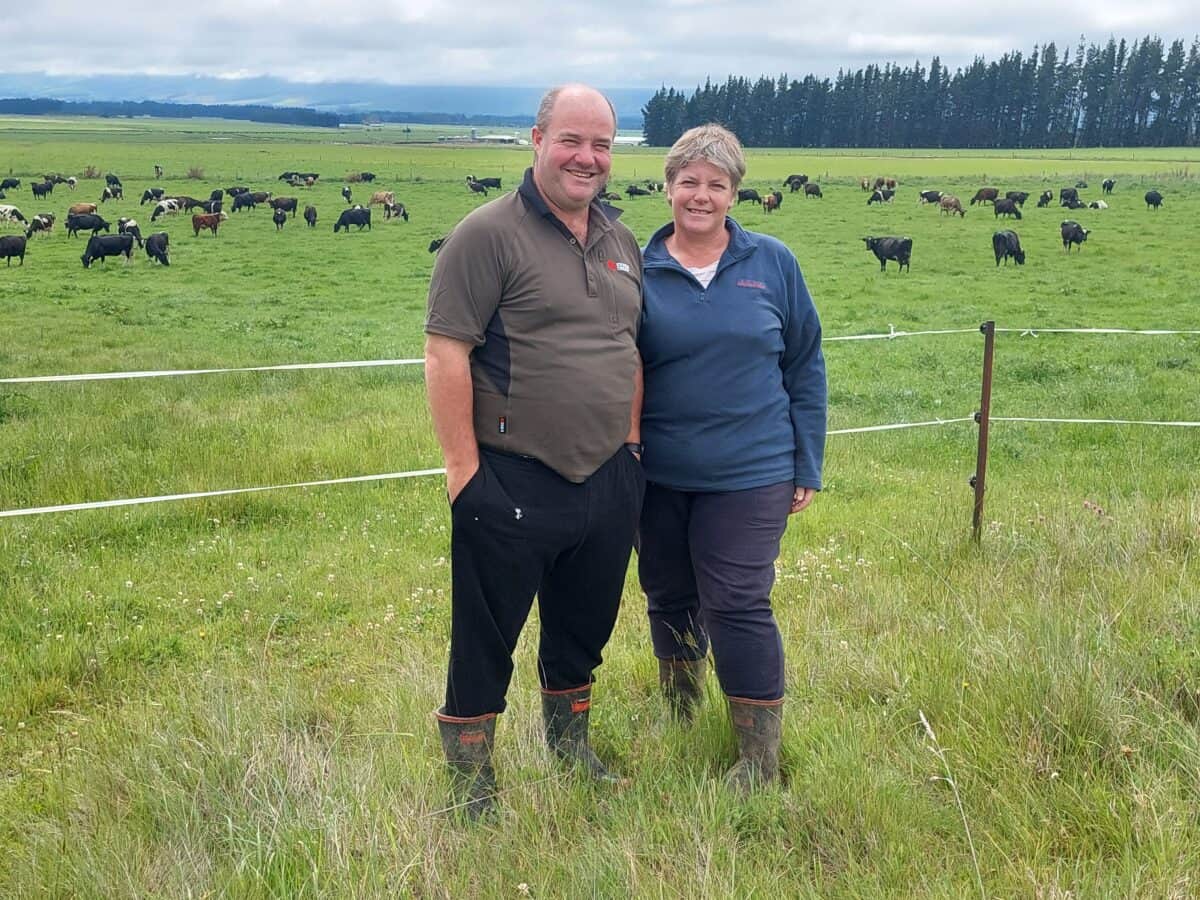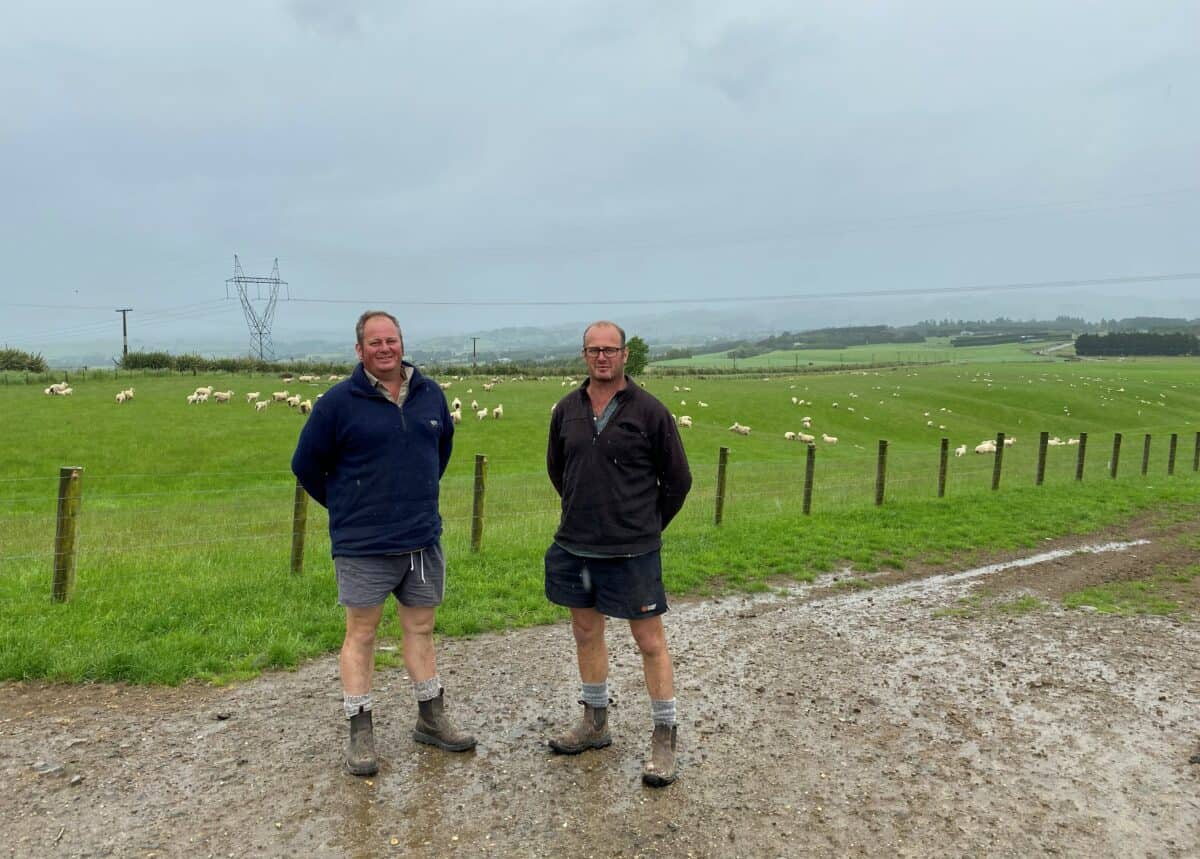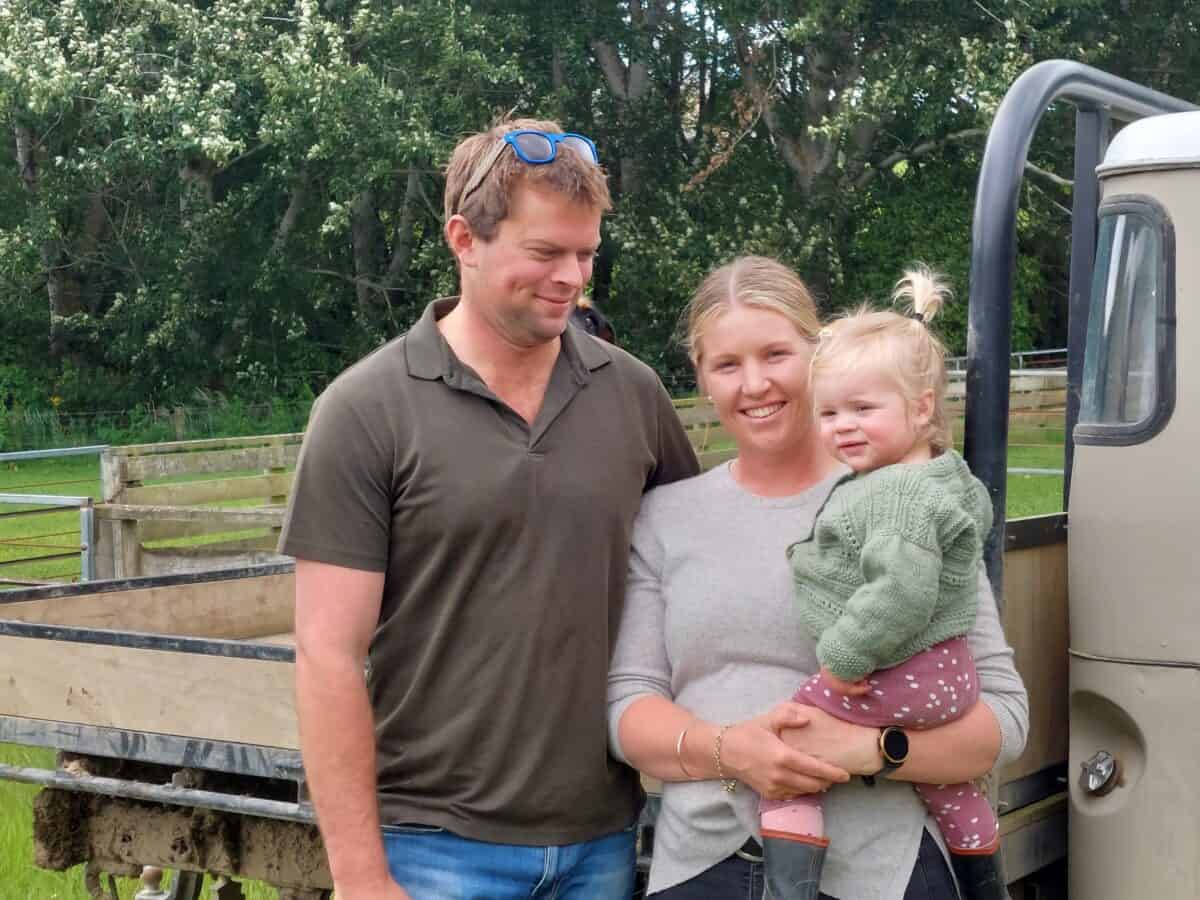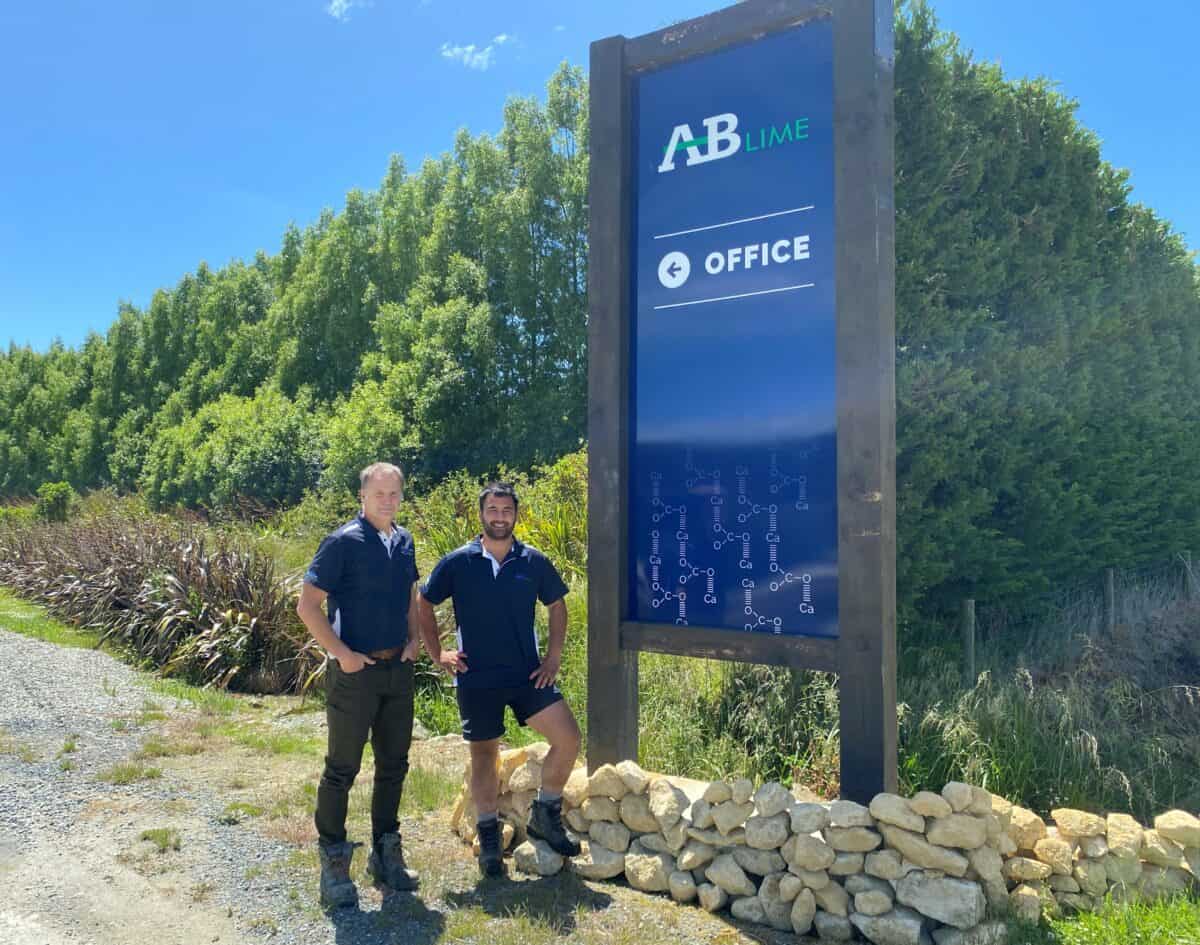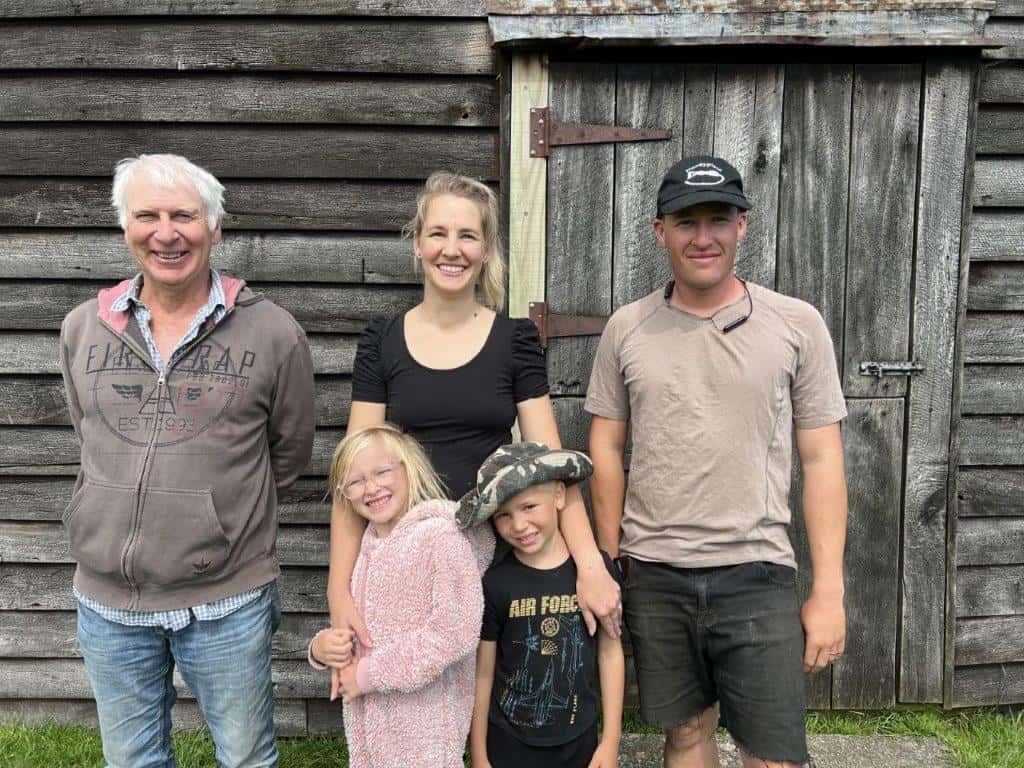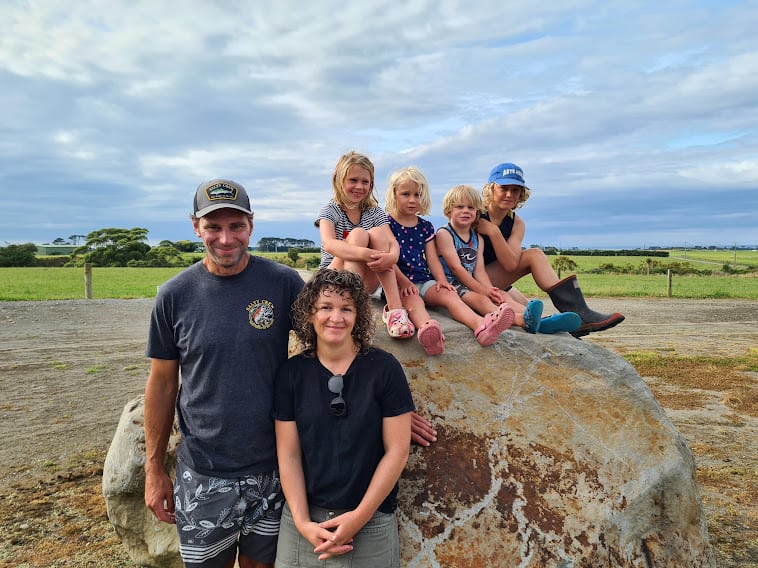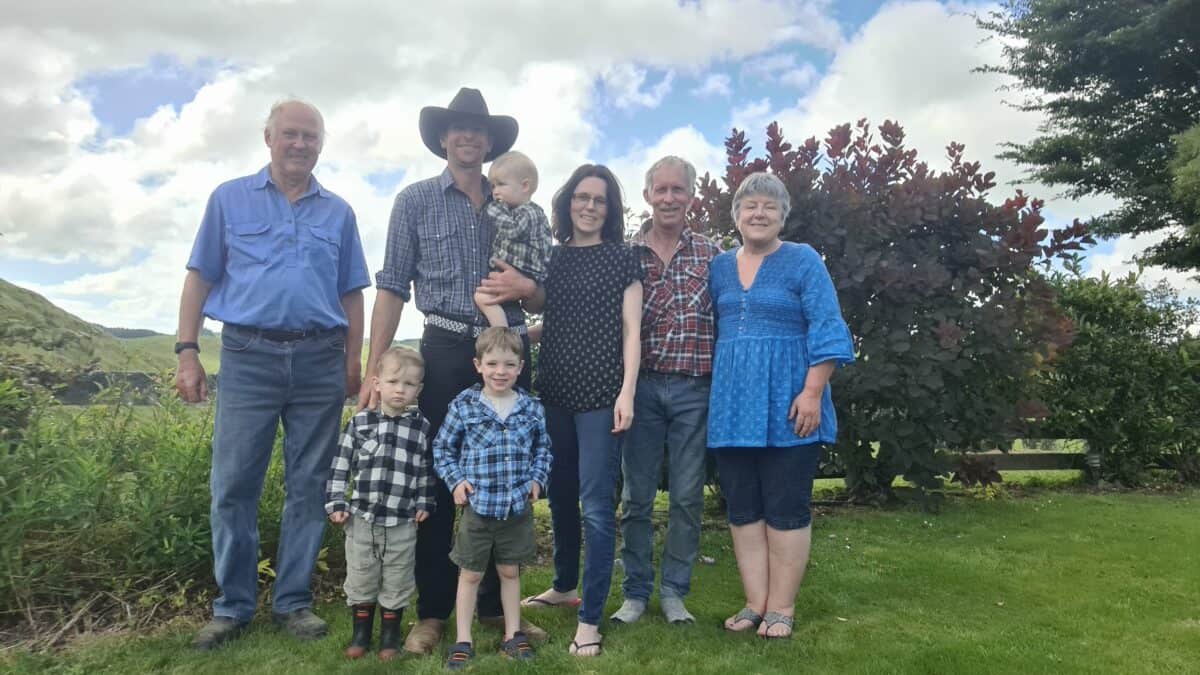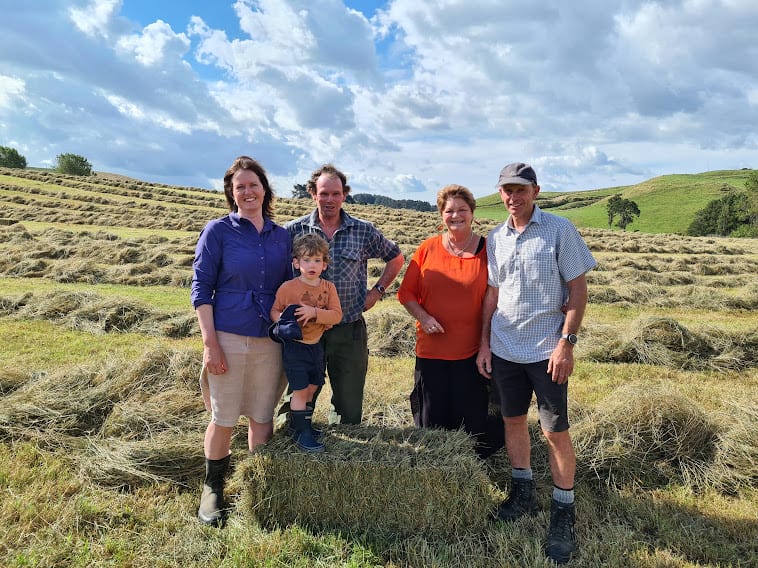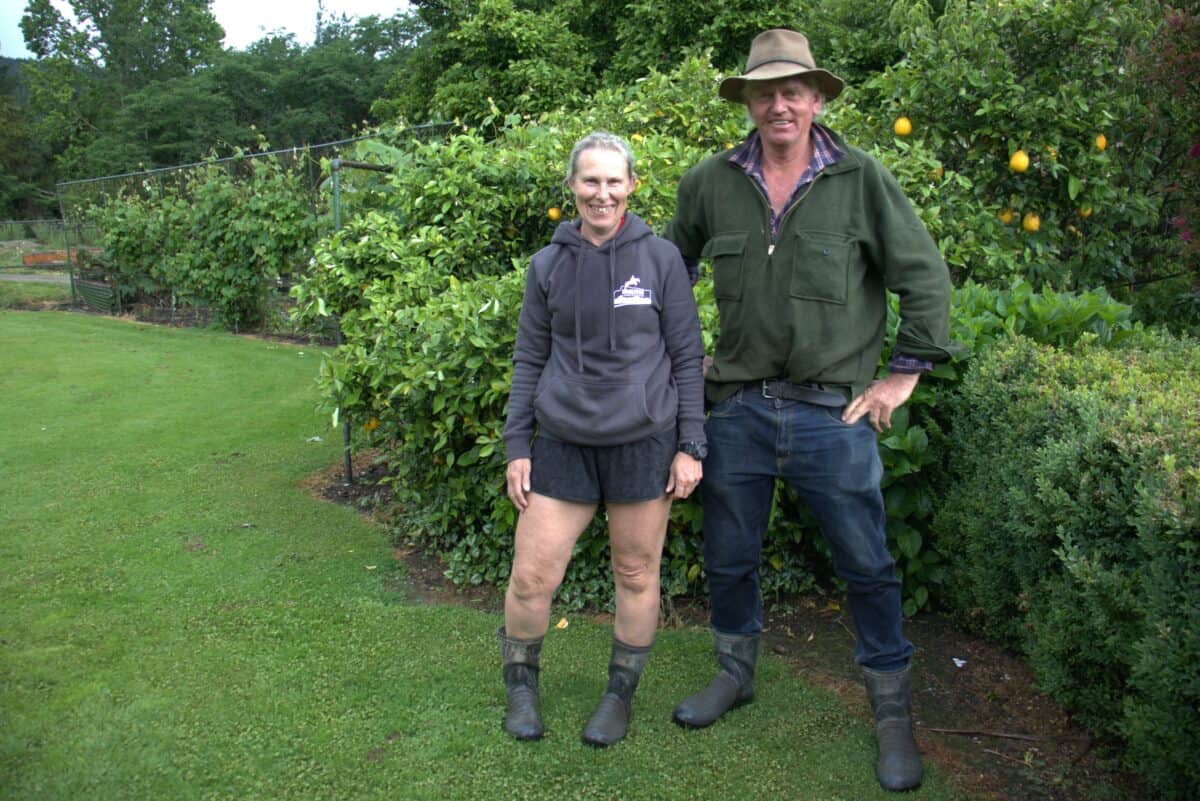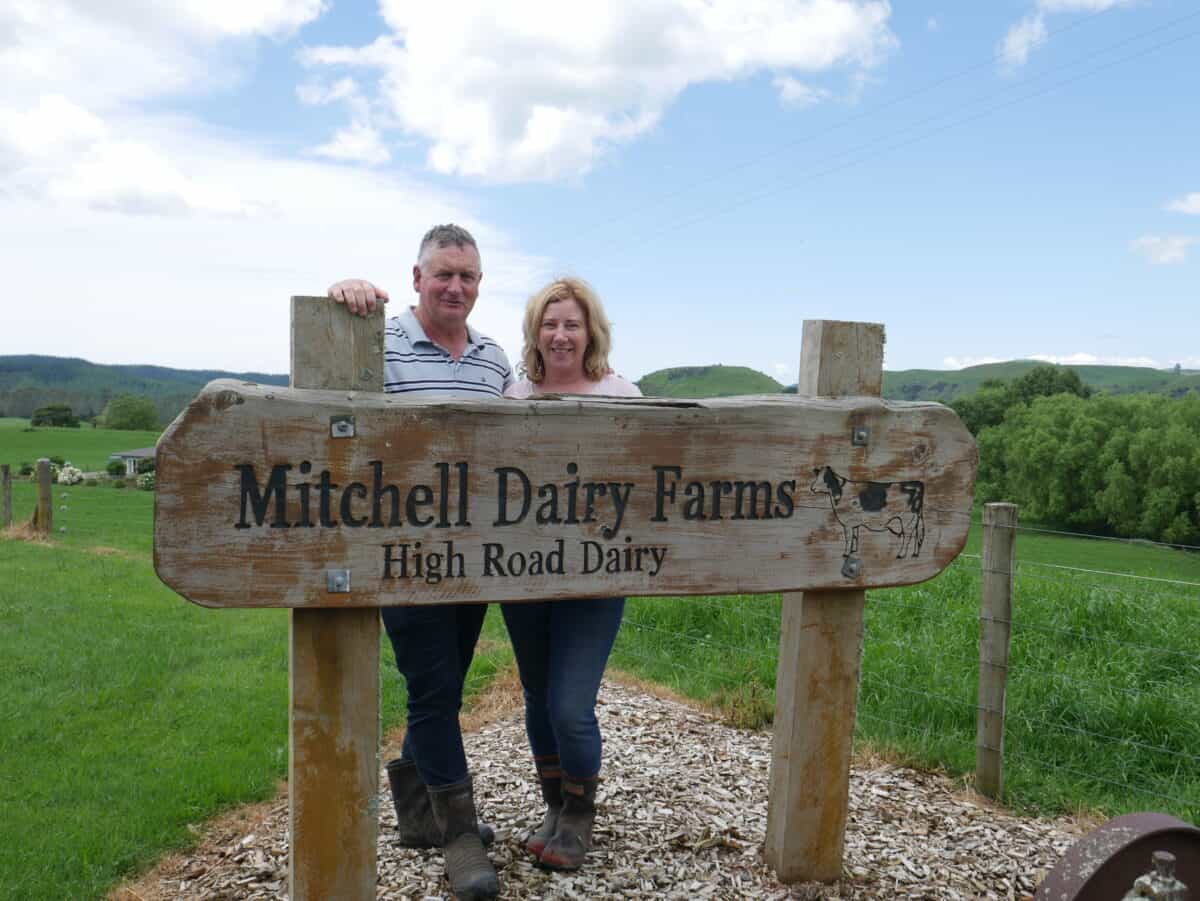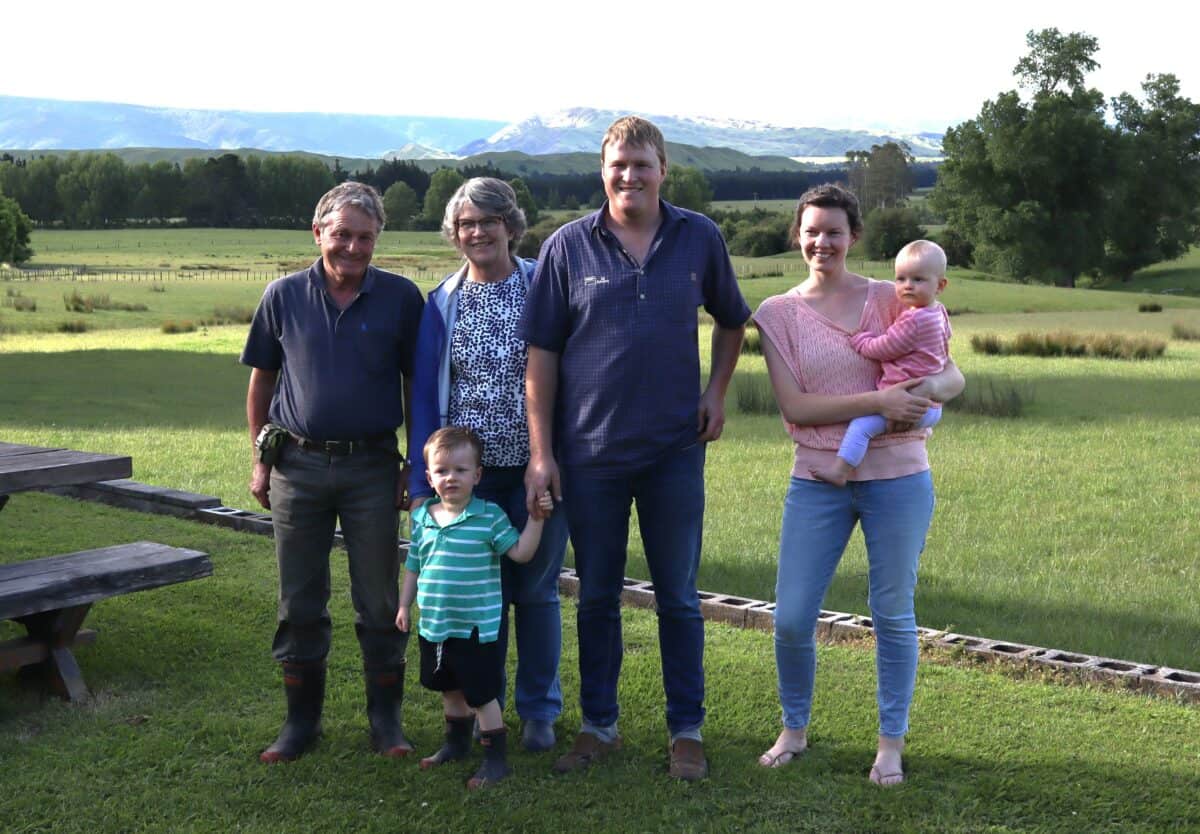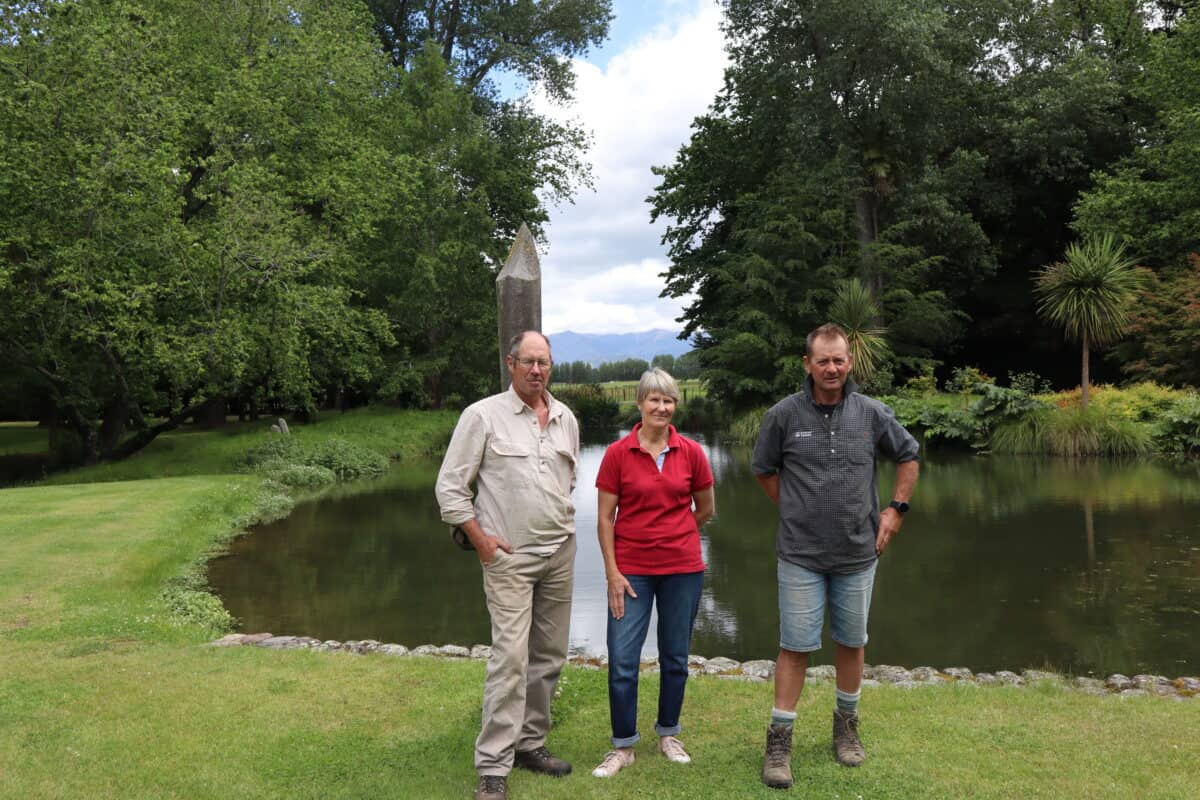Phillip and Jocelyn Everest, Paul Everest and Sarah Hayman
Flemington Farm, Dairy and beef production
Since 1989, the Everests have expanded this Ashburton property to the 255ha effective farm it is today, developing a sustainable dairy and beef farm that balances the needs of people, animals, economics and the environment.
In 2010, they developed the property into a dairy farm and currently milk 750 cows on a predominantly pasture-based system. When they established the 225ha milking platform that year, the best technology of the day was incorporated, and considered both labour and the environment. The goal was to have one person in the shed each milking, minimise water use and treat effluent as a fertiliser.
With environmental sustainability at the core of this family business, they have successfully reduced greenhouse gas emissions and Nitrogen loss and have established more than 20km of shelter and riparian plantings.
The Everests are also involved in several catchment and district initiatives that are largely focused on improving the environment.
Geoff and Rochelle Spark
Torlesse Farm, Dairy and Beef
With a strong family connection to the land, the Sparks are on a journey of continuous improvement so their farm can thrive as a sustainable, profitable business.
They run about 1,700 dairy cows across 450ha, with a further 400ha split fairly evenly between dairy support and beef. About 80 prime cattle are sold each year and the Sparks have diversified the business to include grazing and grass sales, and operate a commercial weighbridge. Their positive solutions-focused approach has resulted in production returning to normal levels after sustaining a hit from Mycoplasma bovis in 2017.
Good infrastructure and management provides the foundation for sustainability, enhanced with activities such as regenerating native bush by trapping possums and fencing off feral deer on their hill country beef farm.
Their 5.5ha irrigation storage lake is continually enhanced with native plants and hosts hundreds of people for community events including triathlons, charity groups and social occasions.
Jo & Lachie McKenzie
Table Top Station, Sheep and Beef
Since 1892, the McKenzie family has risen to the challenges of running this high country station in Kurow, which today is farmed sustainably while maintaining high-quality stock and meeting regulatory standards.
The pillar of their business is ultra-fine wool, taken from 5,000 merino sheep that produced more than 20,000kg of wool in 2020. Sheep are grazed across the whole station and, to bolster income, terminal and merino wether lambs are sold. Meanwhile, Angus cattle are grazed across about 1,800ha of hill country, with any calves weaned and sold.
Jo and Lachie are focused on reducing the property’s environmental impact, continuing regenerative farming, and have implemented numerous sustainability initiatives including soil management and predator control and have developed an Extreme Weather Management Plan.
Careful business planning includes the development of biosecurity and animal health plans, while looking after the health and wellbeing of staff is another strong focus.
Matt & Claire Smith, Boyd Macdonald (Lone Star Farms)
Caberfeidh Station – Lone Star Farms, Sheep & Beef
Part of the Lone Star Farms stable, which is managed by Boyd Macdonald, Caberfeidh is a highly productive sheep and beef farm guided by an environmental compass.
This large-scale breeding and finishing property winters about 30,000 stock units comprised of 65% sheep and 35% cattle, where the main goal is to create a consistently high-quality product for customers.
Improving pasture quality is a key focus, with the Smiths fencing off waterways and removing some paddocks from cattle grazing. They’re also investigating different crop mixes which will help with soil biology and conservation.
With a heavy reliance on irrigation, water quality is critical. To help manage this precious resource, Caberfeidh regularly monitors water quality through four water testing sites
Numerous trees are being planted across the property, including along waterways, to provide stock shelter, enhance the property’s beauty, and as a way of creating bee and bird corridors.
Enter the Ballance Farm Environment Awards
